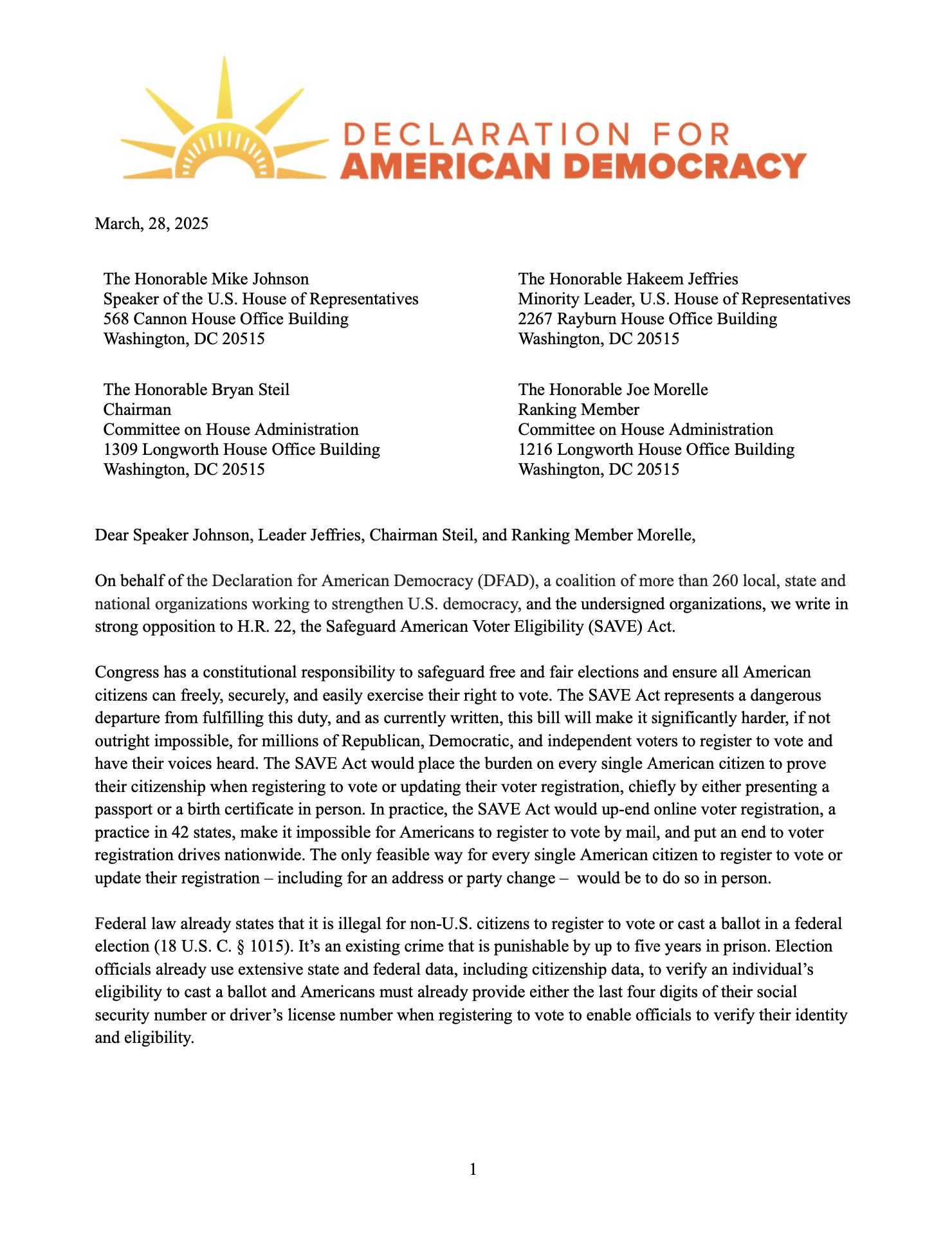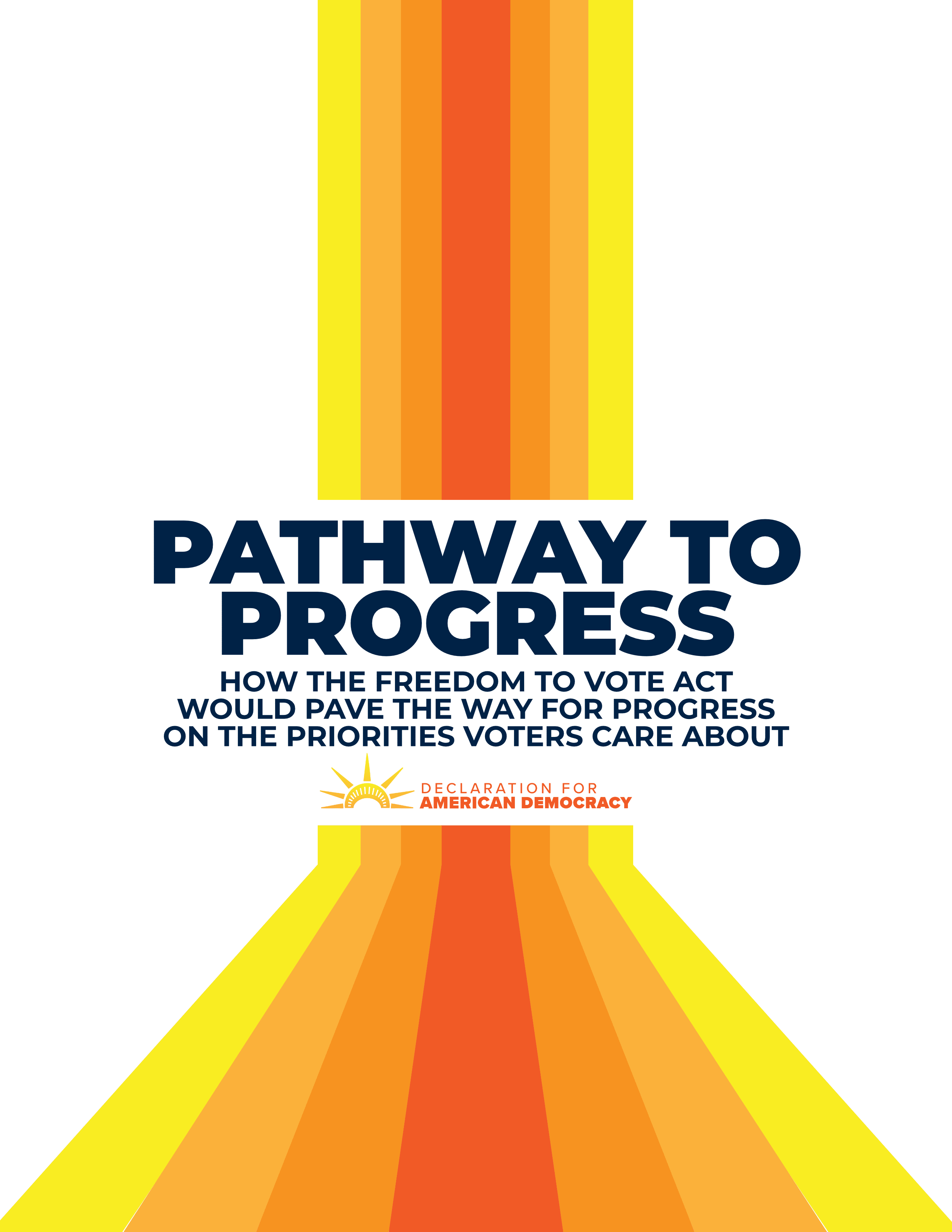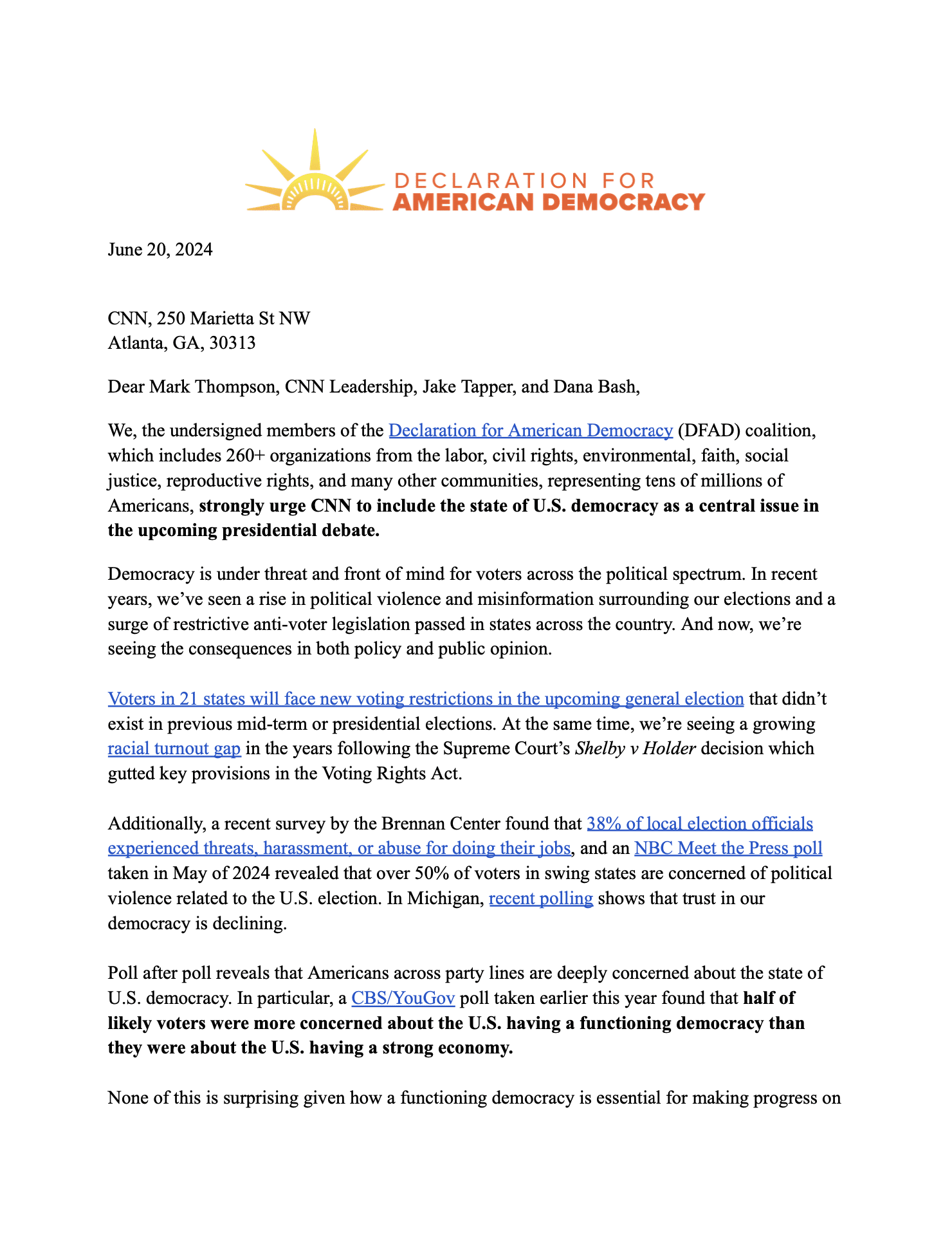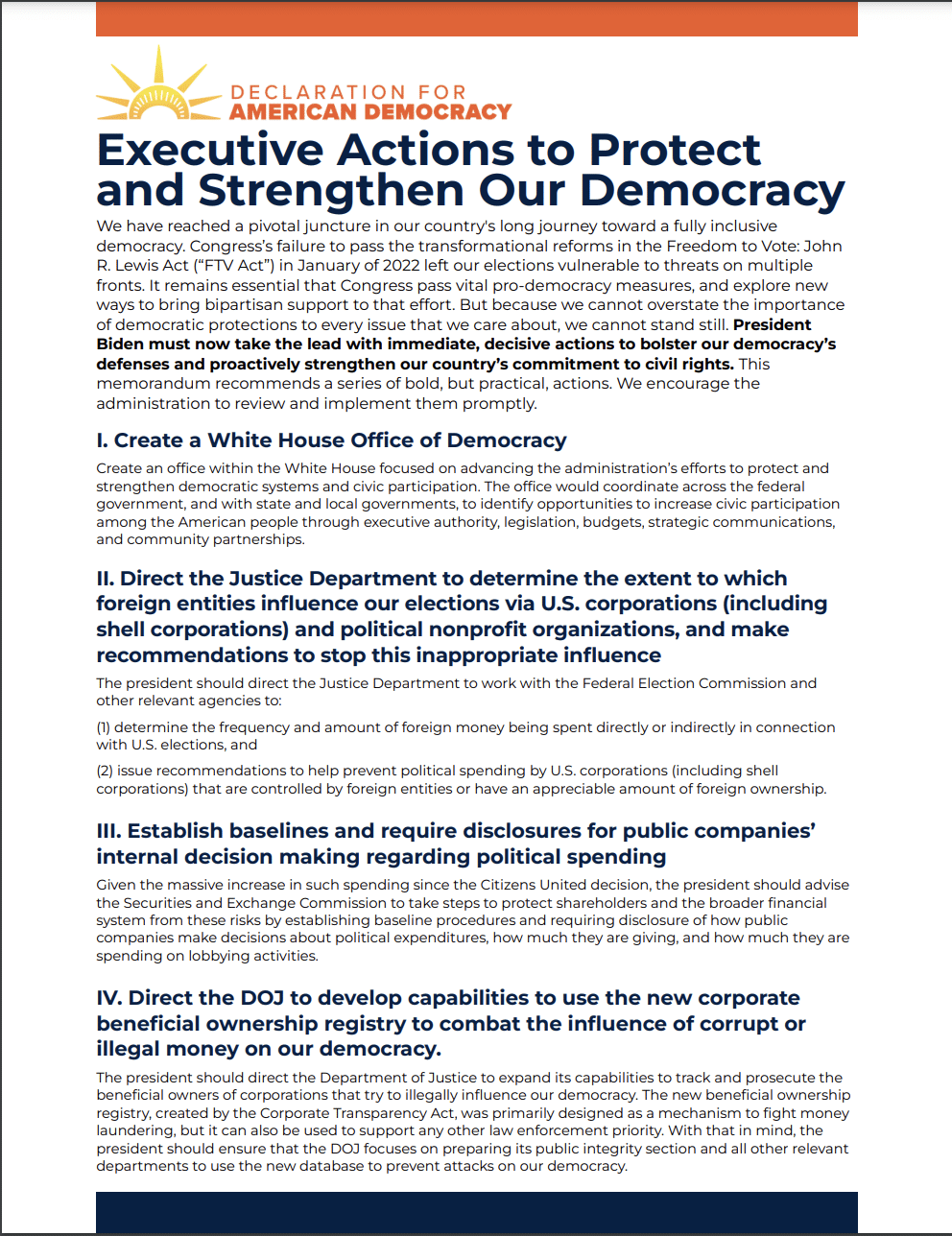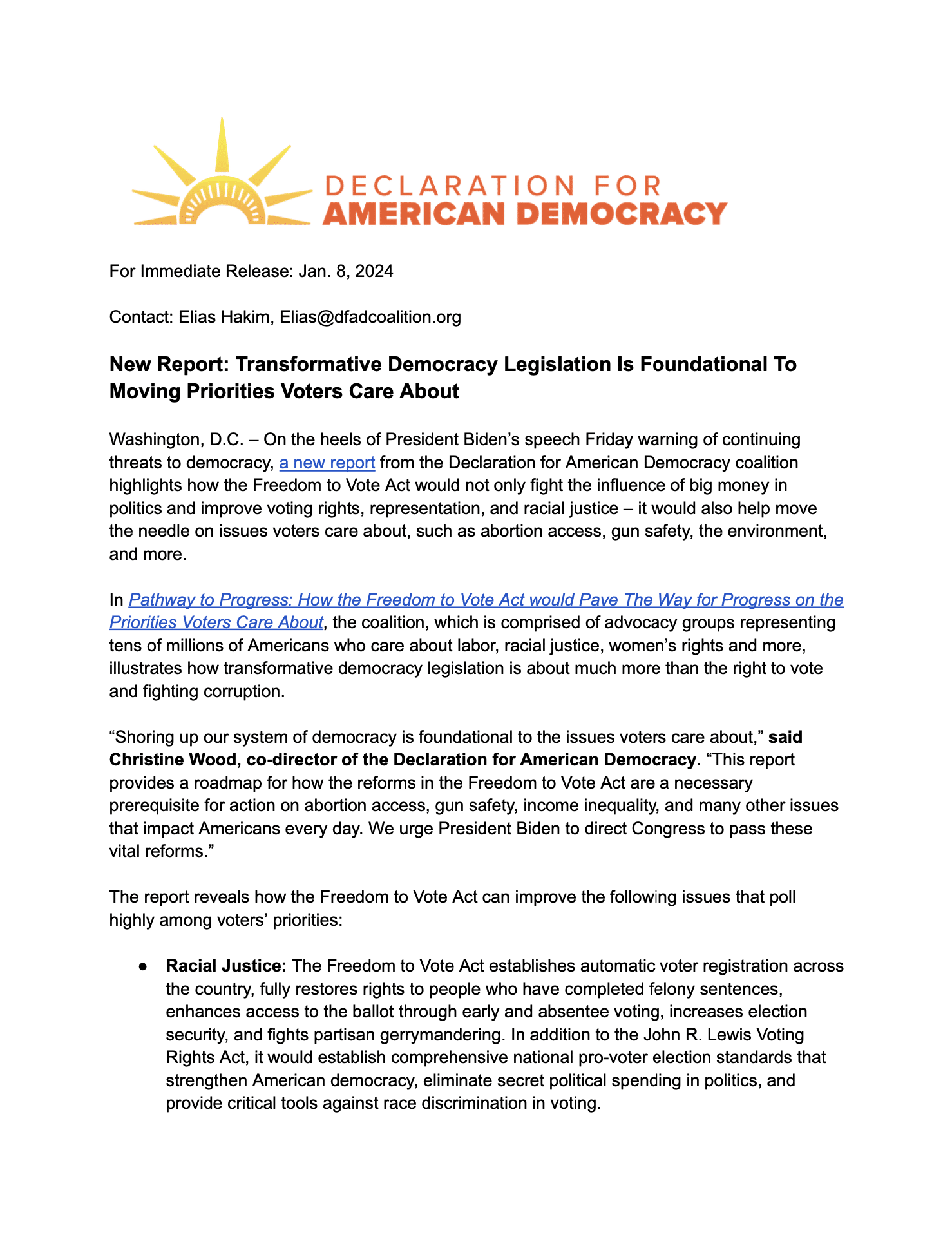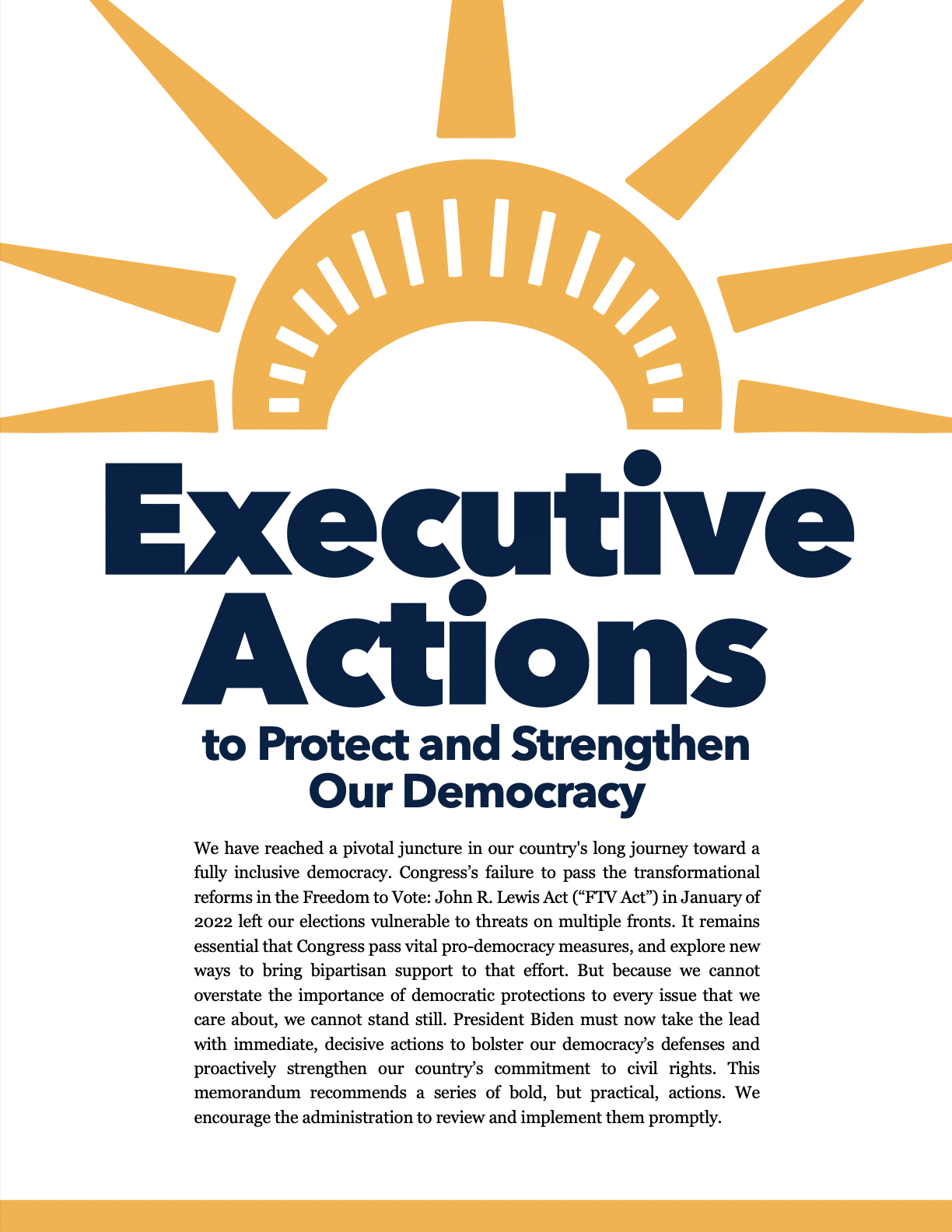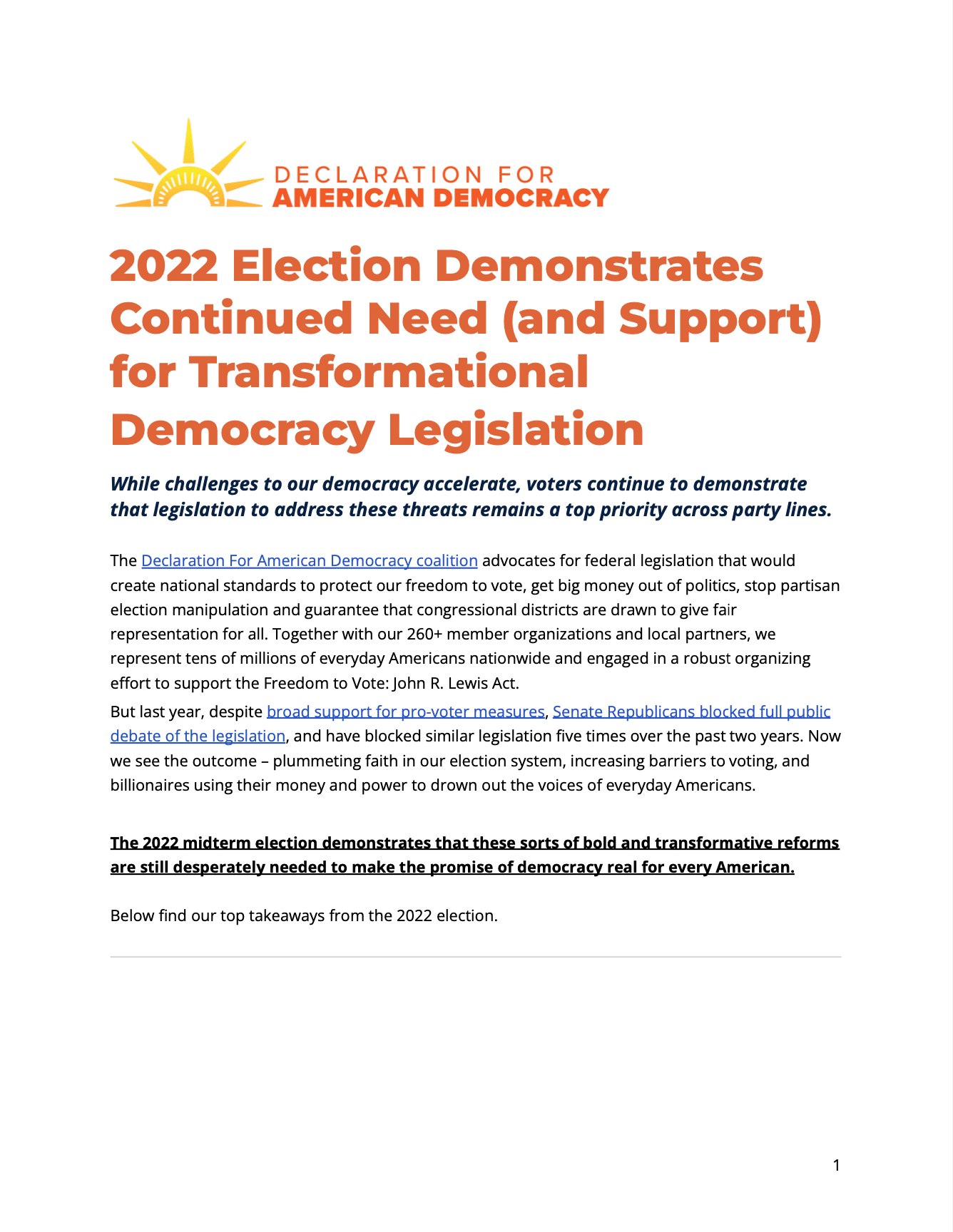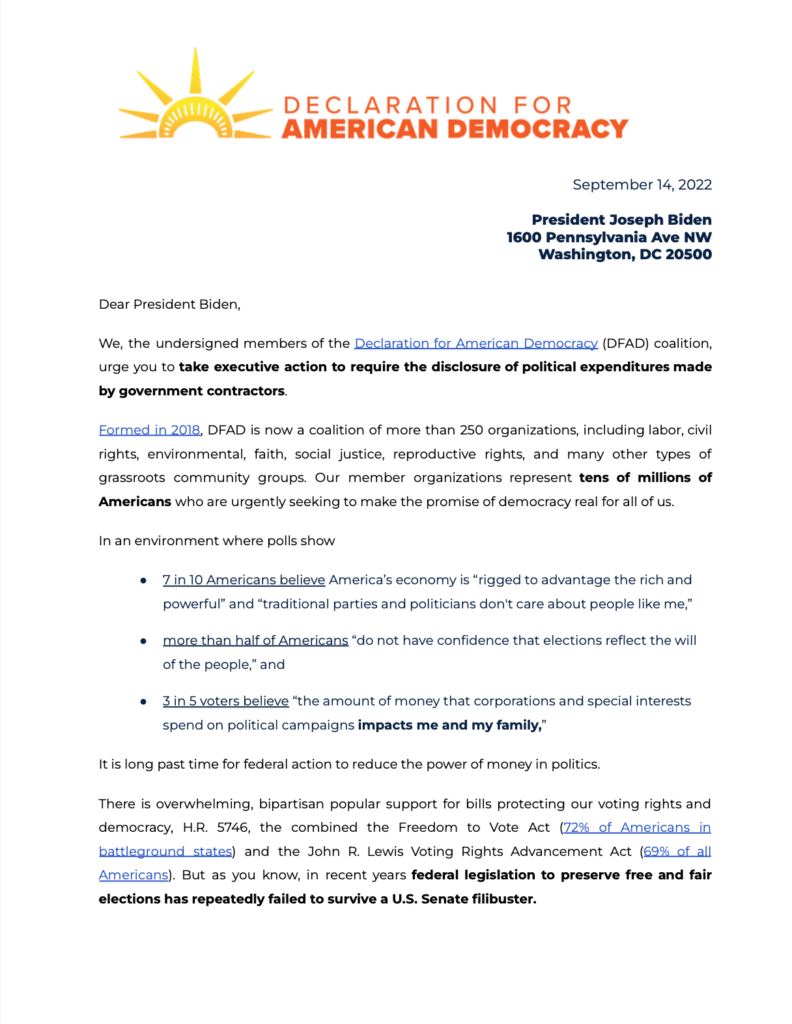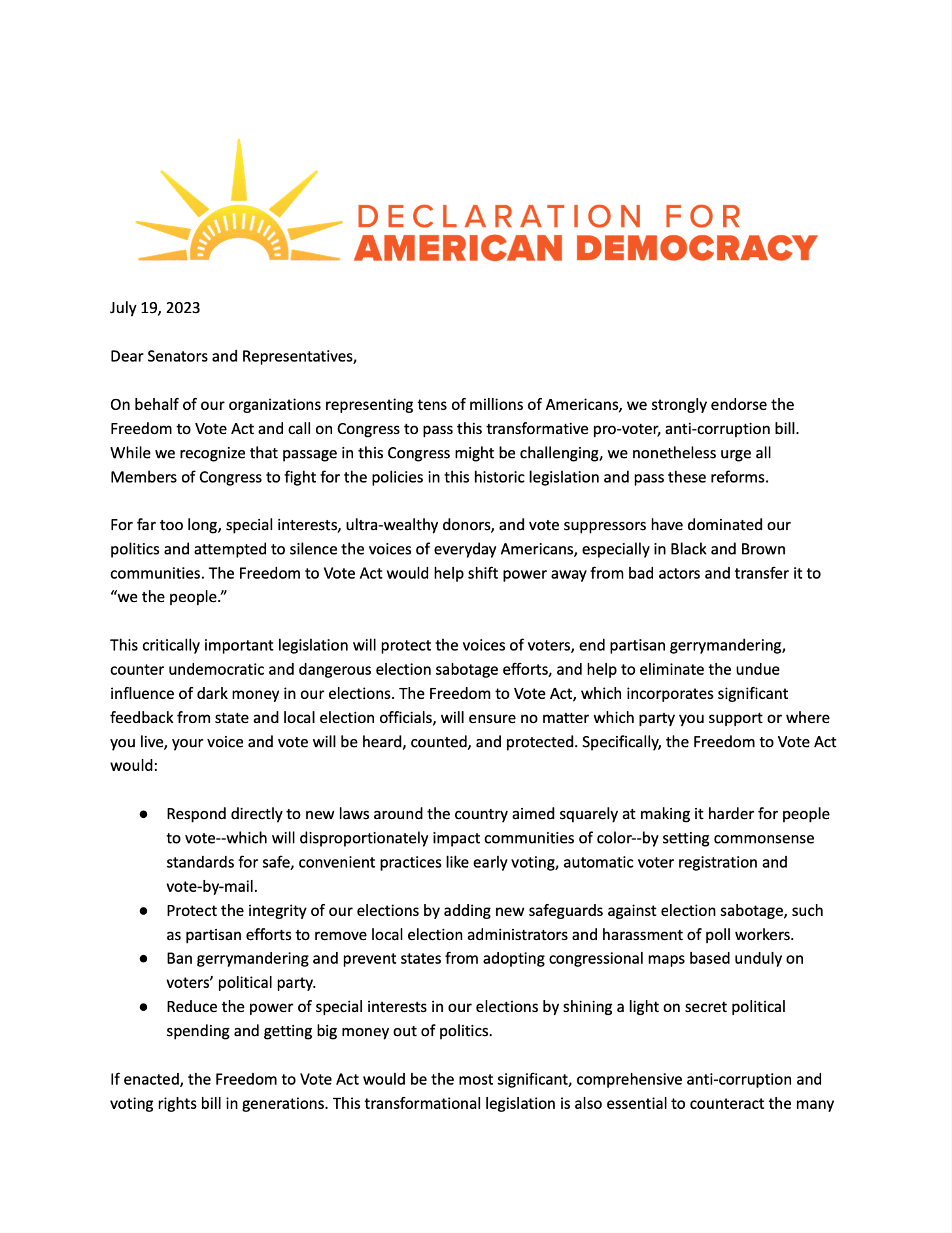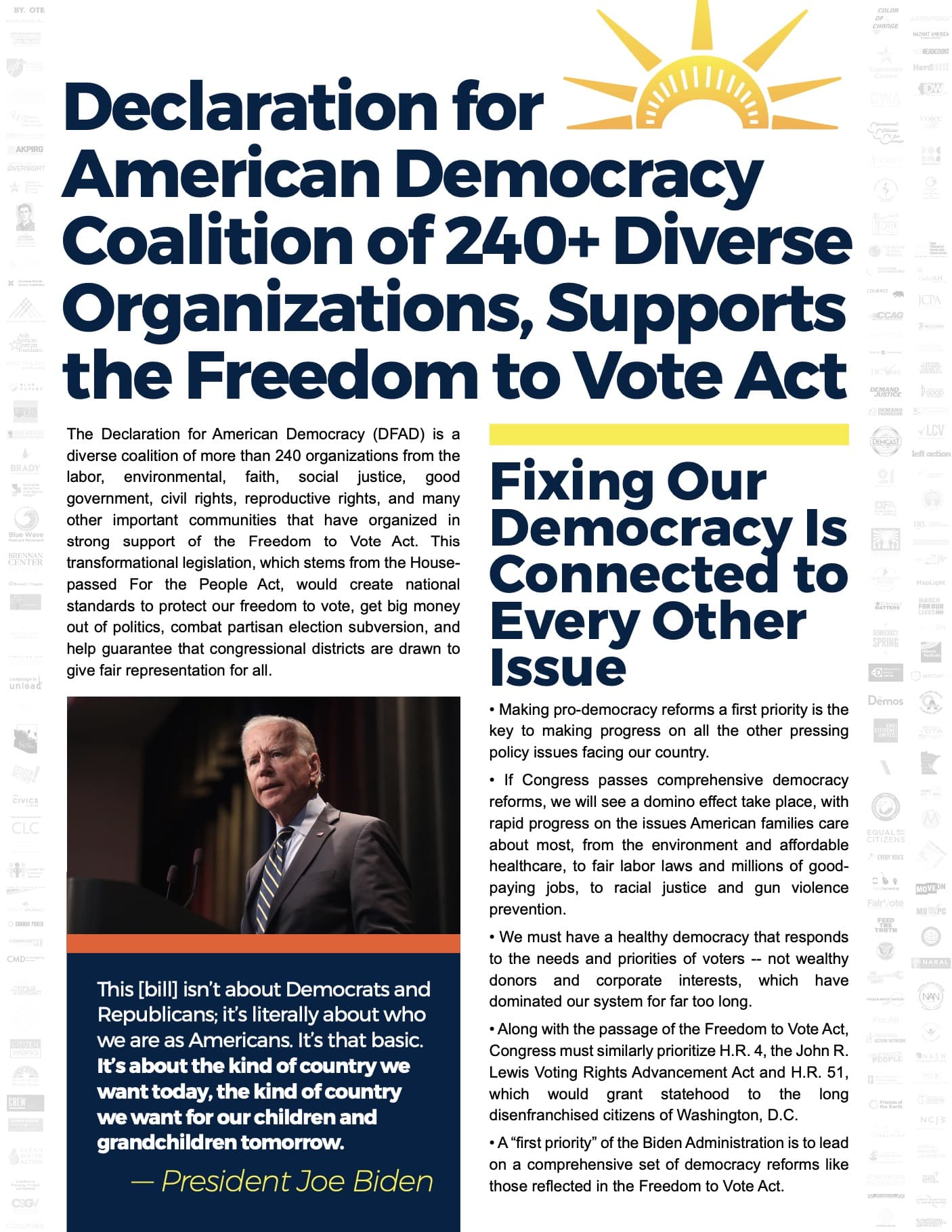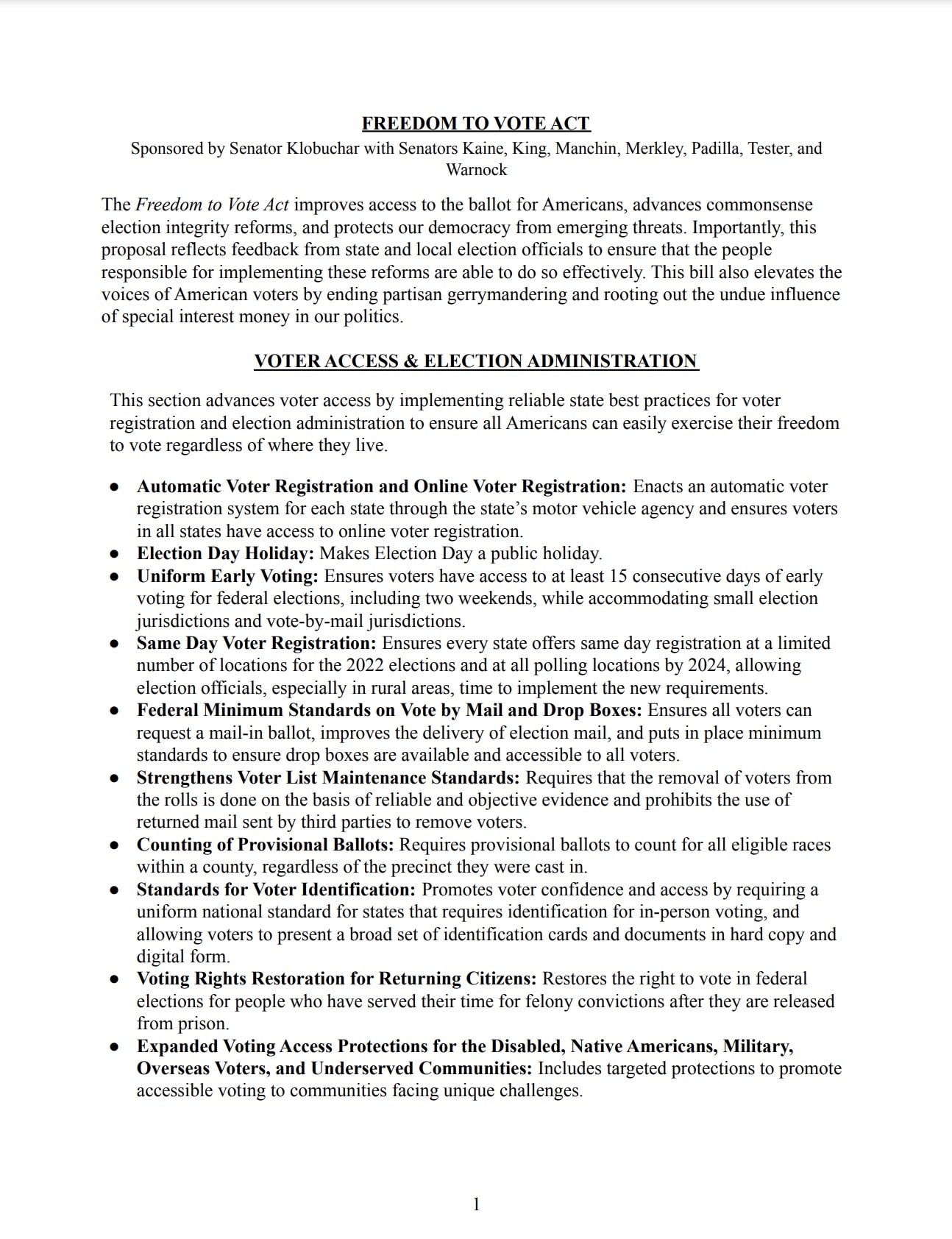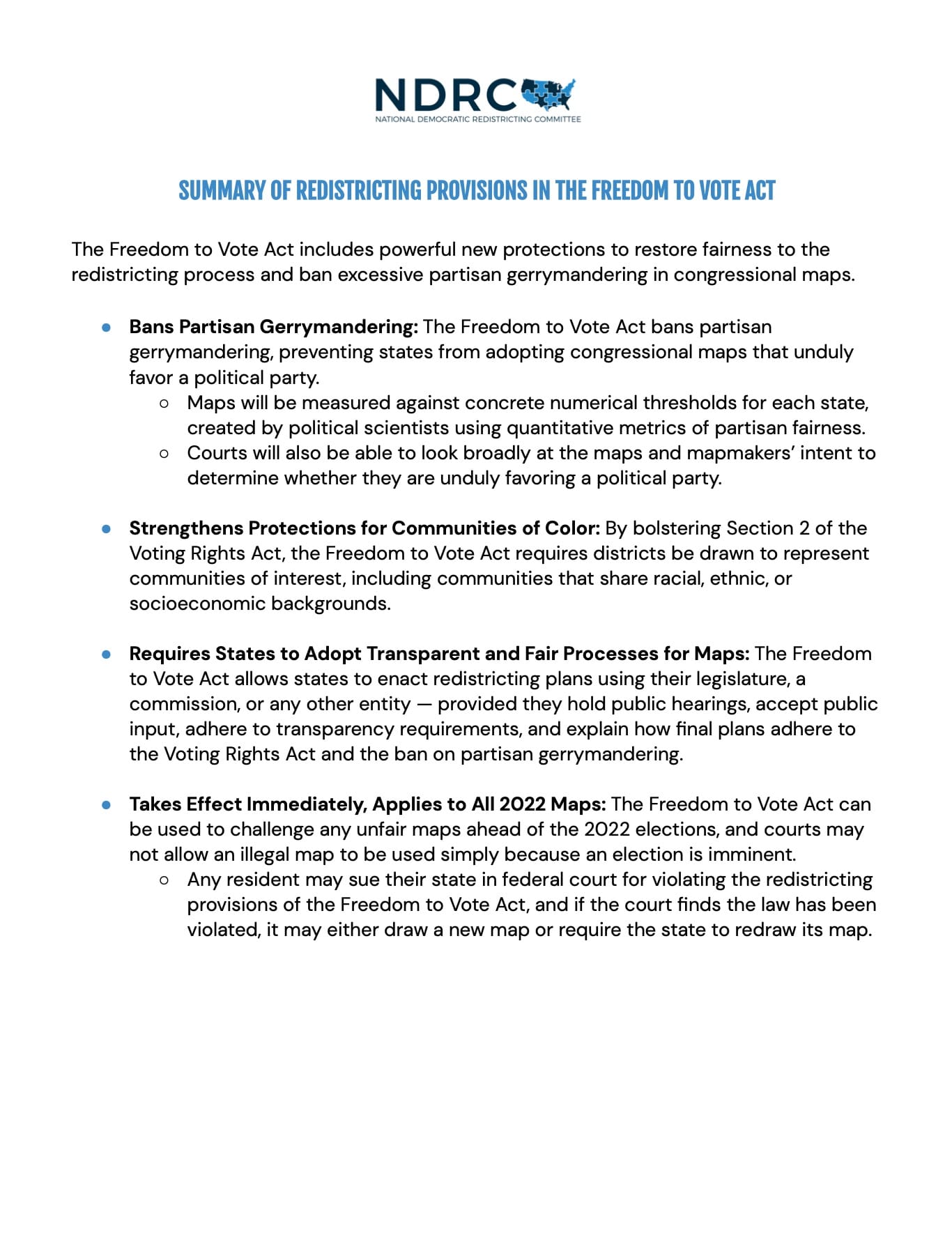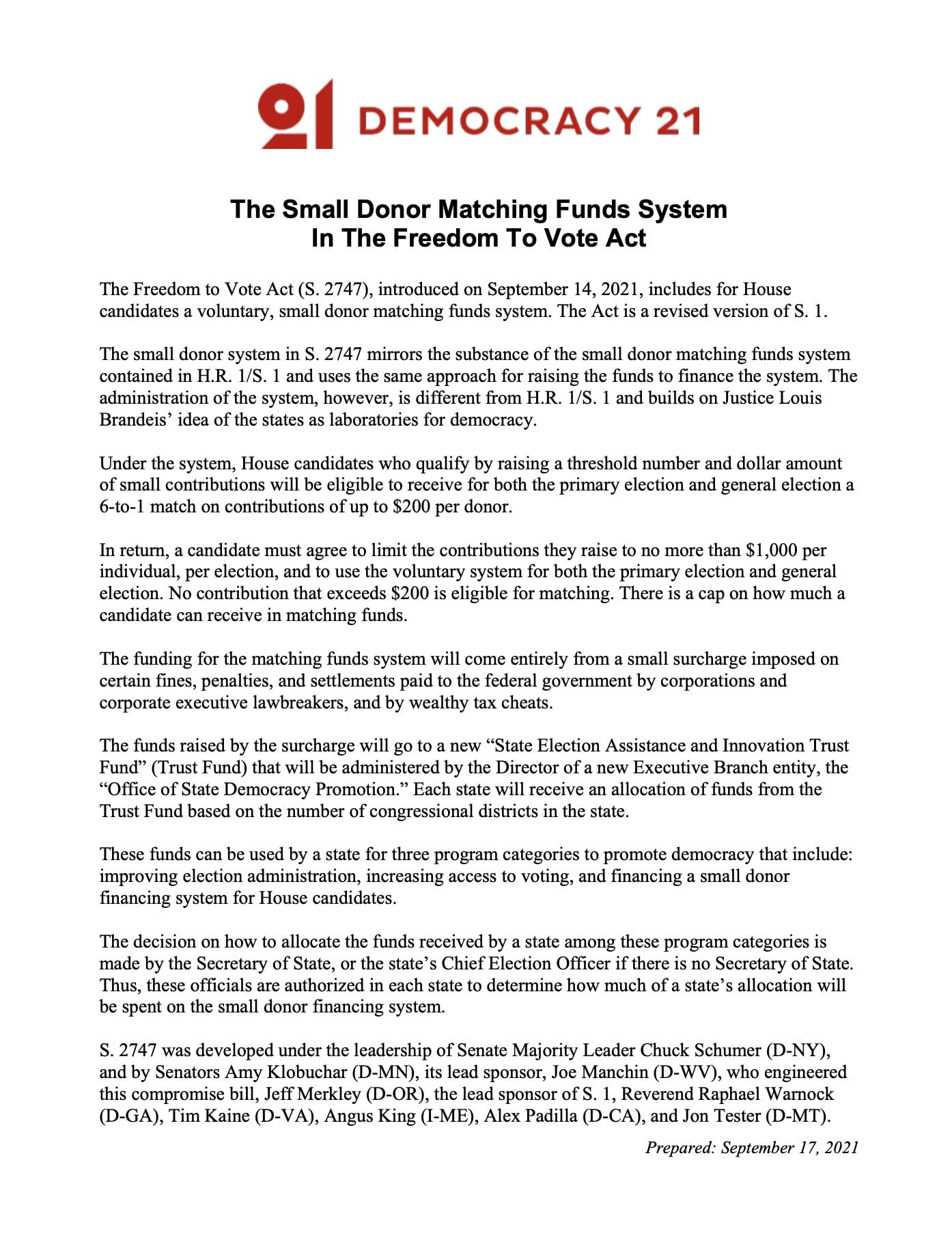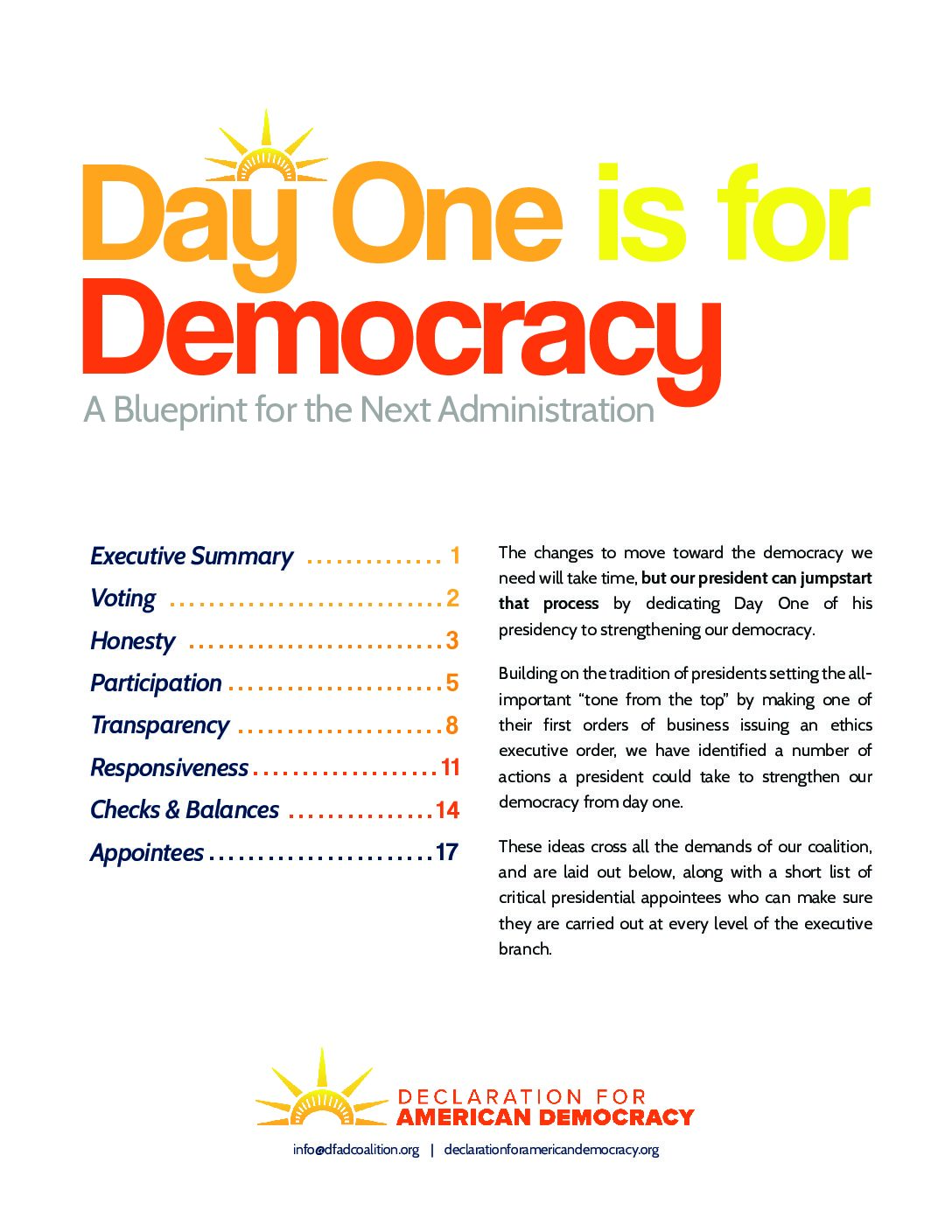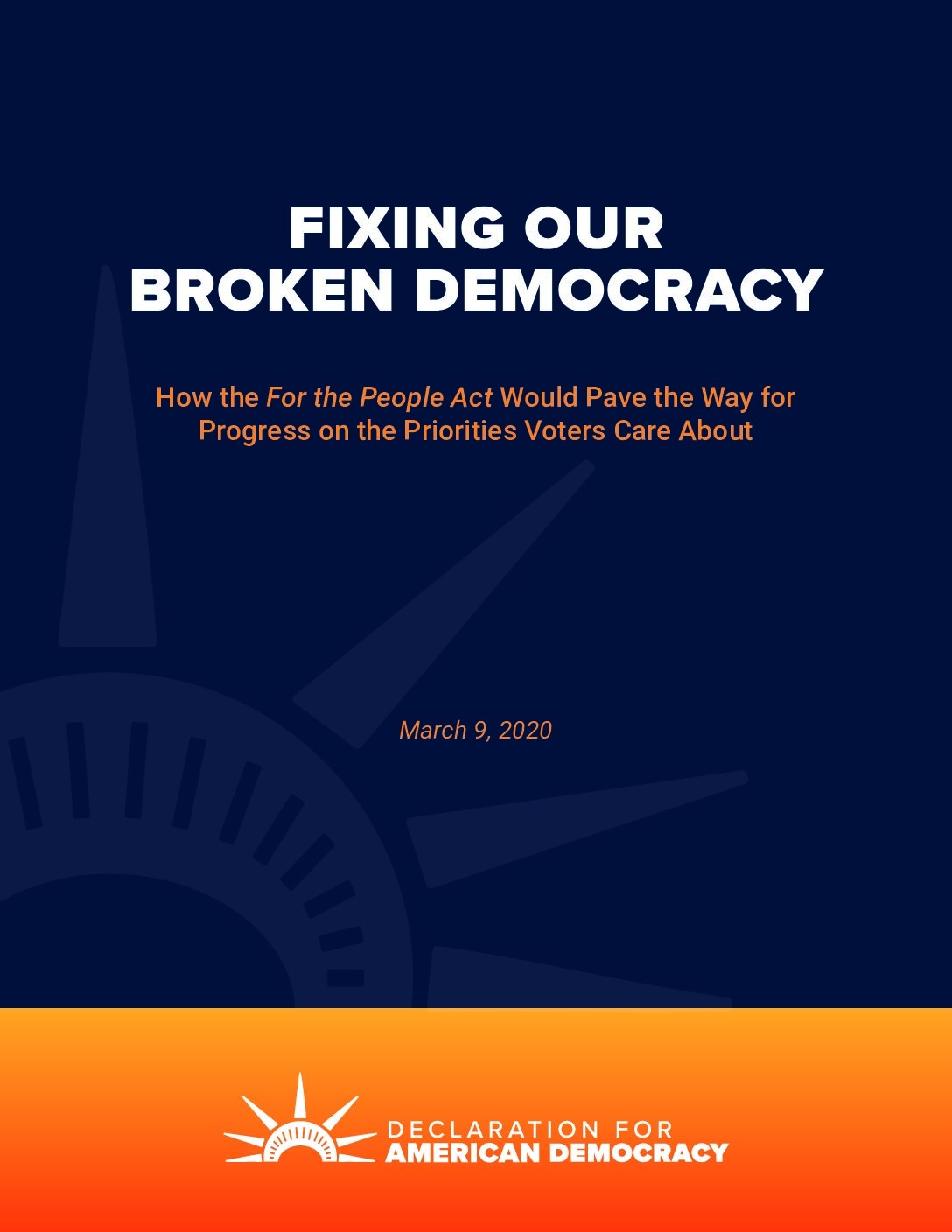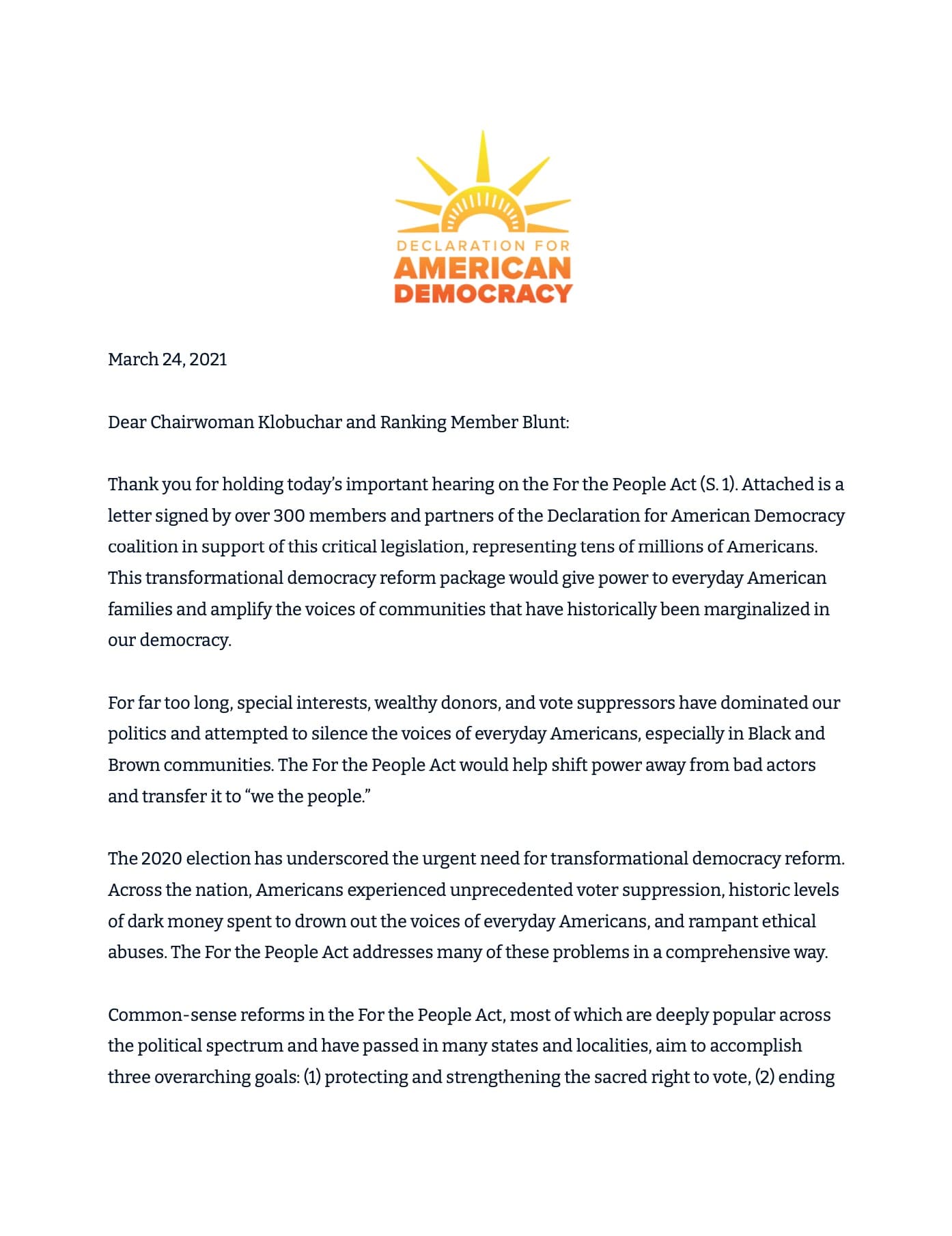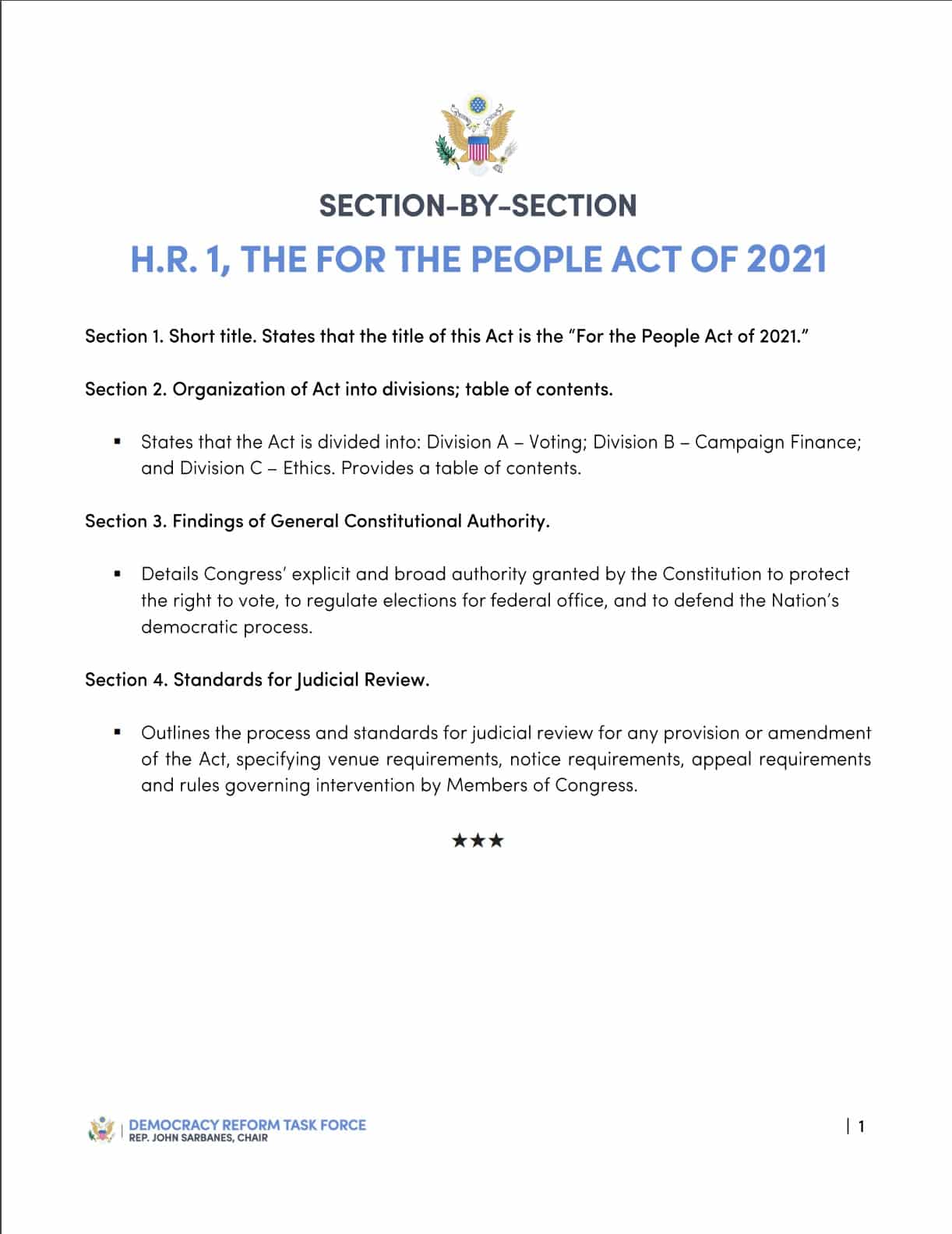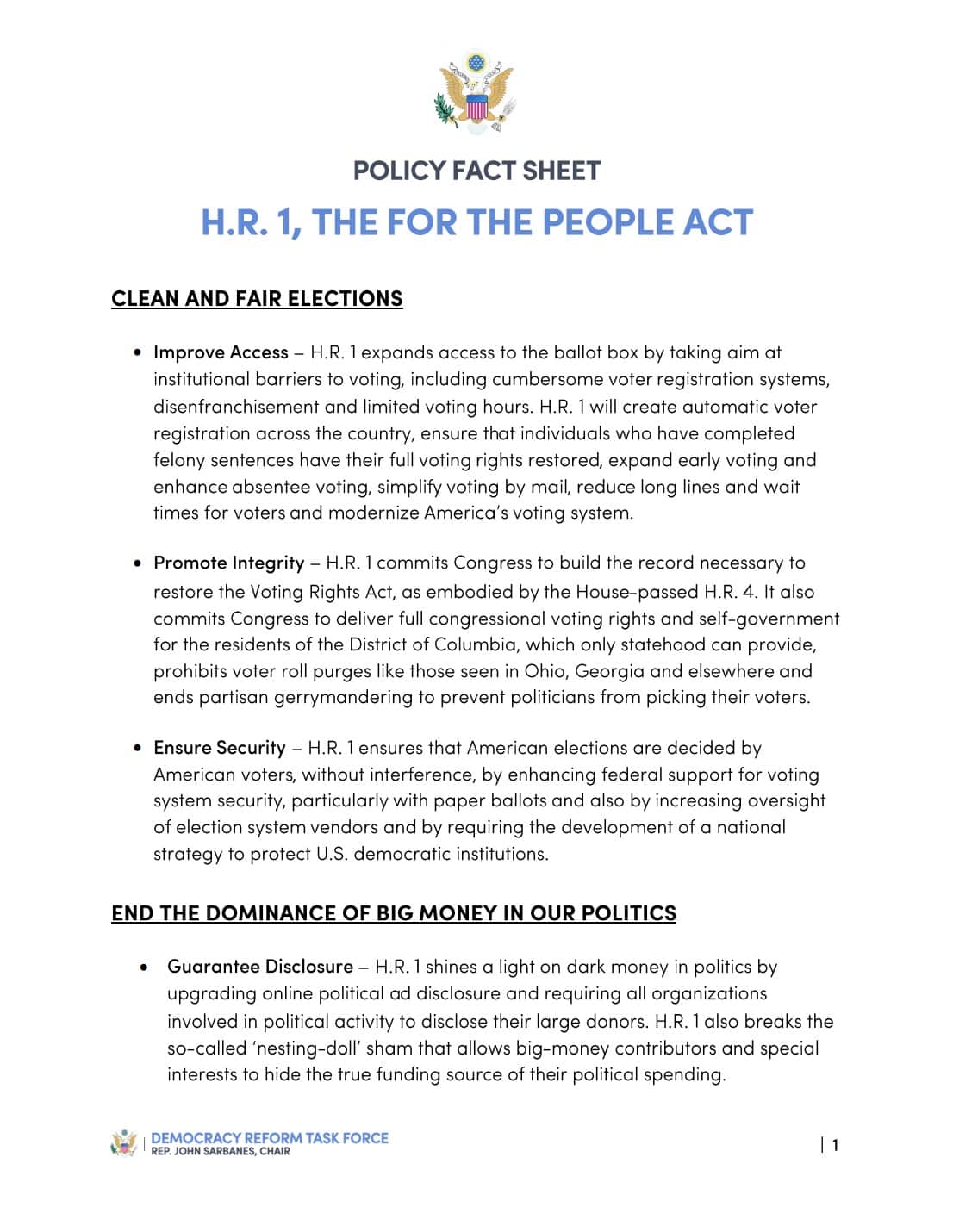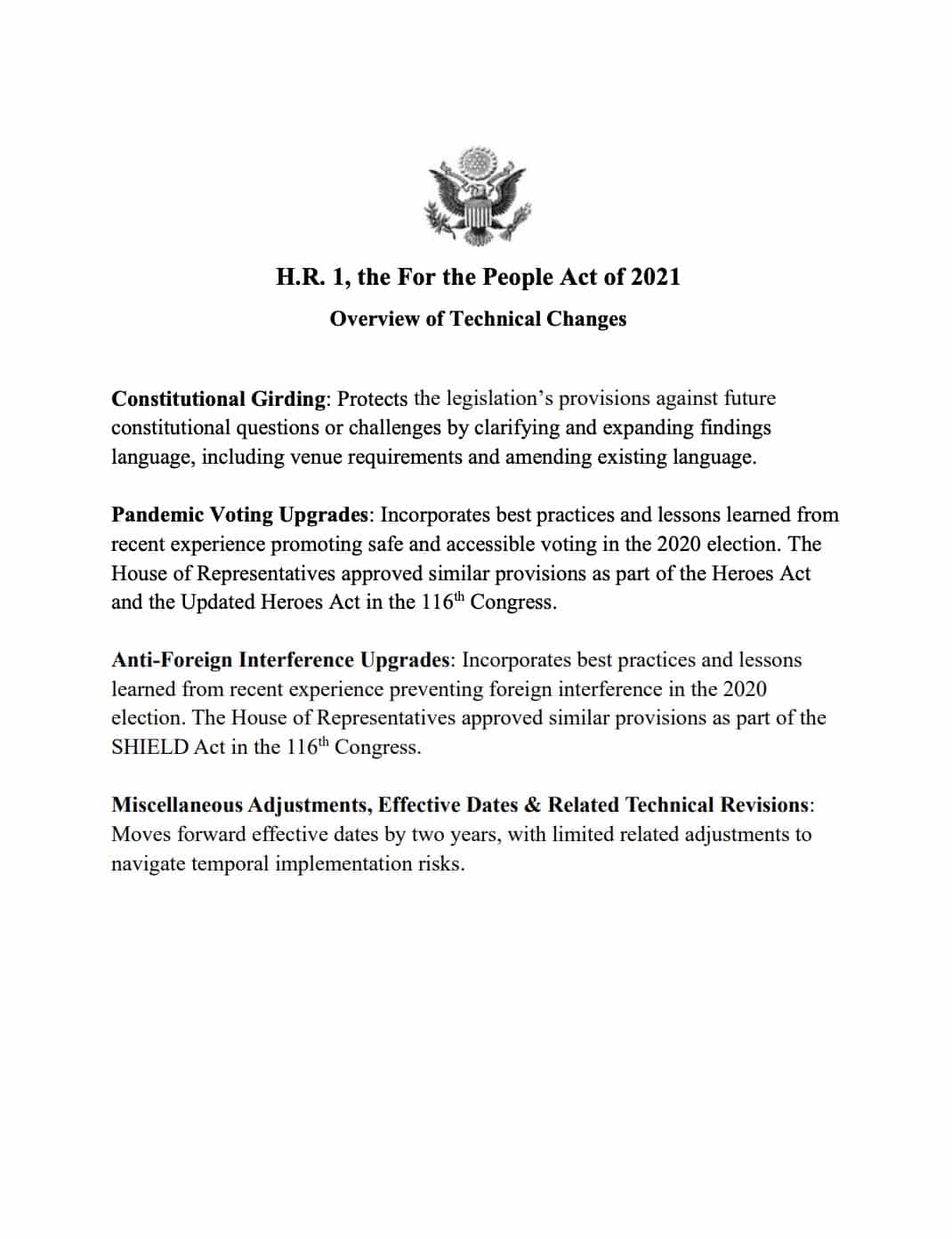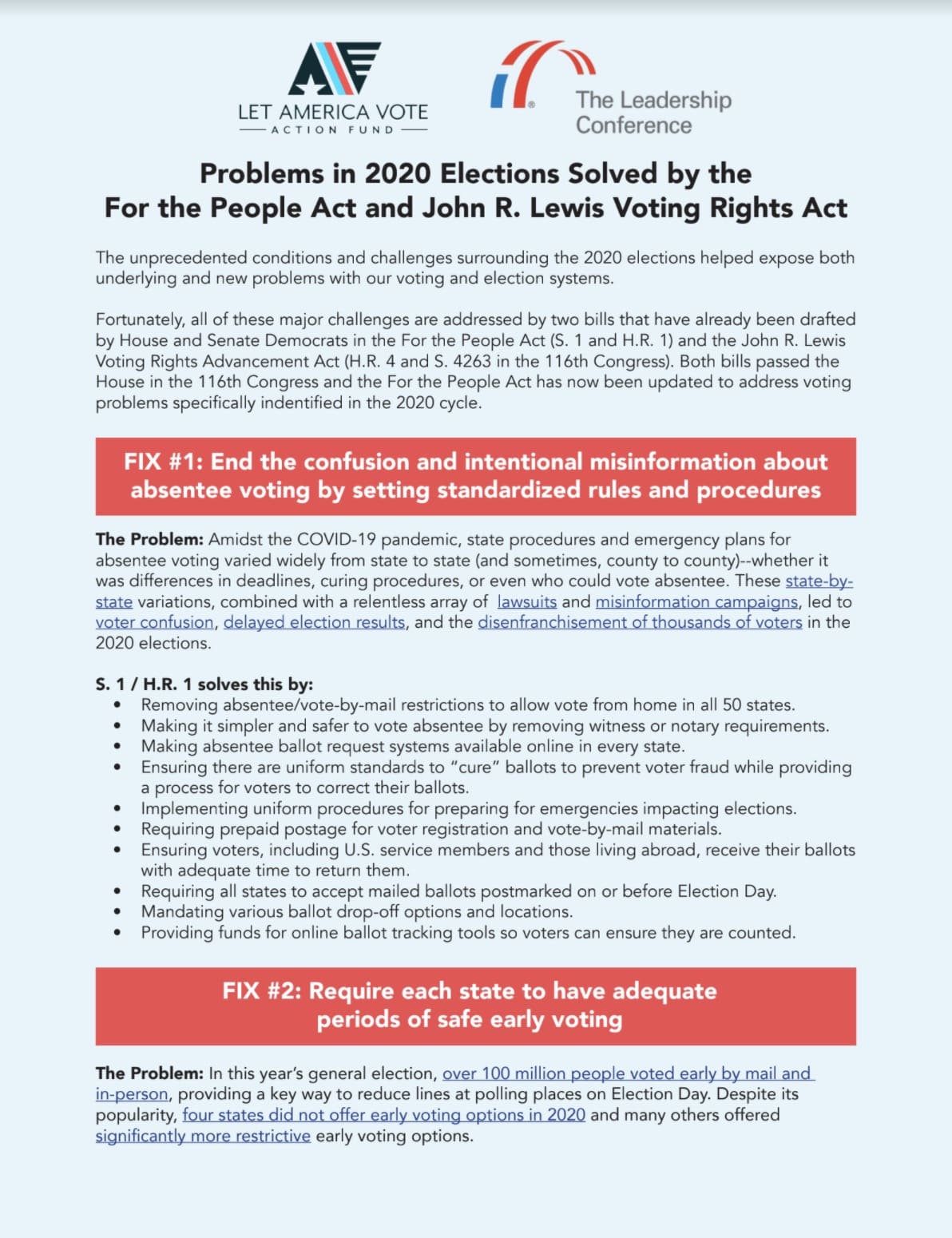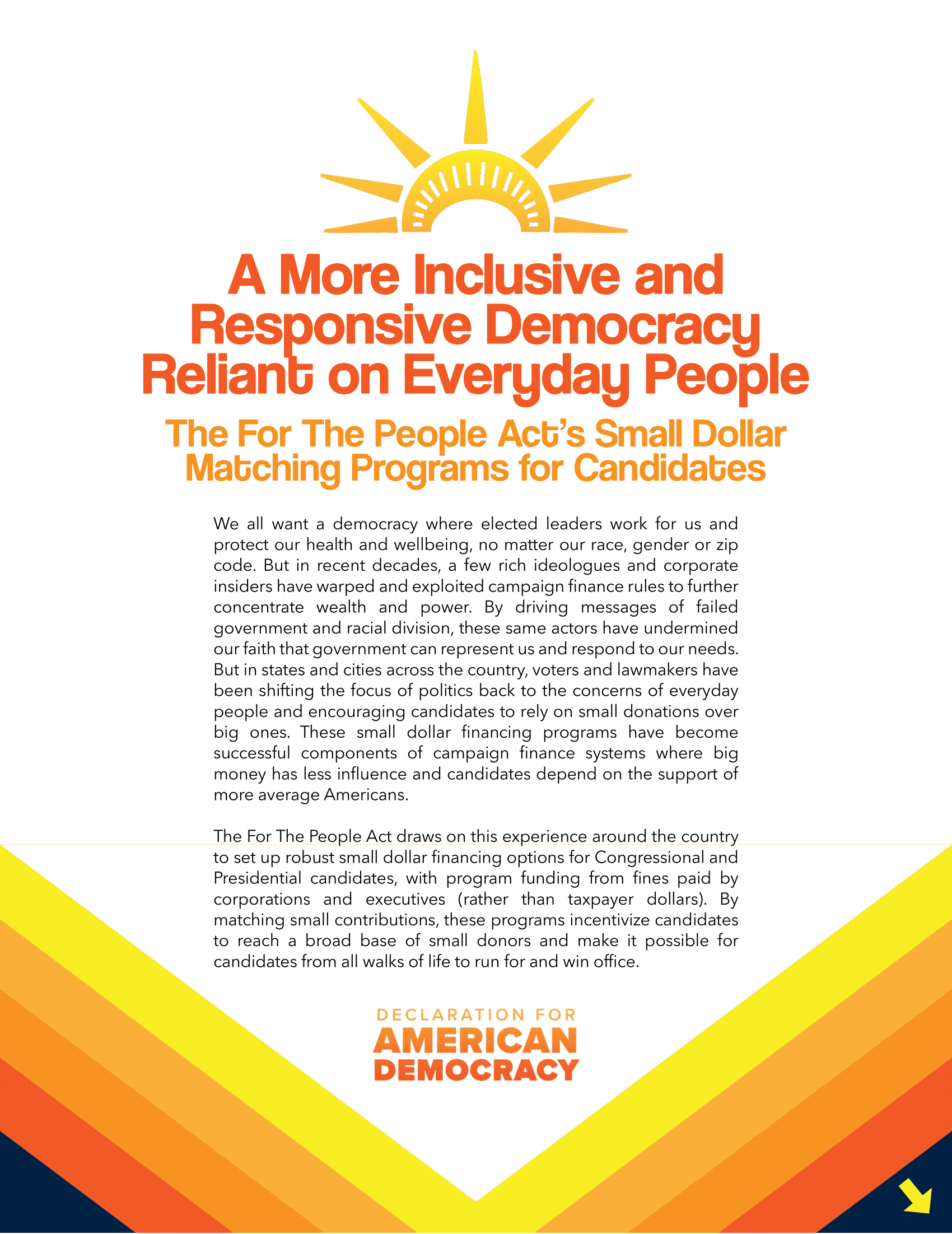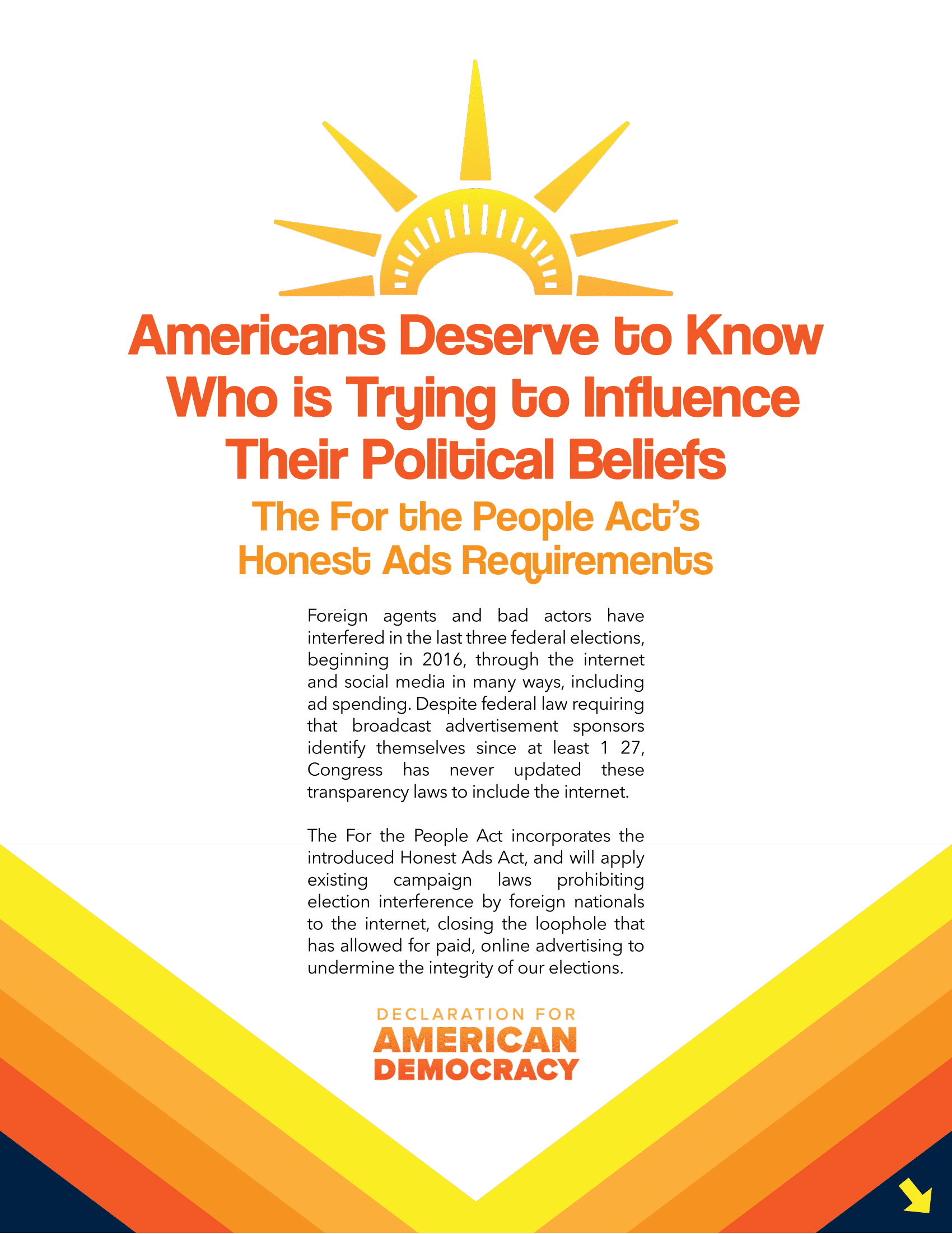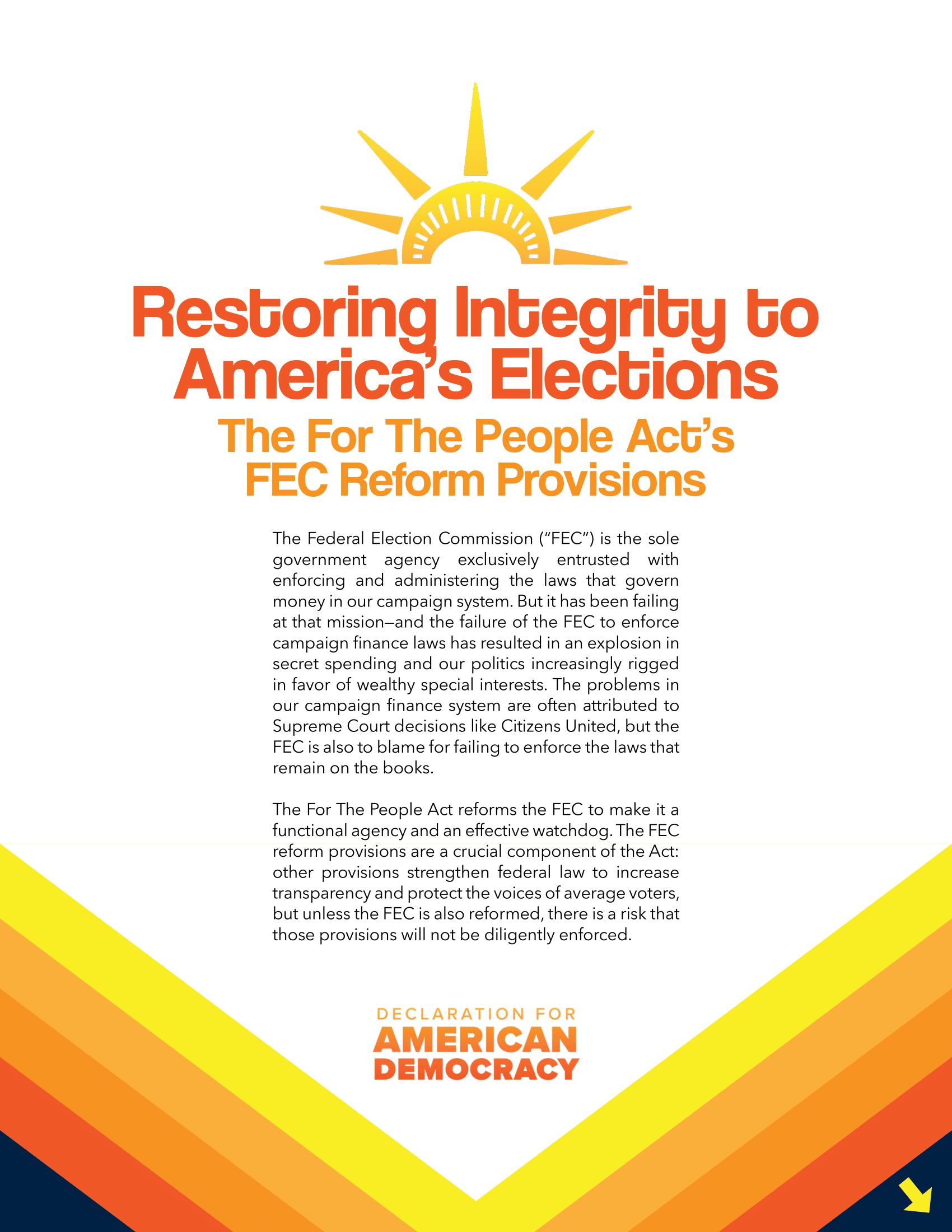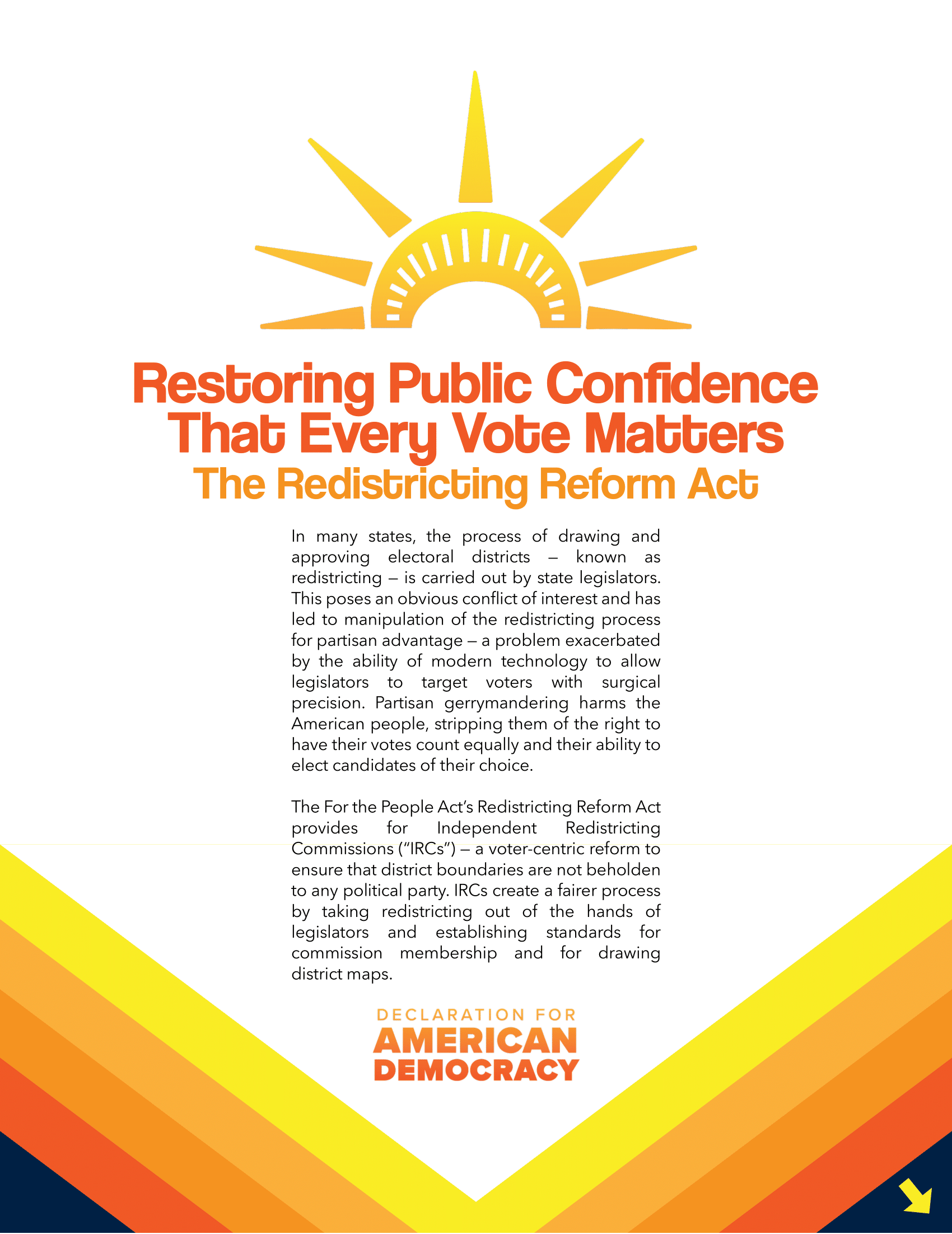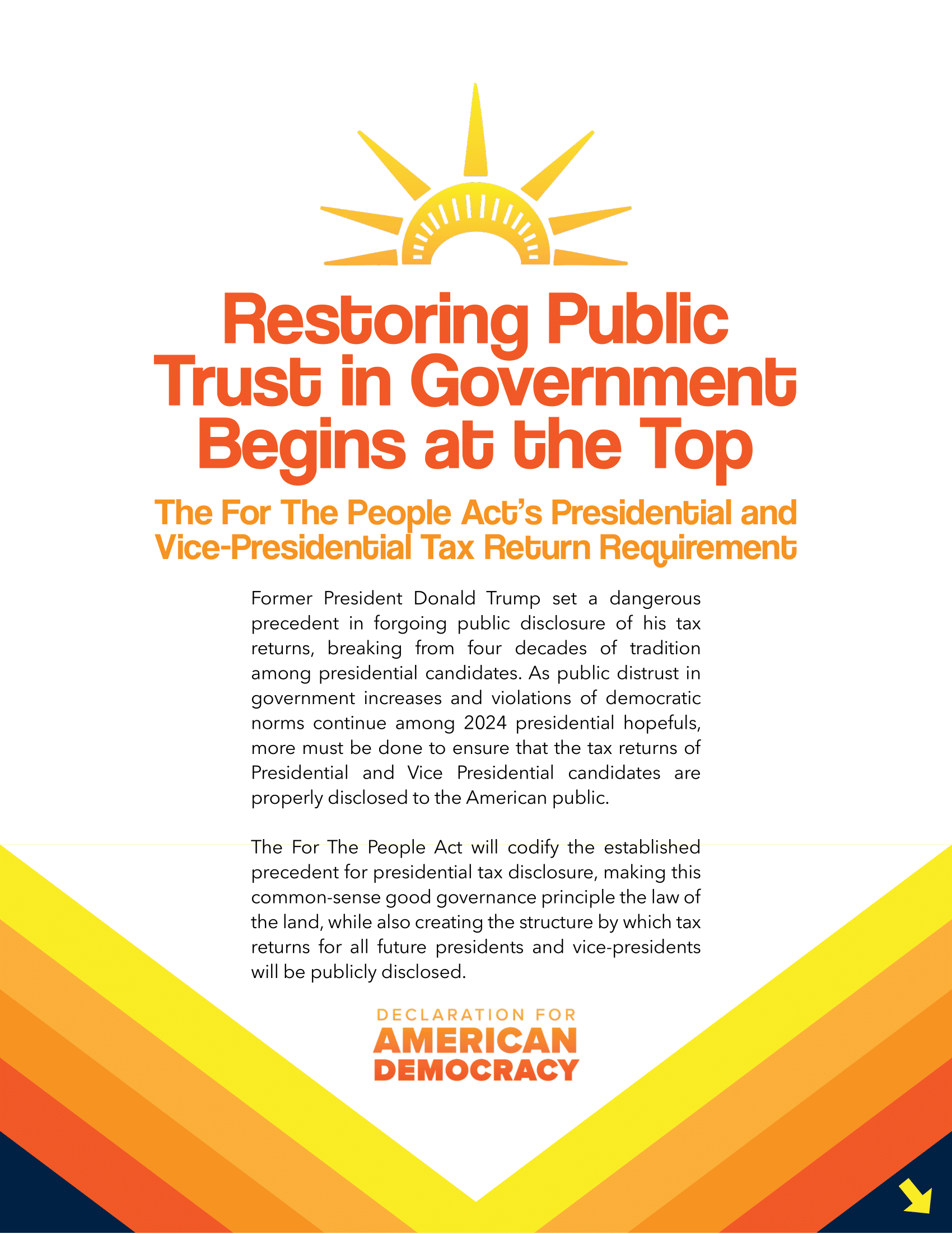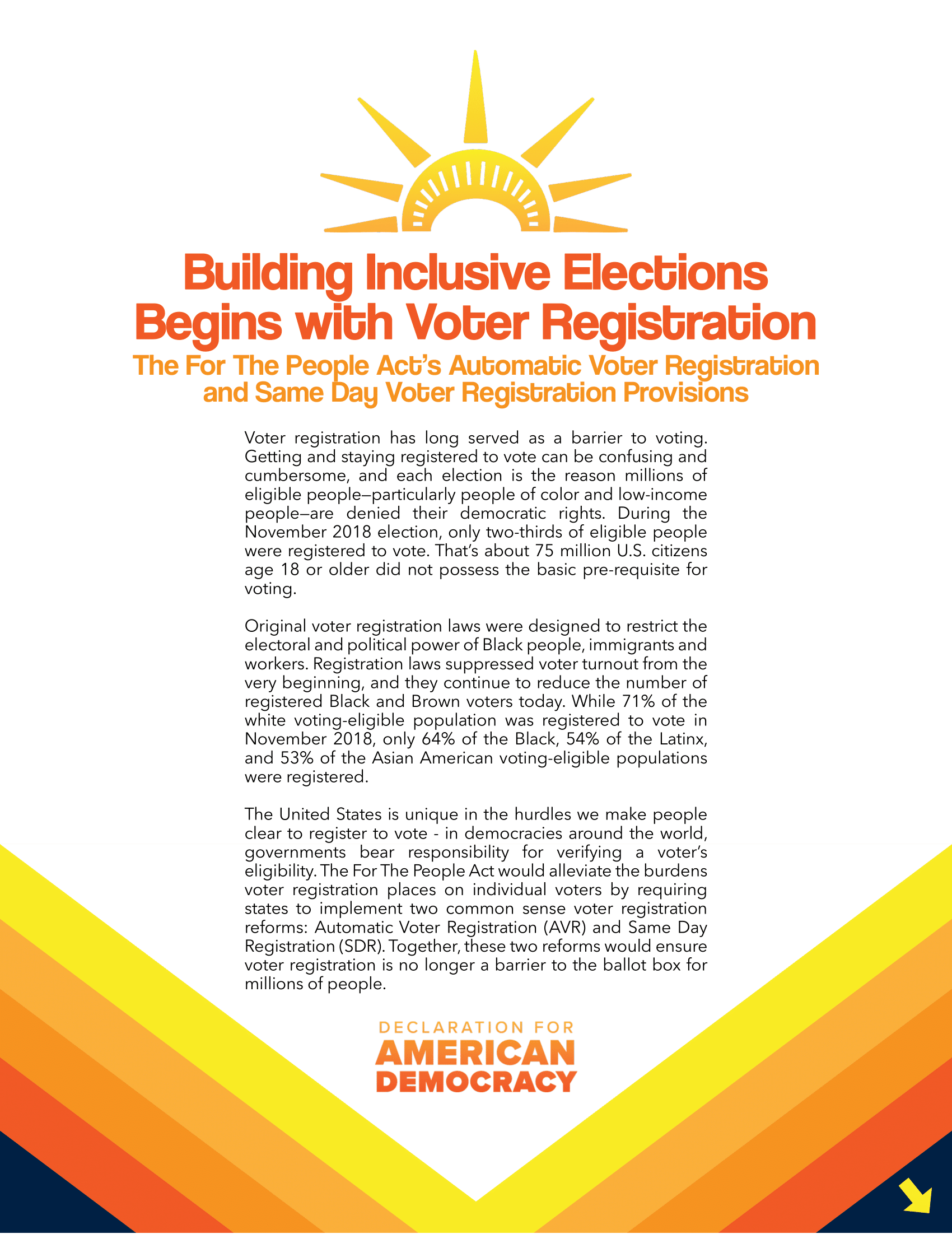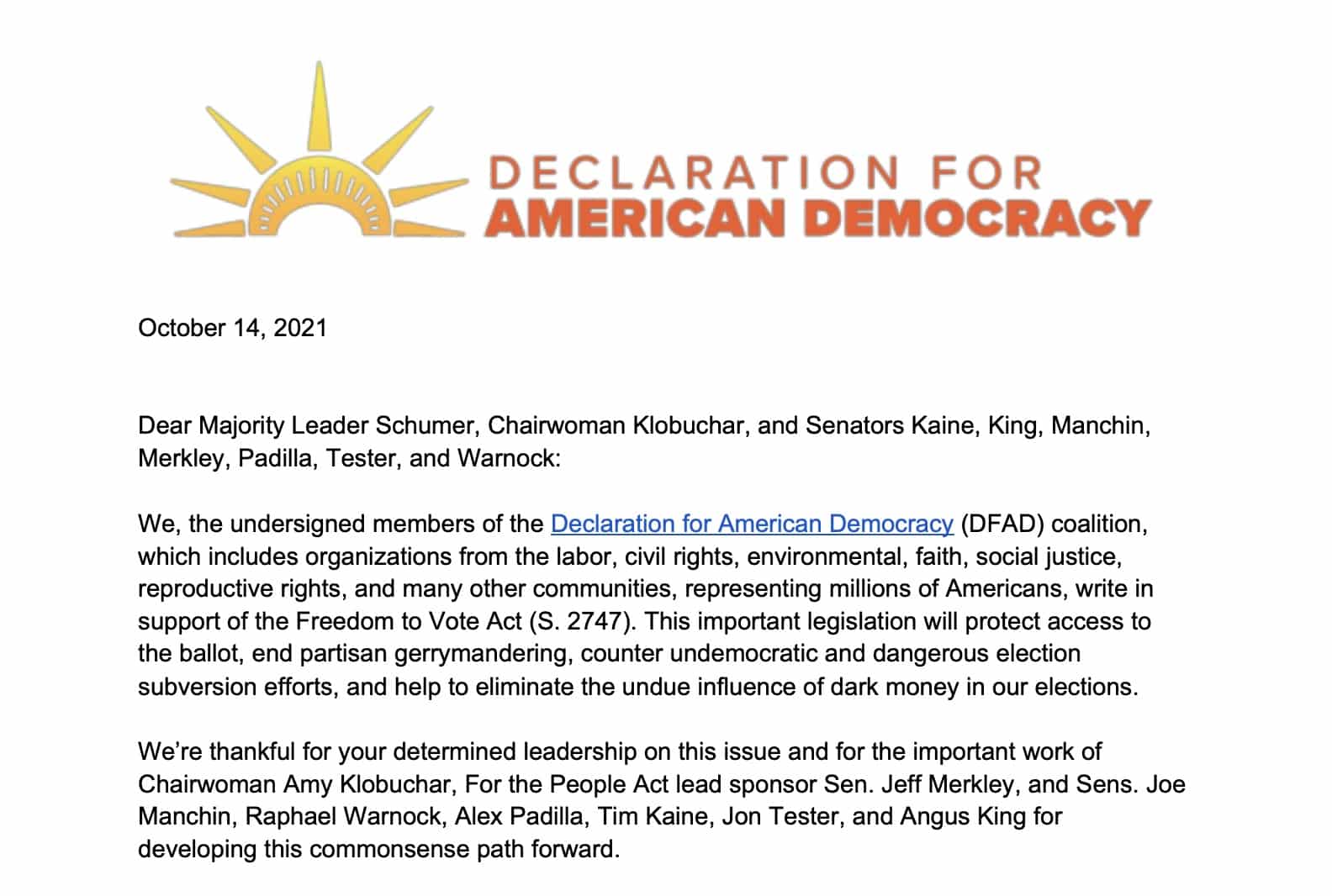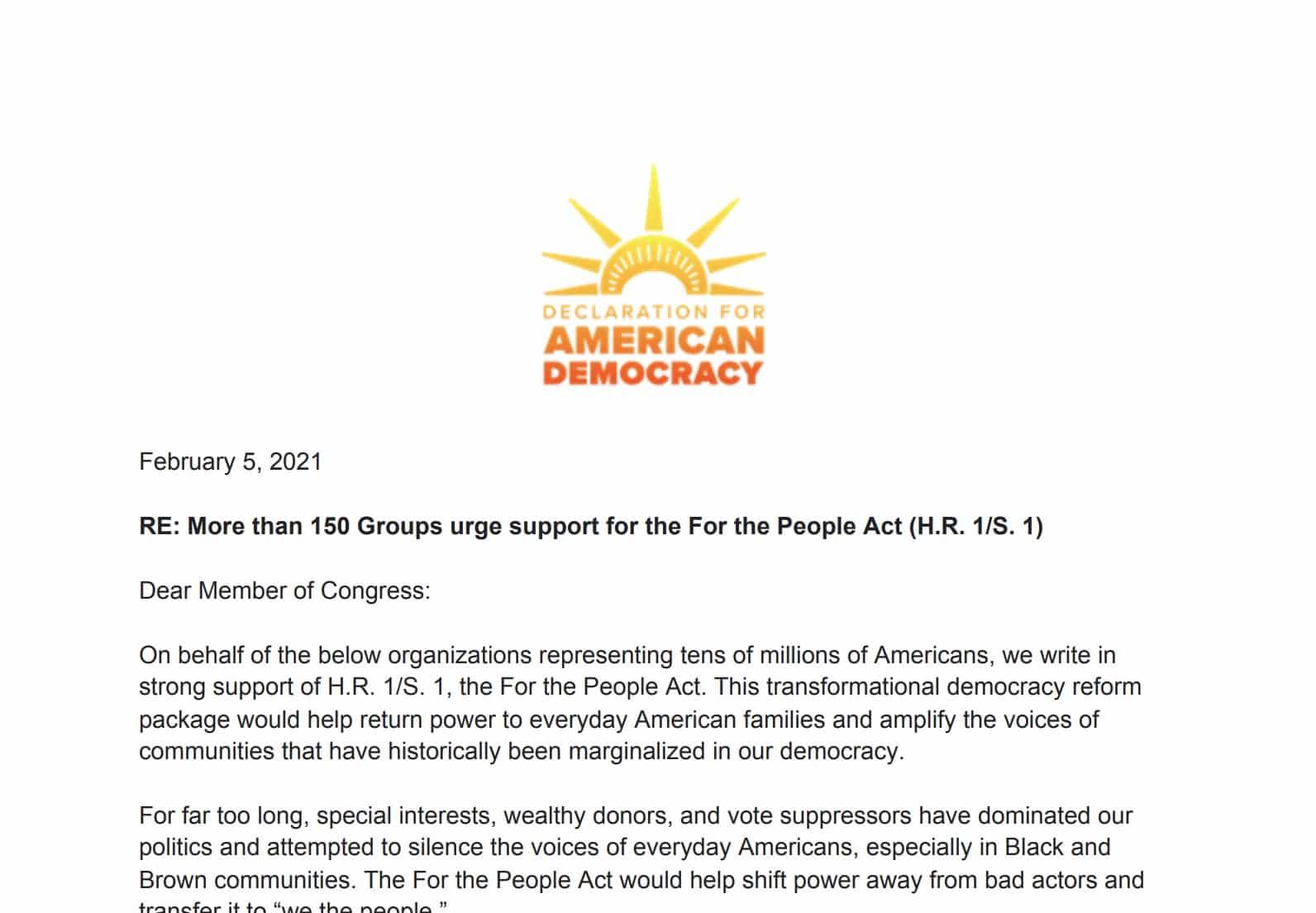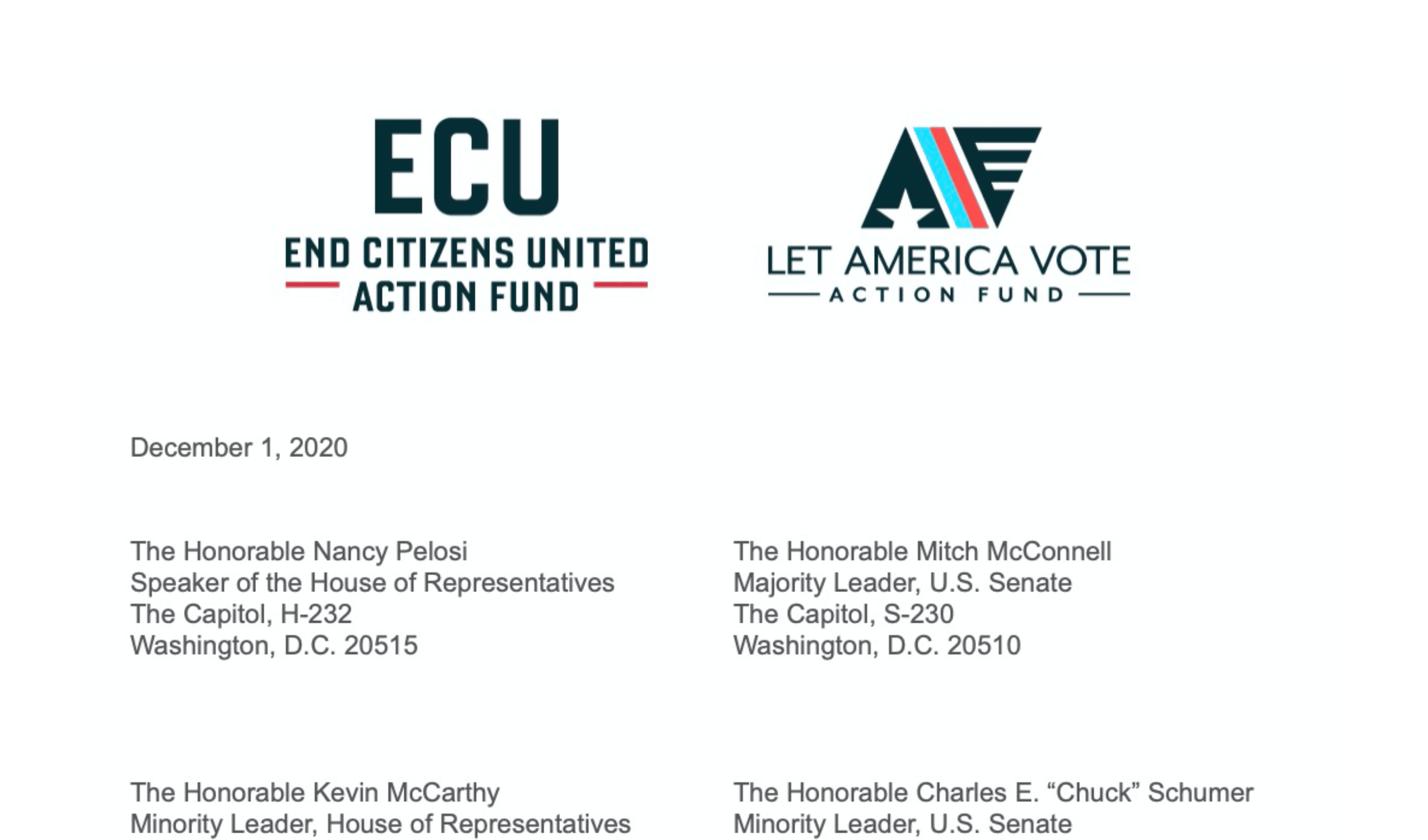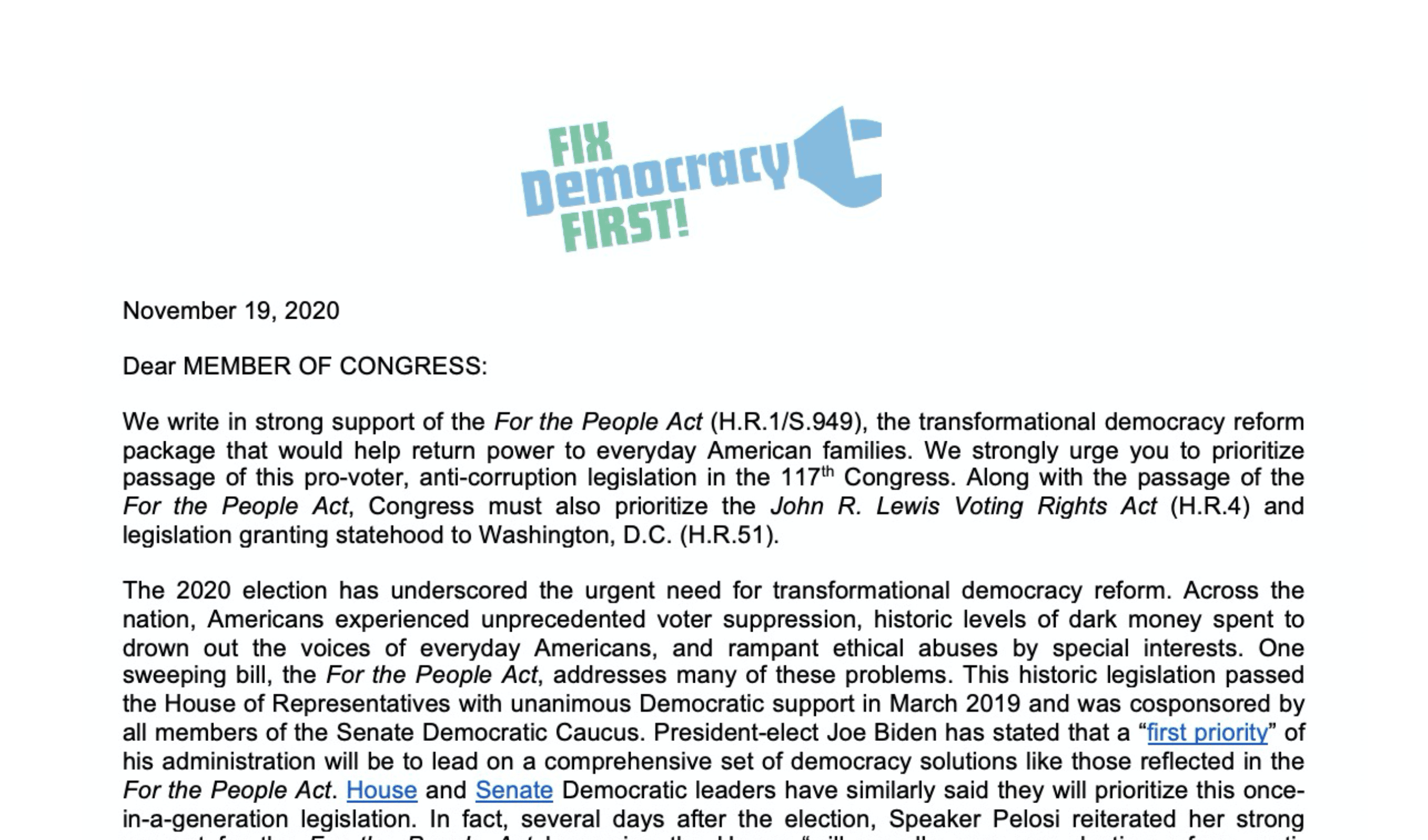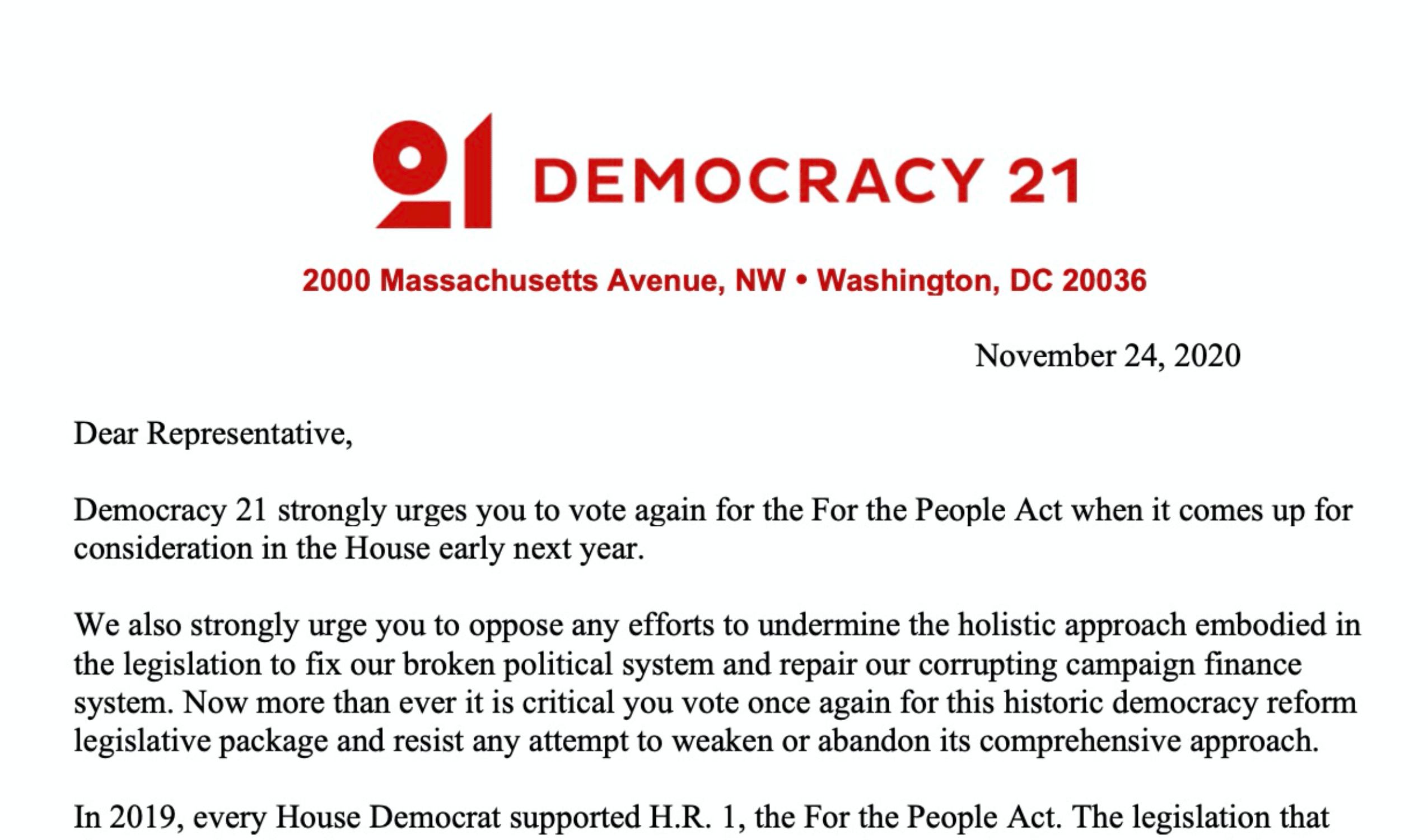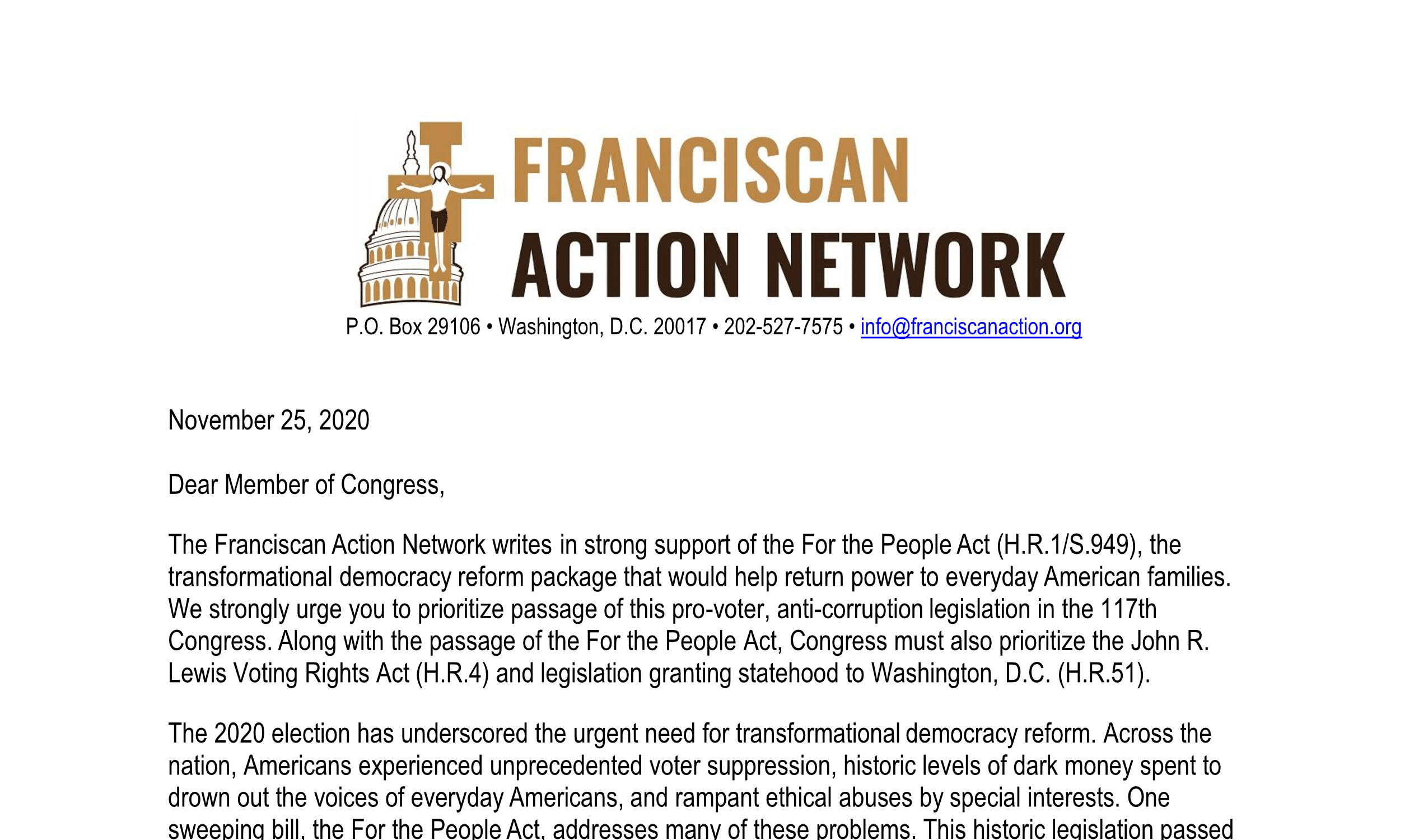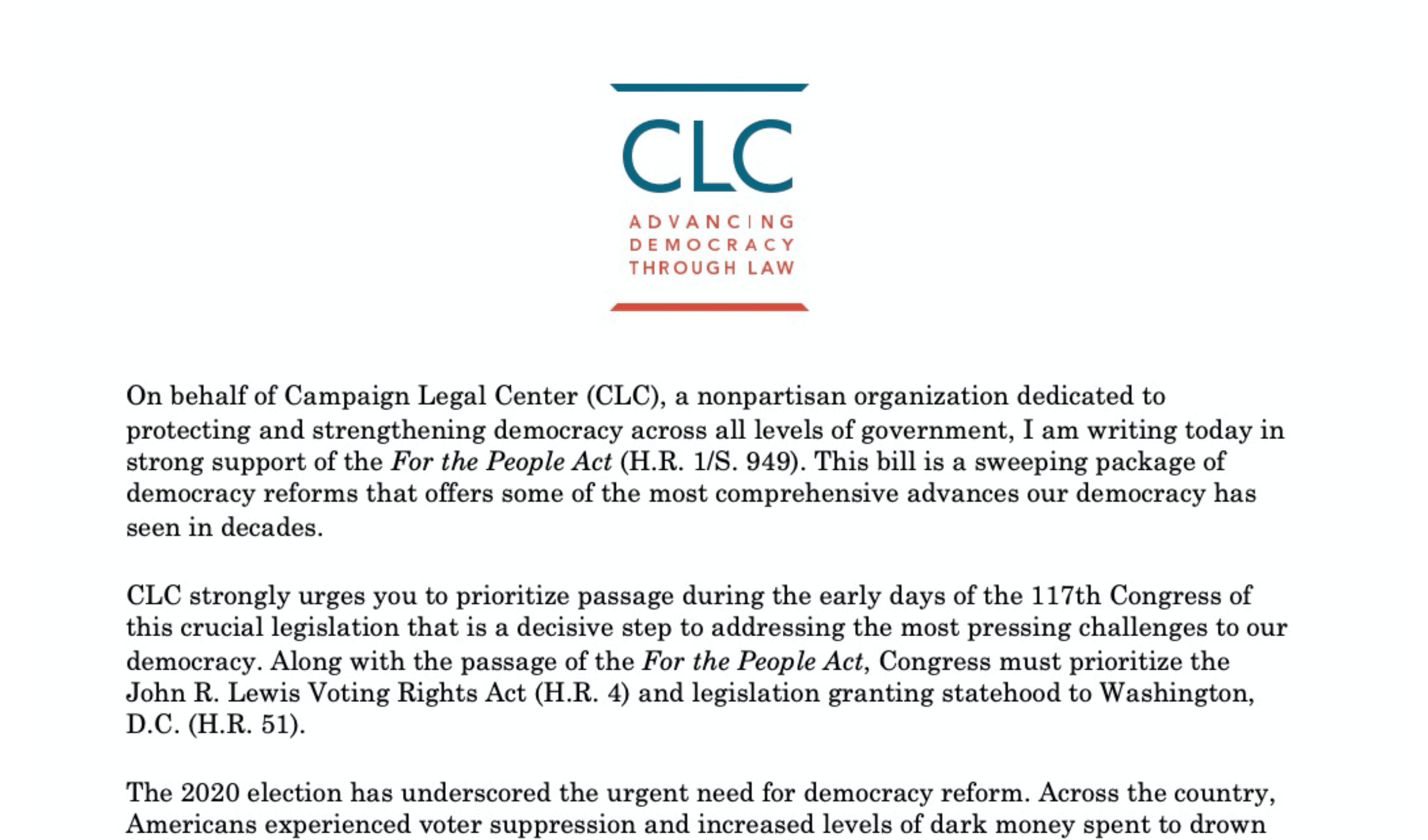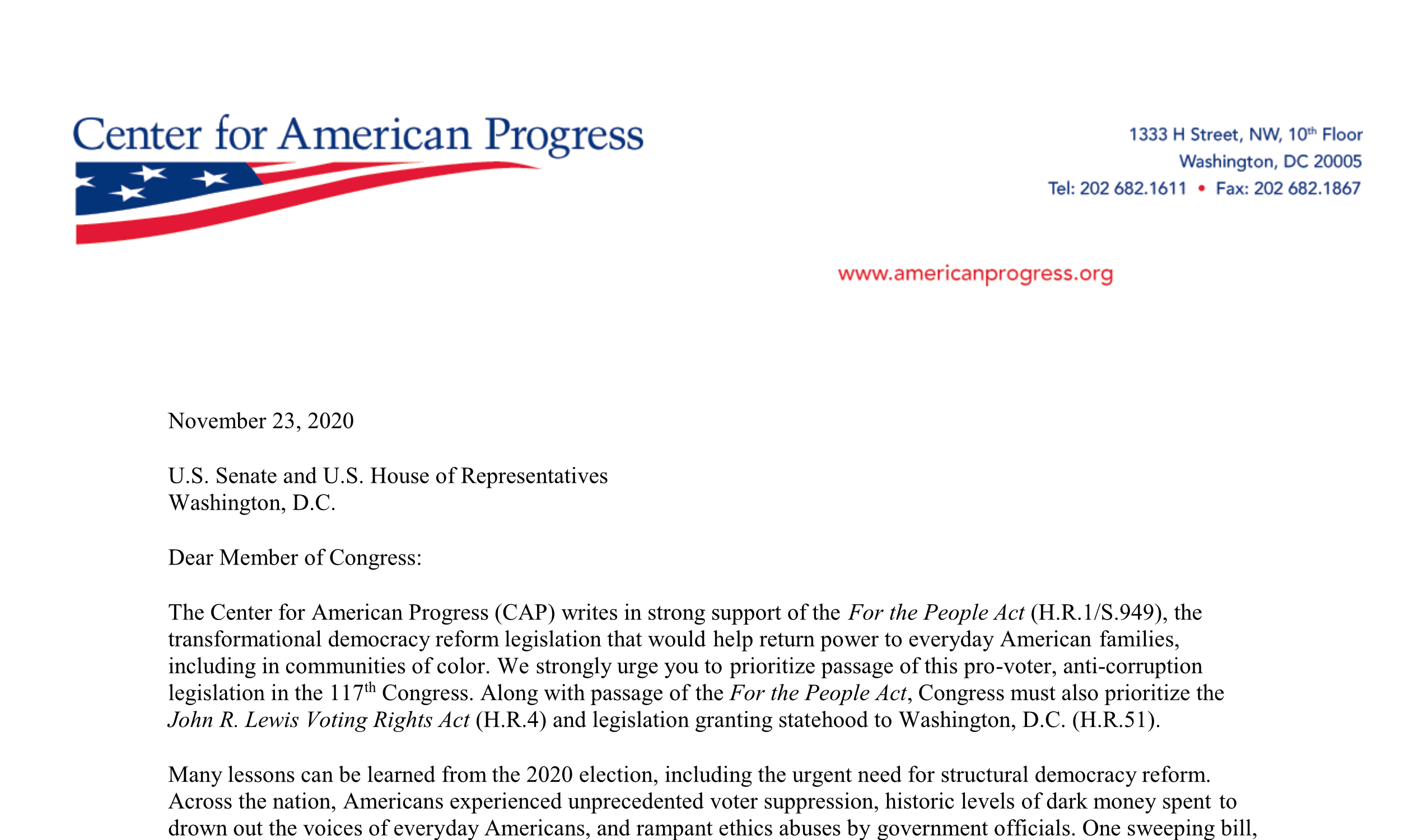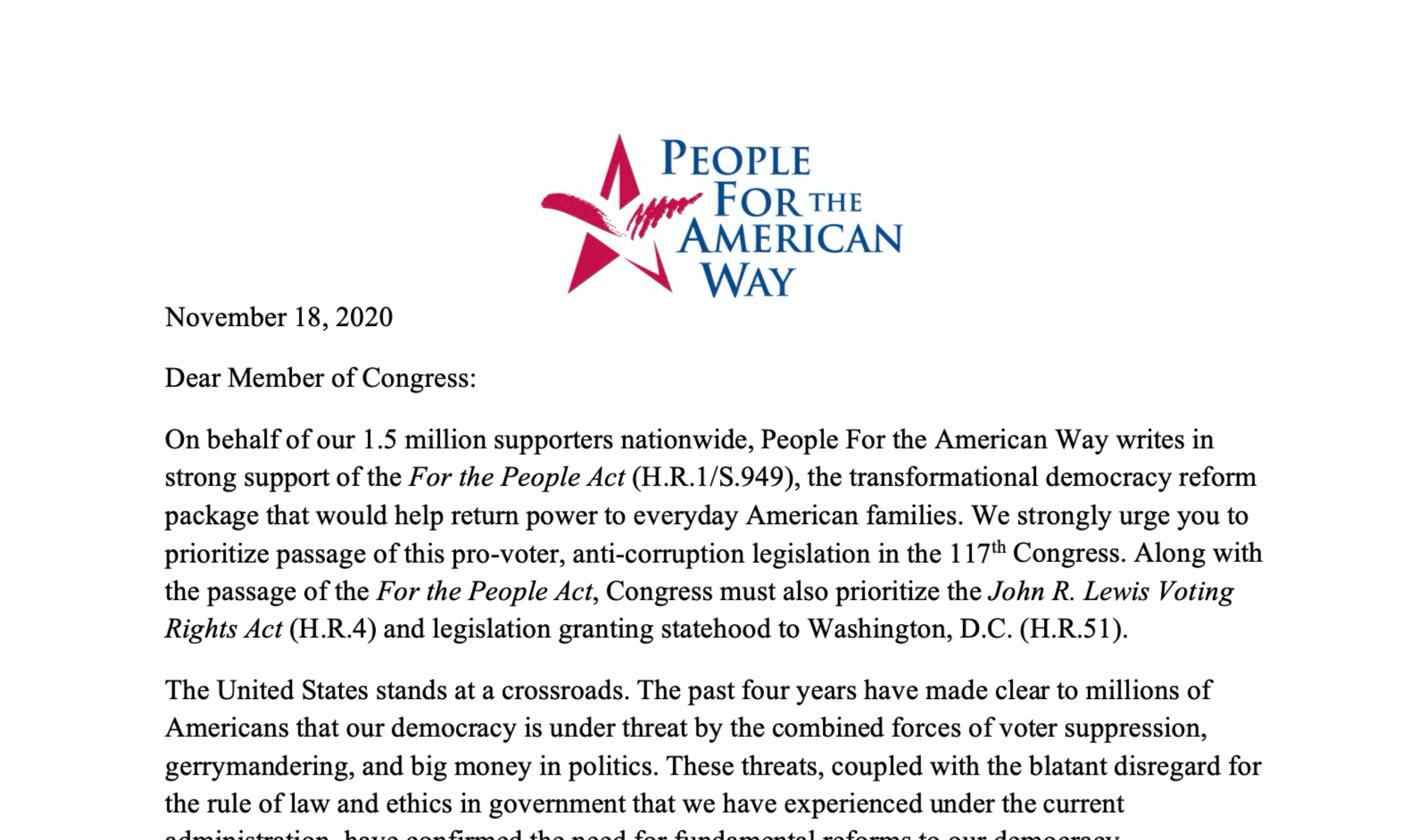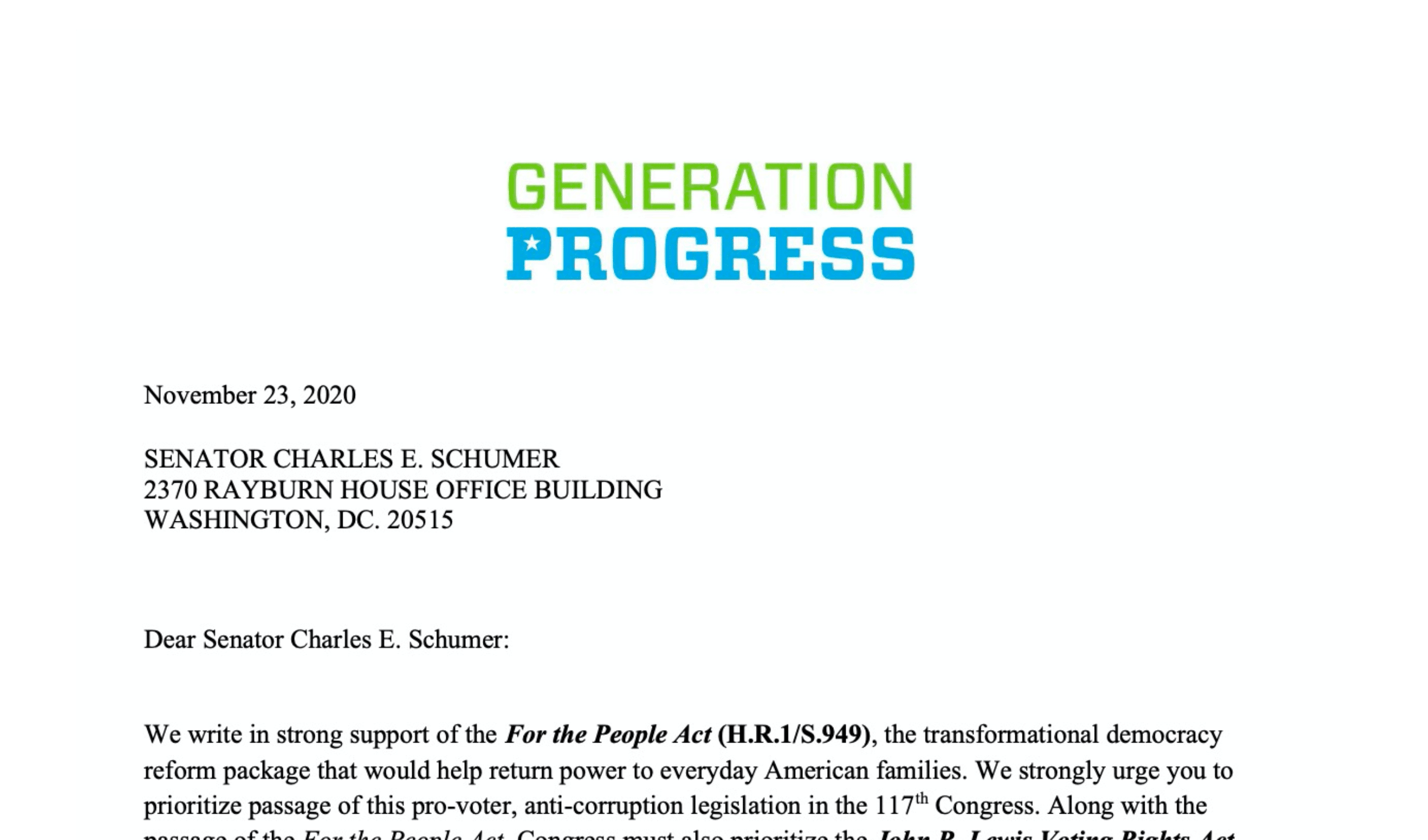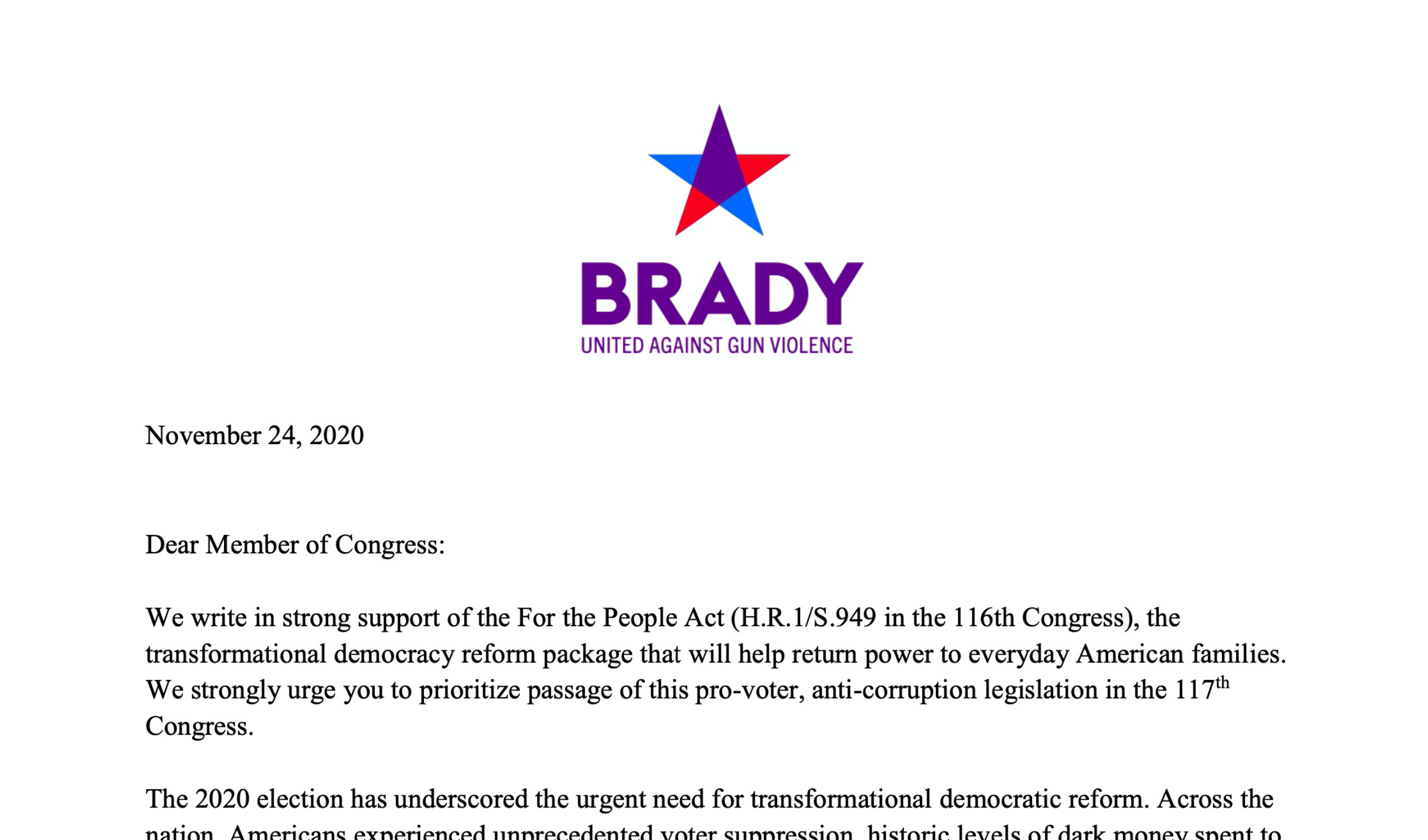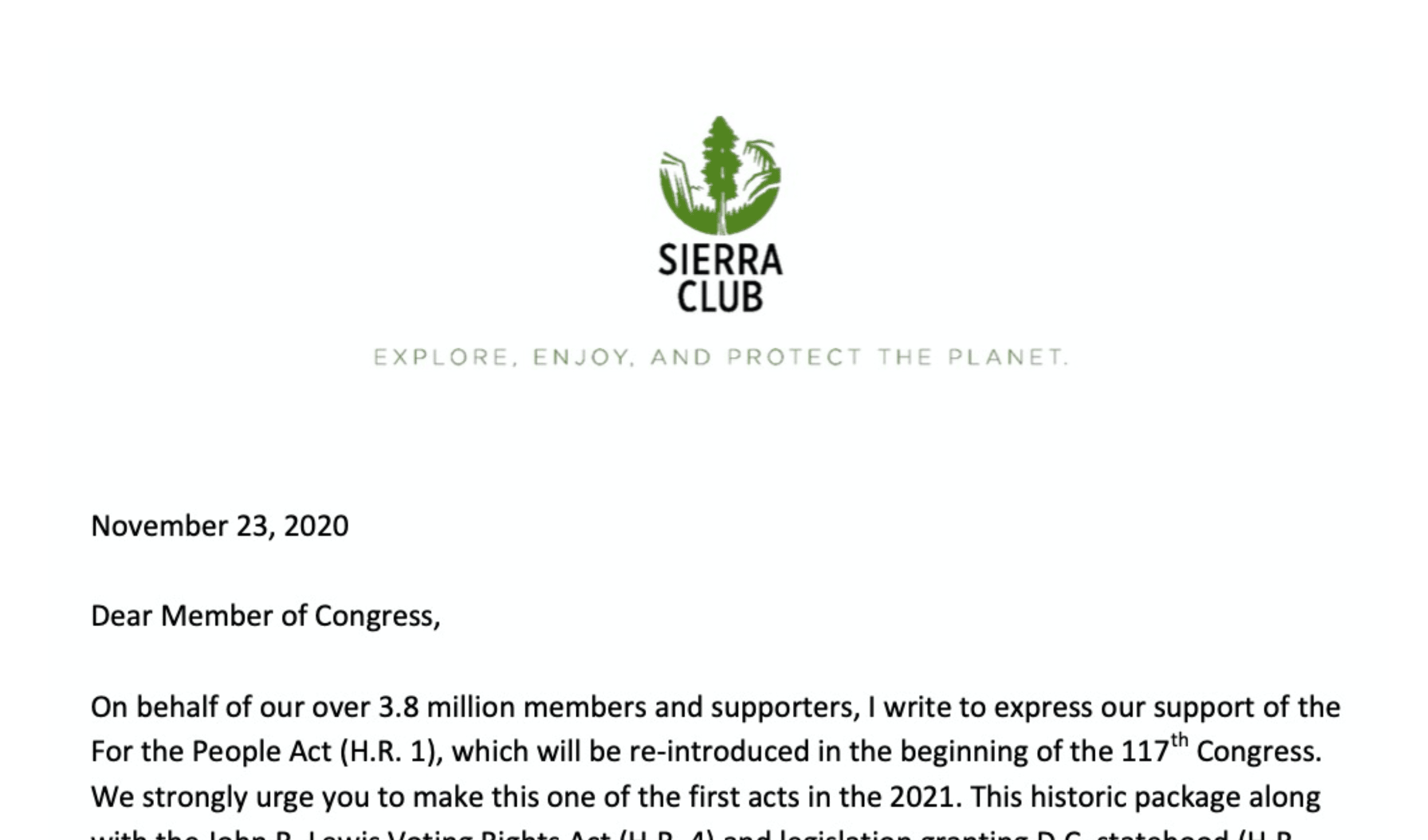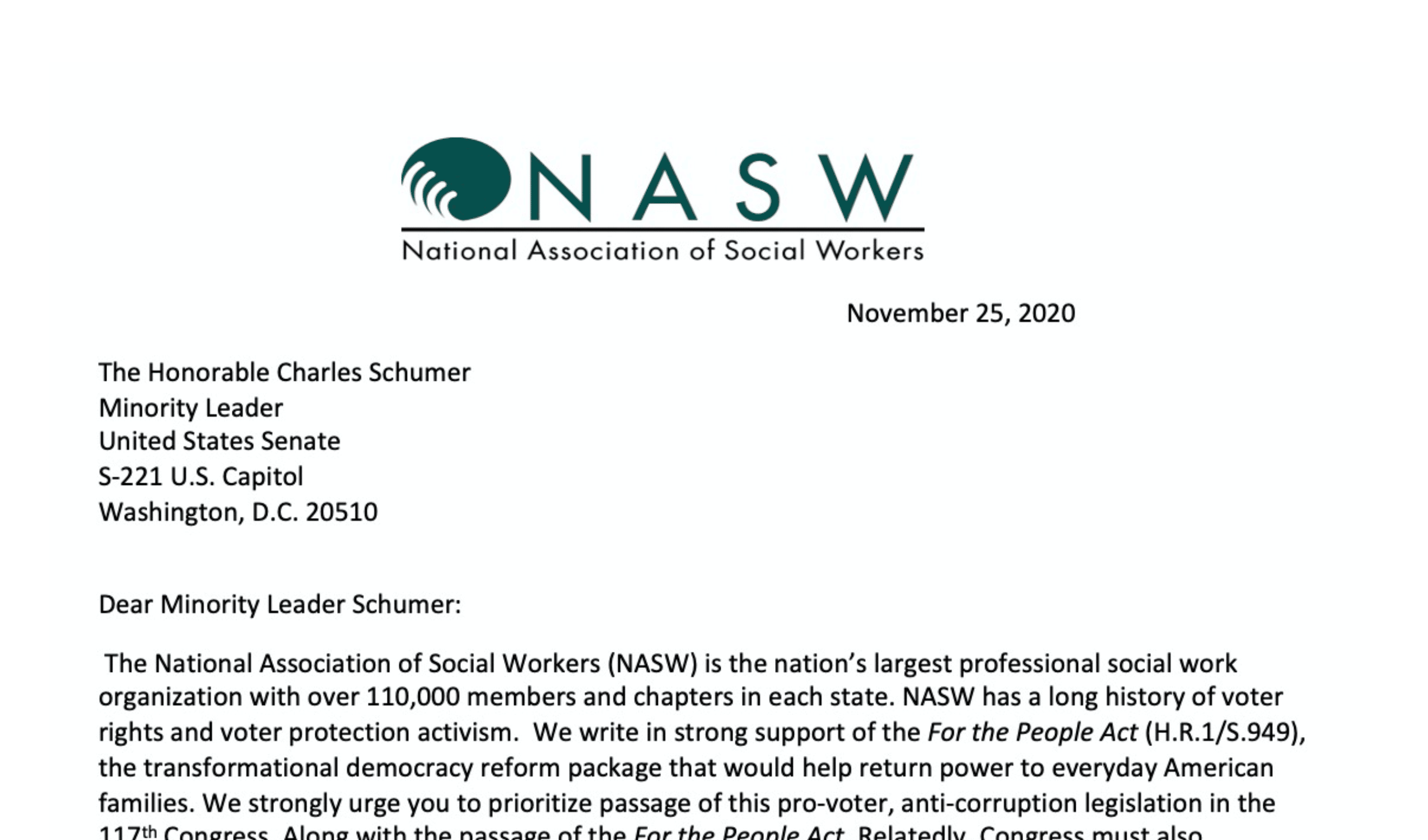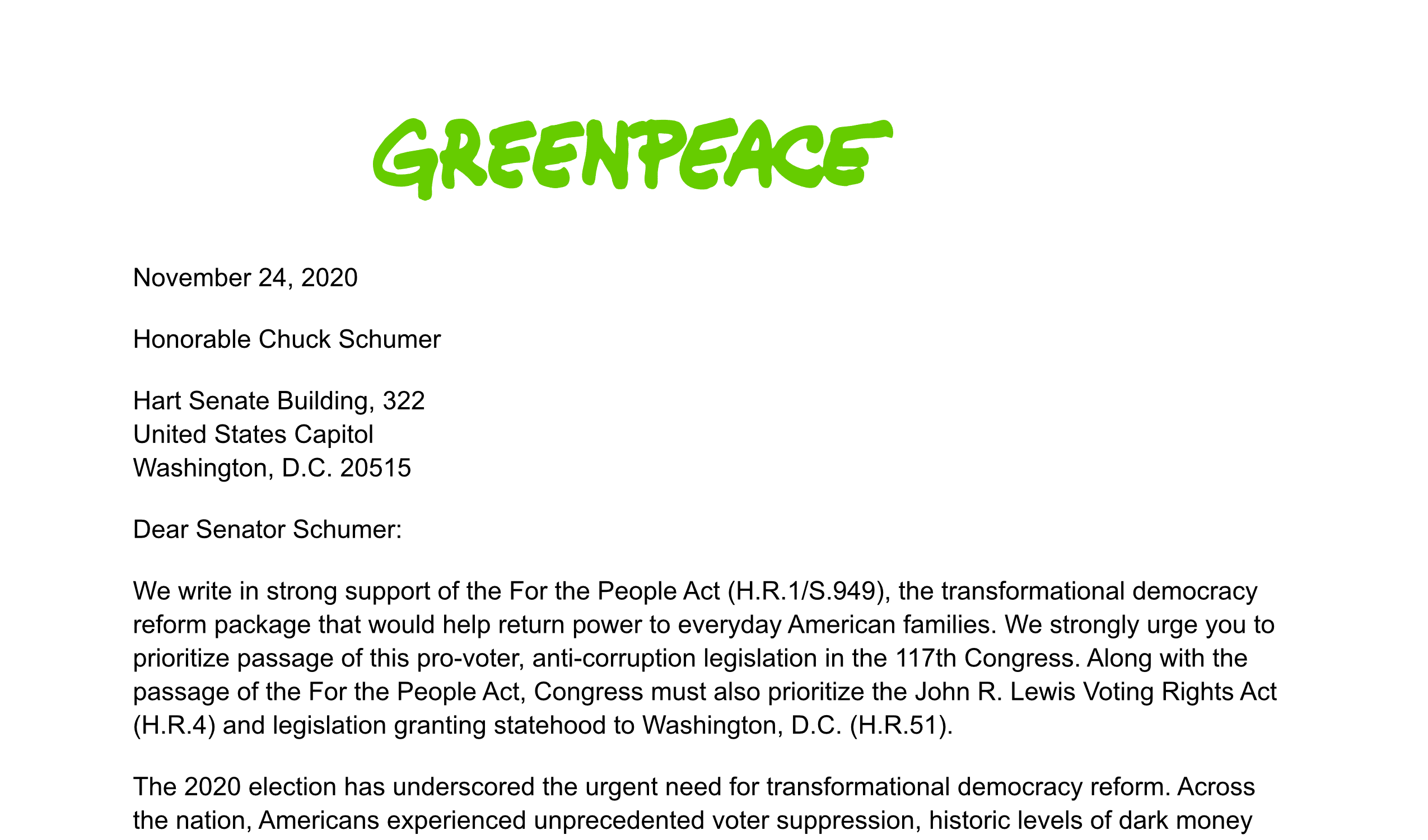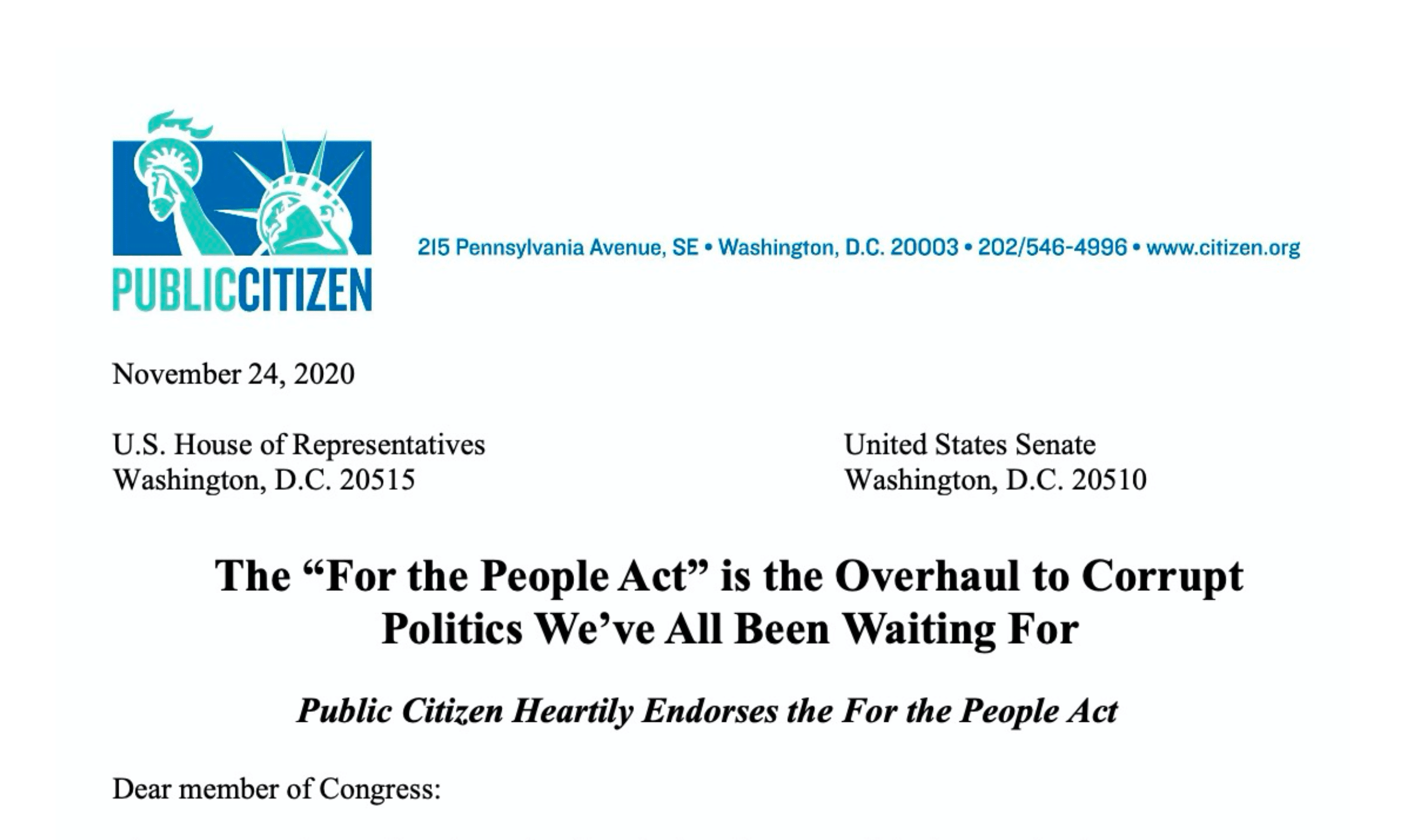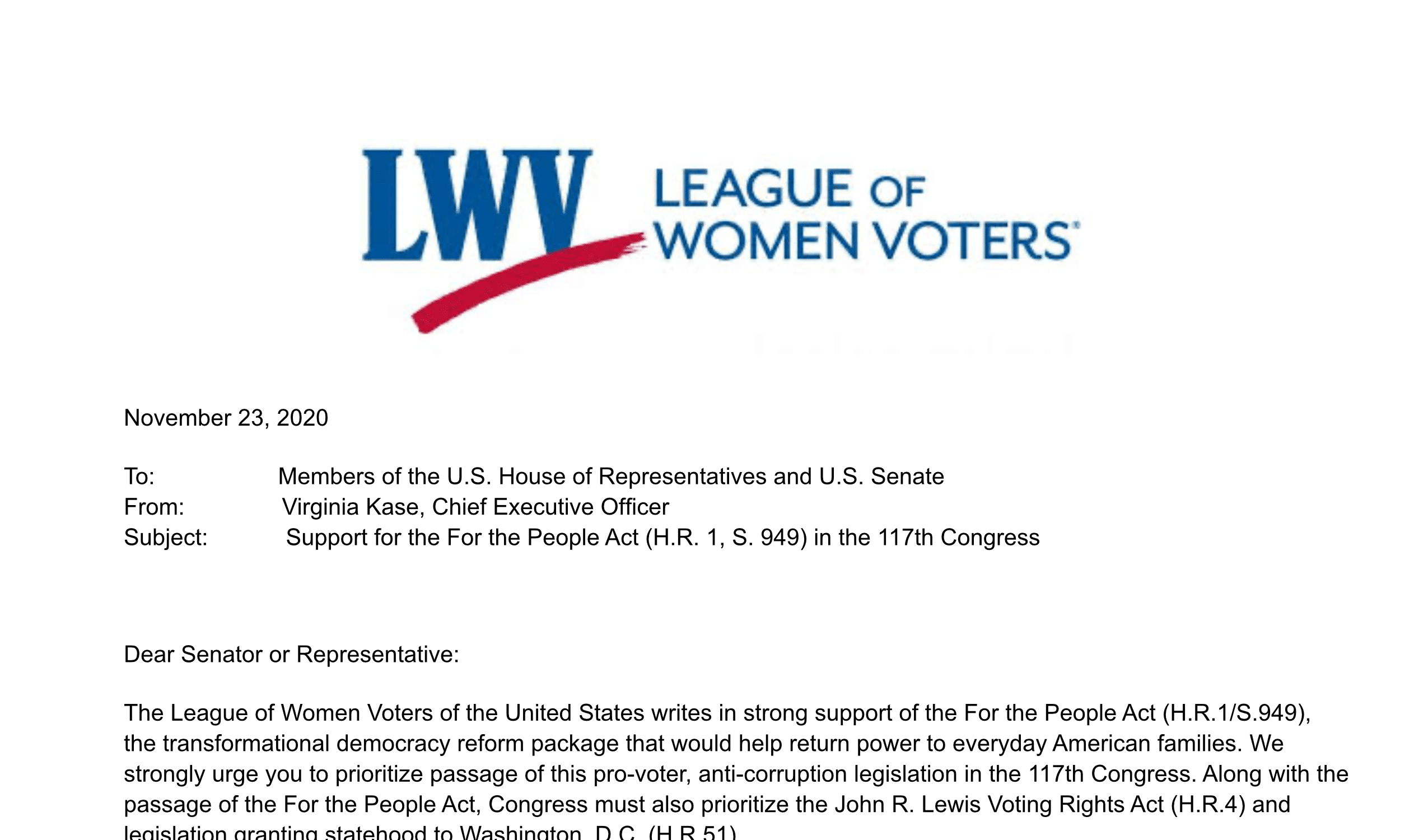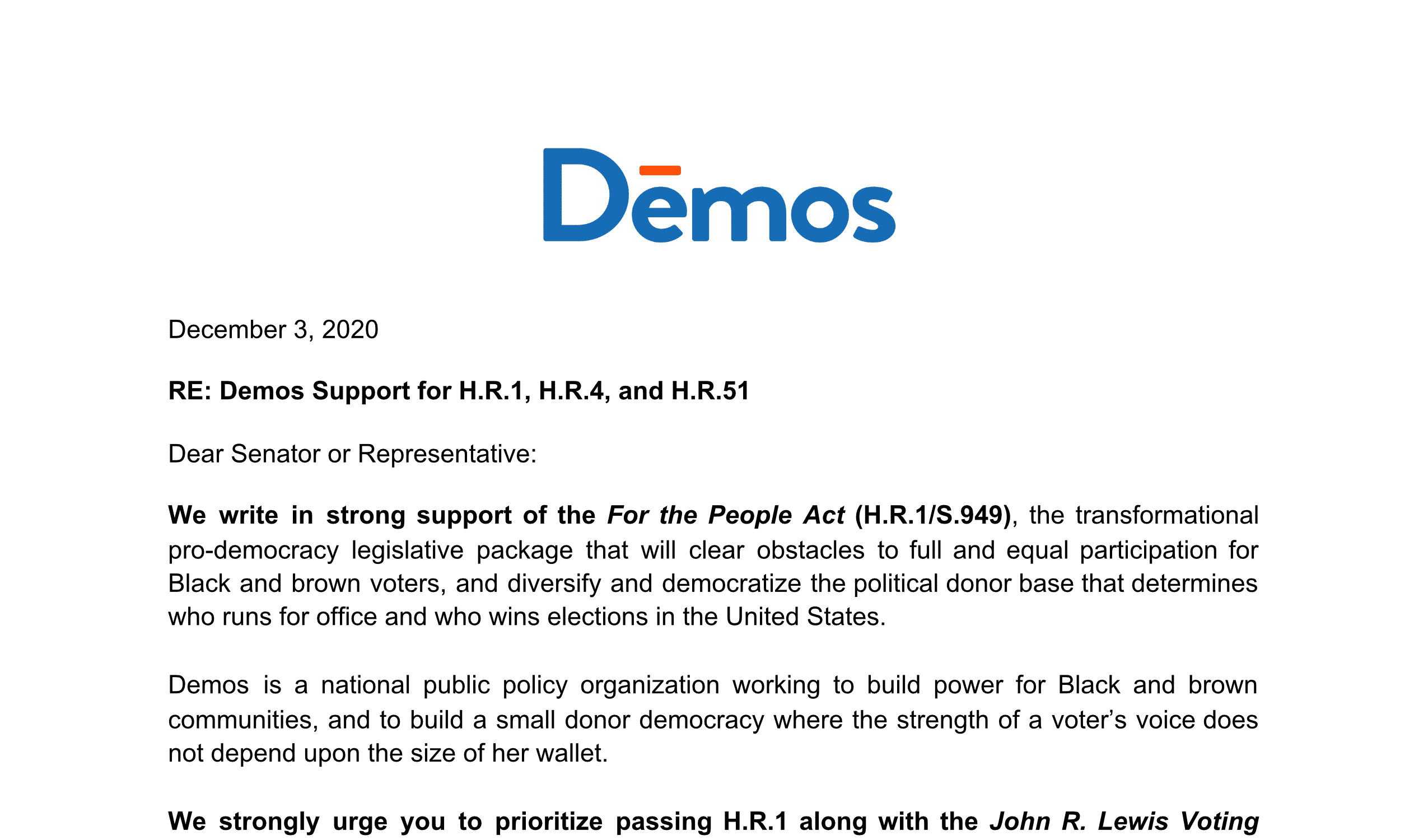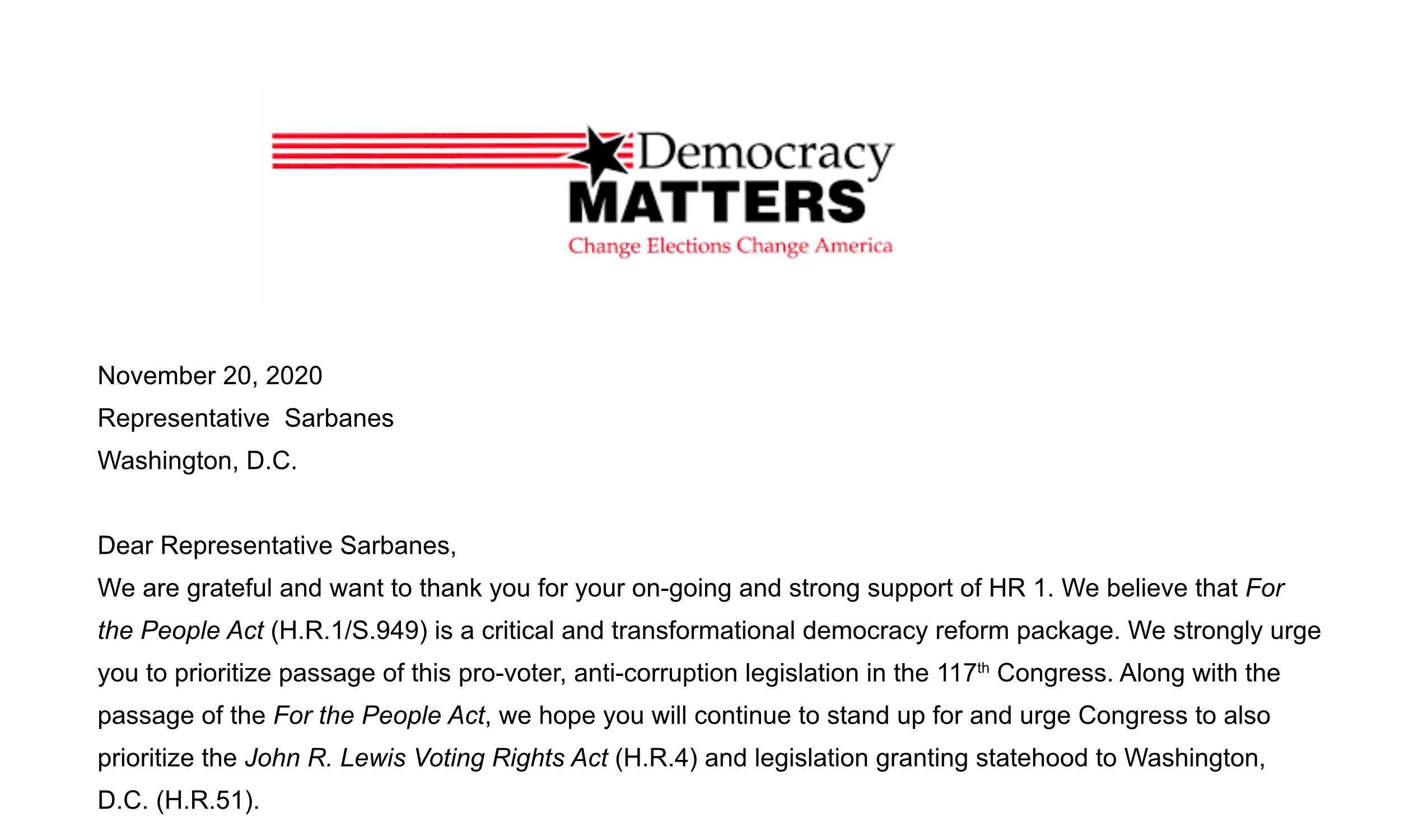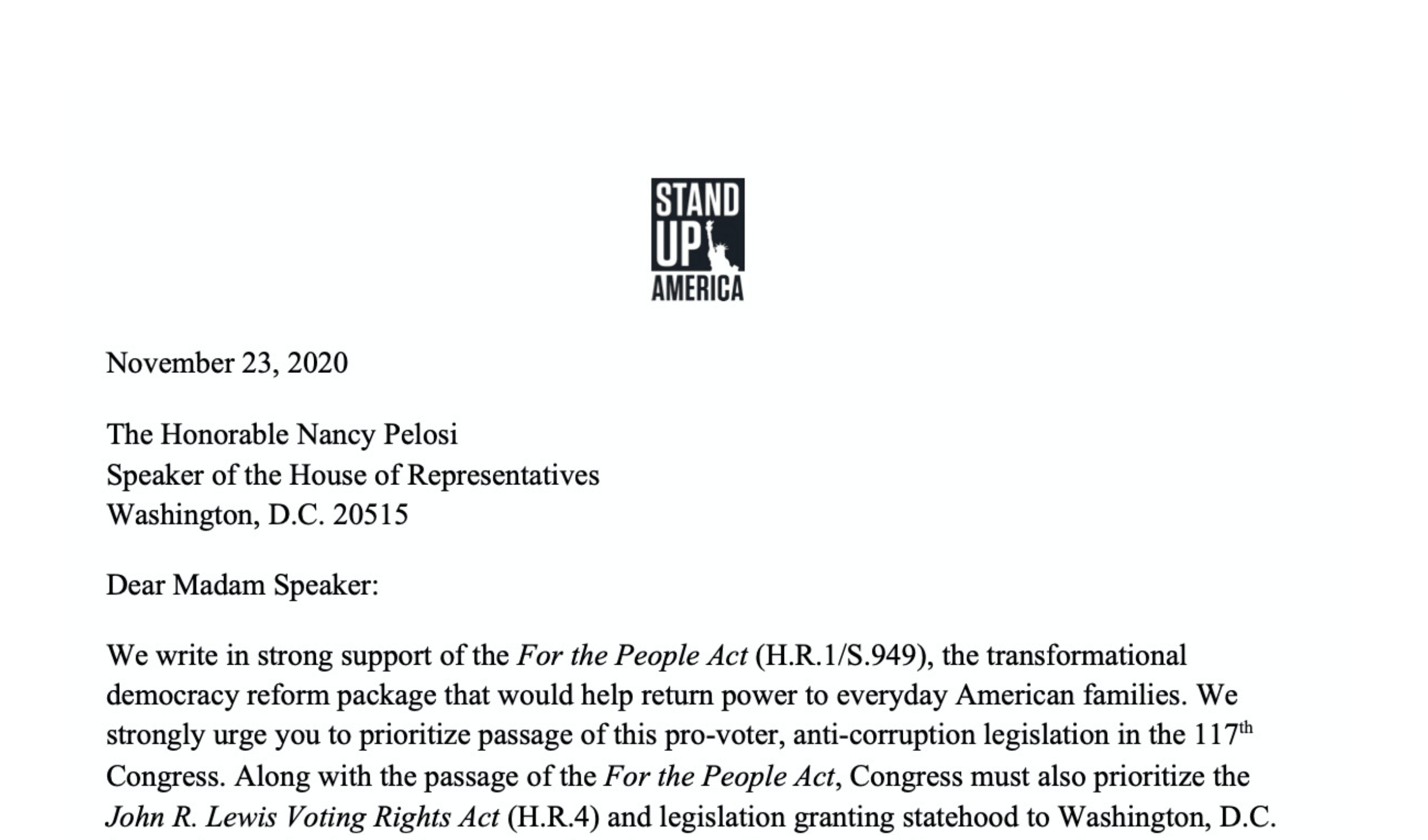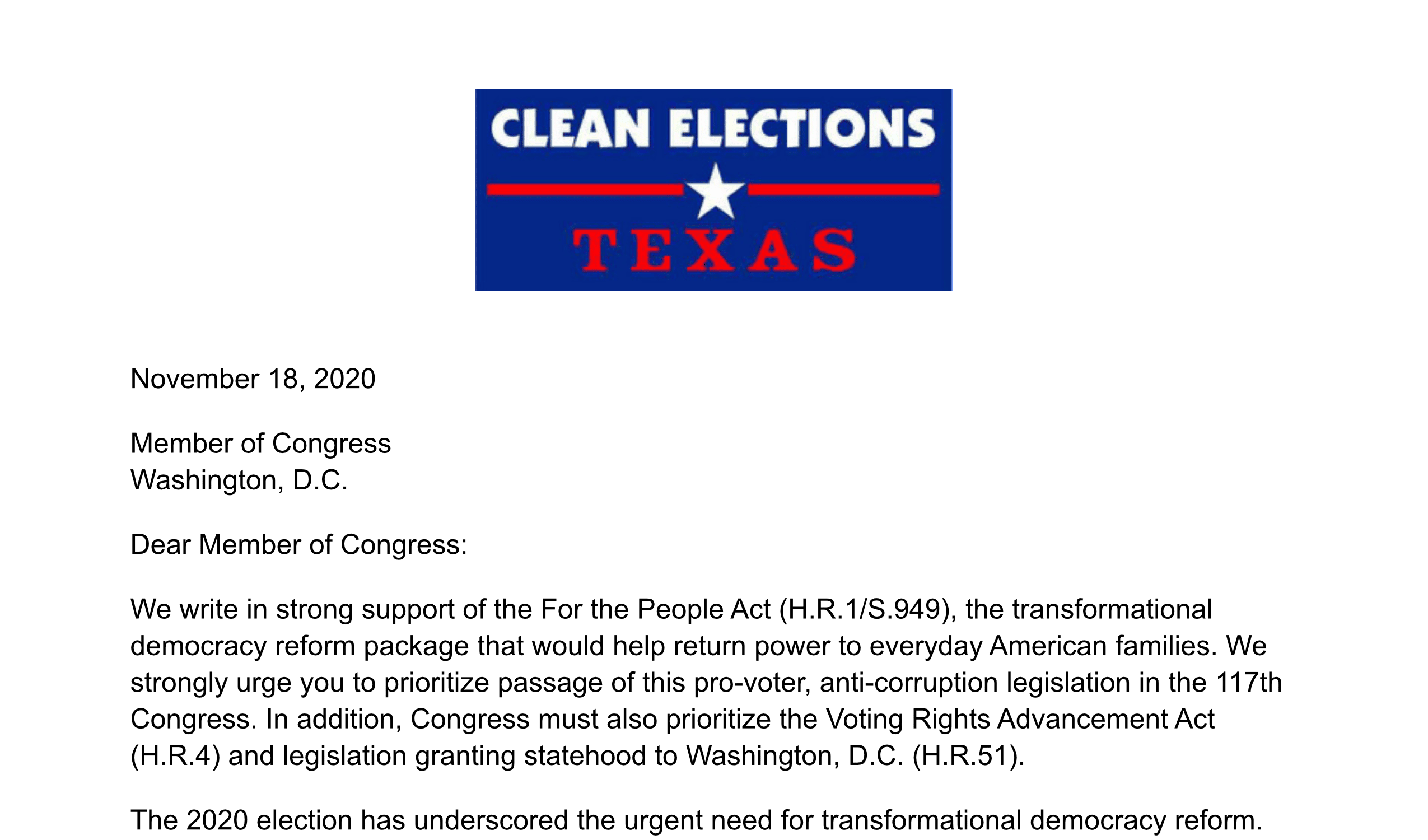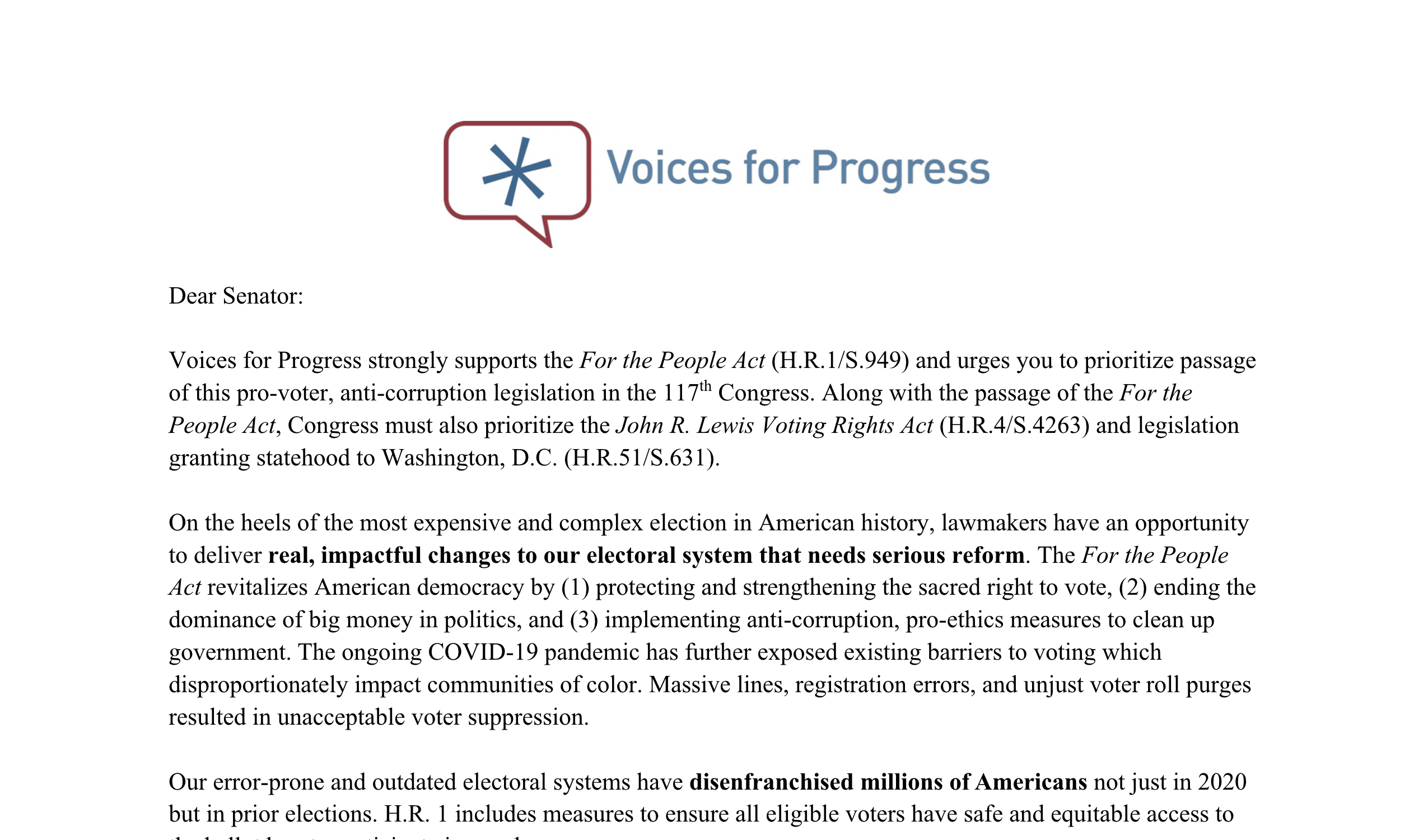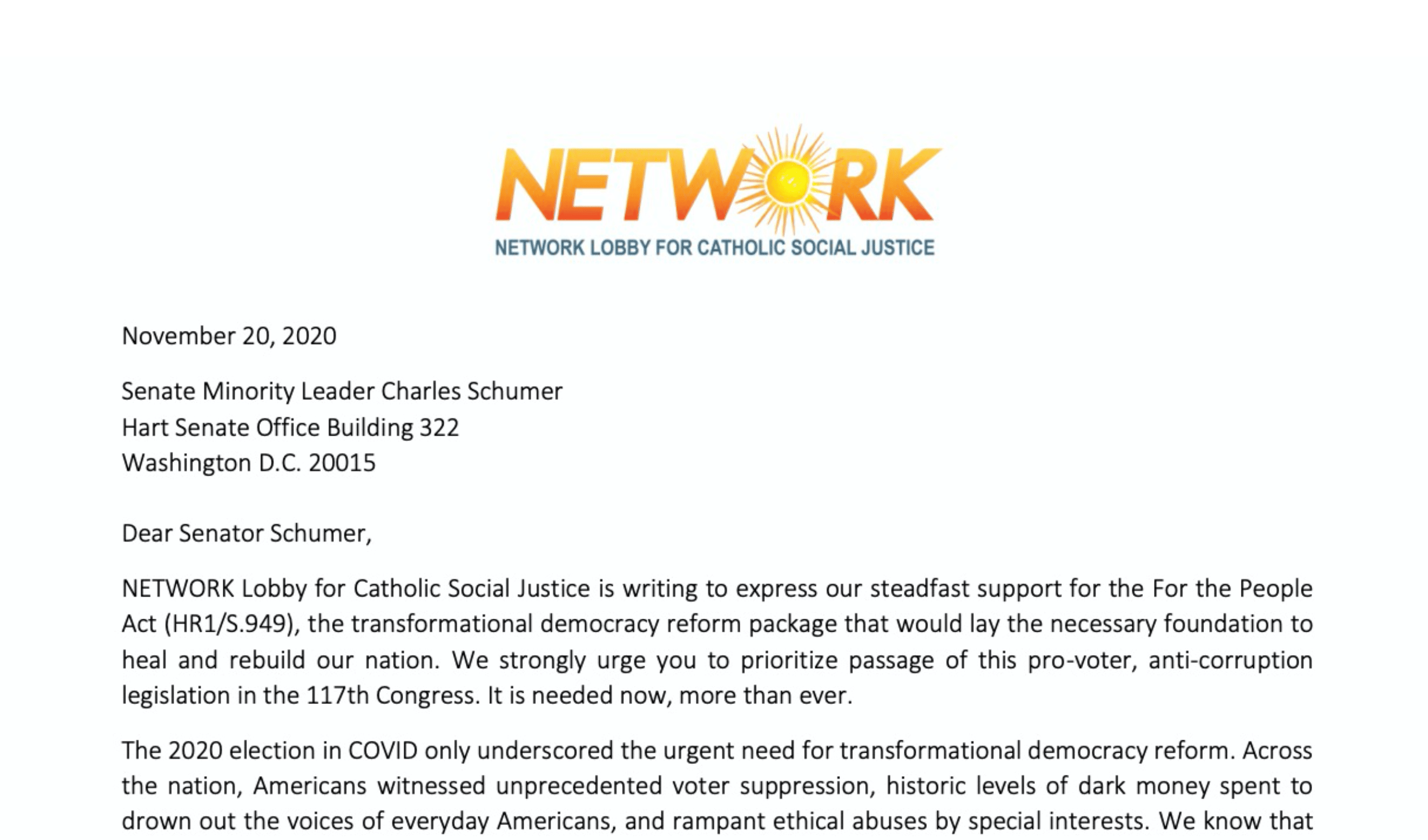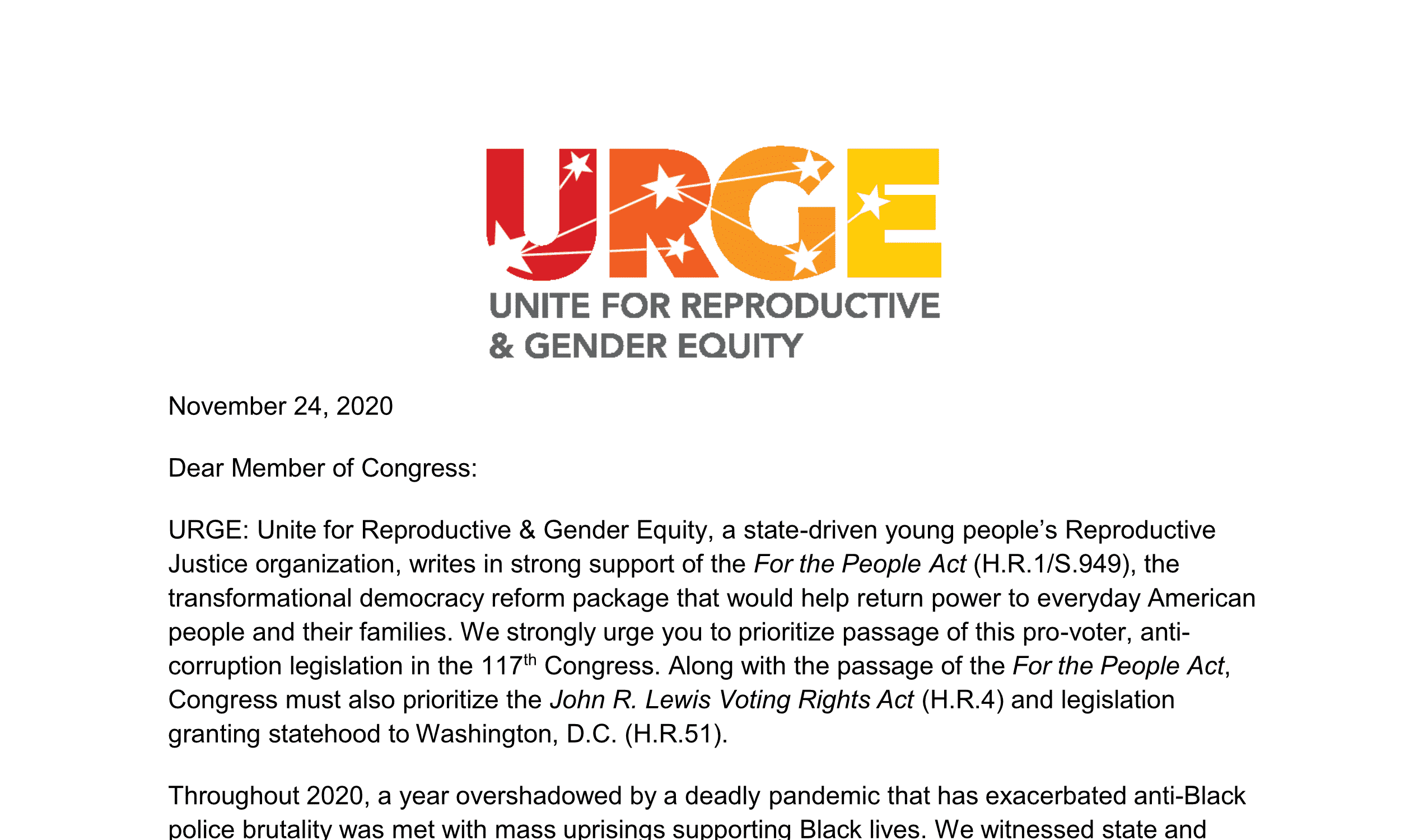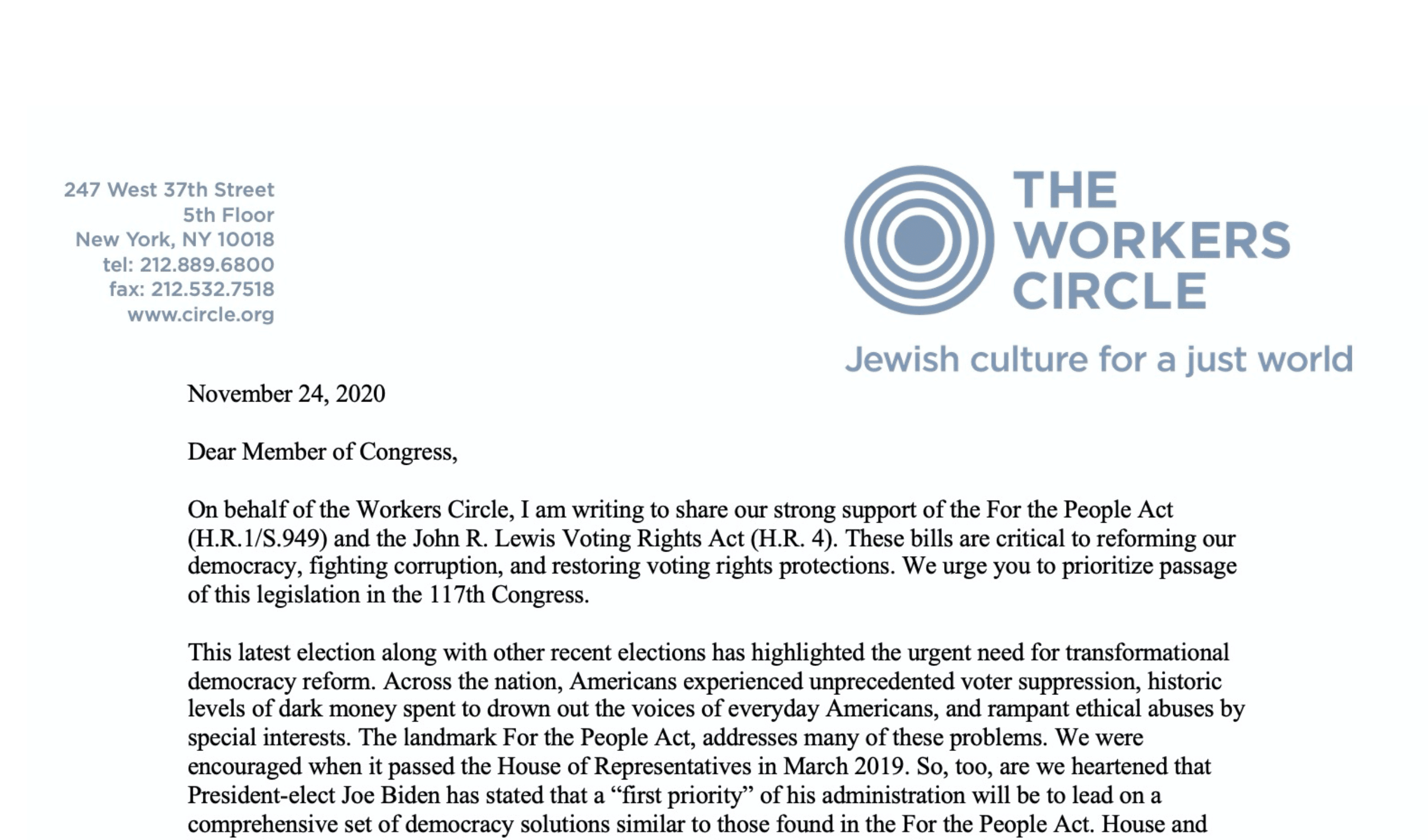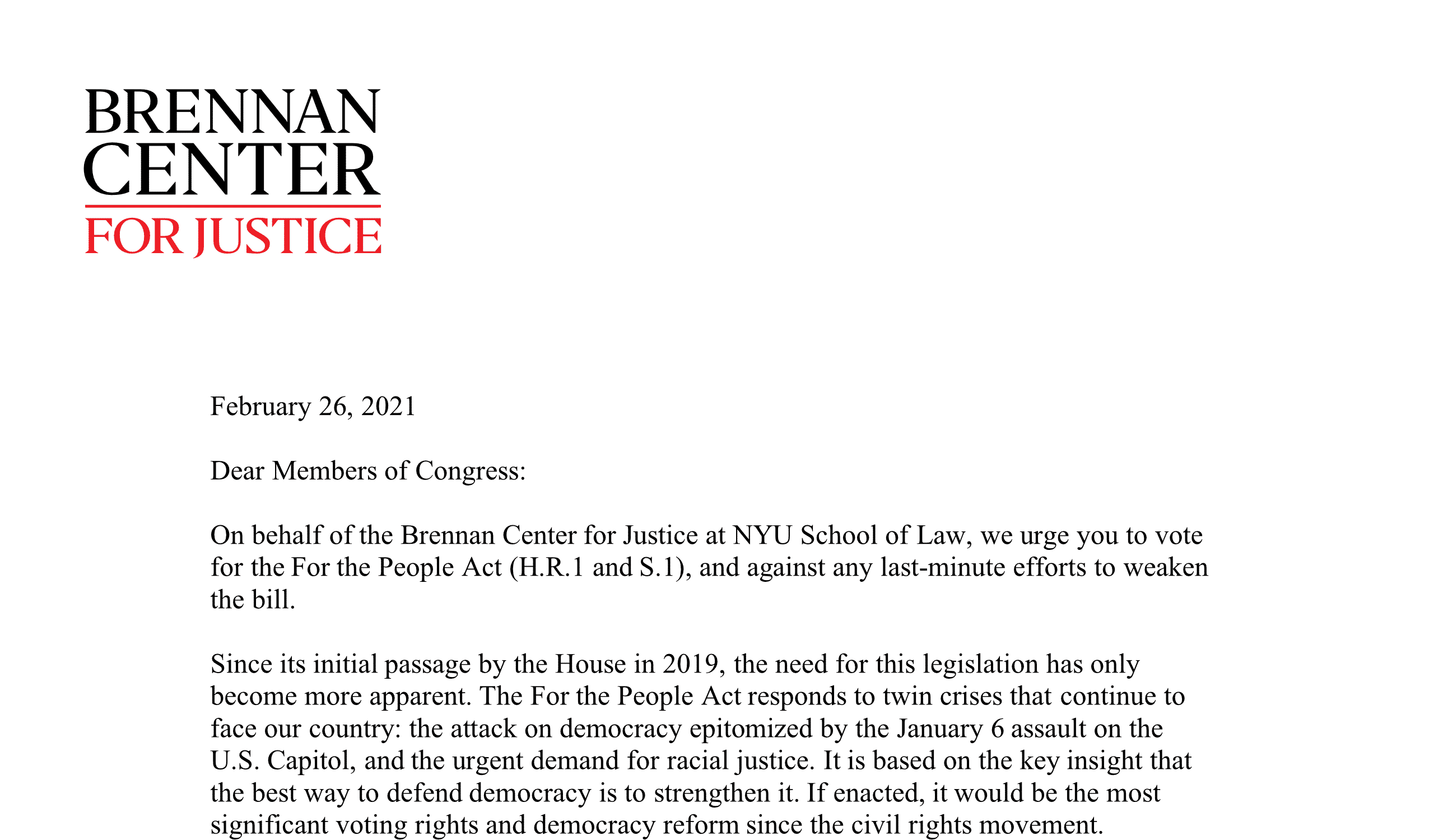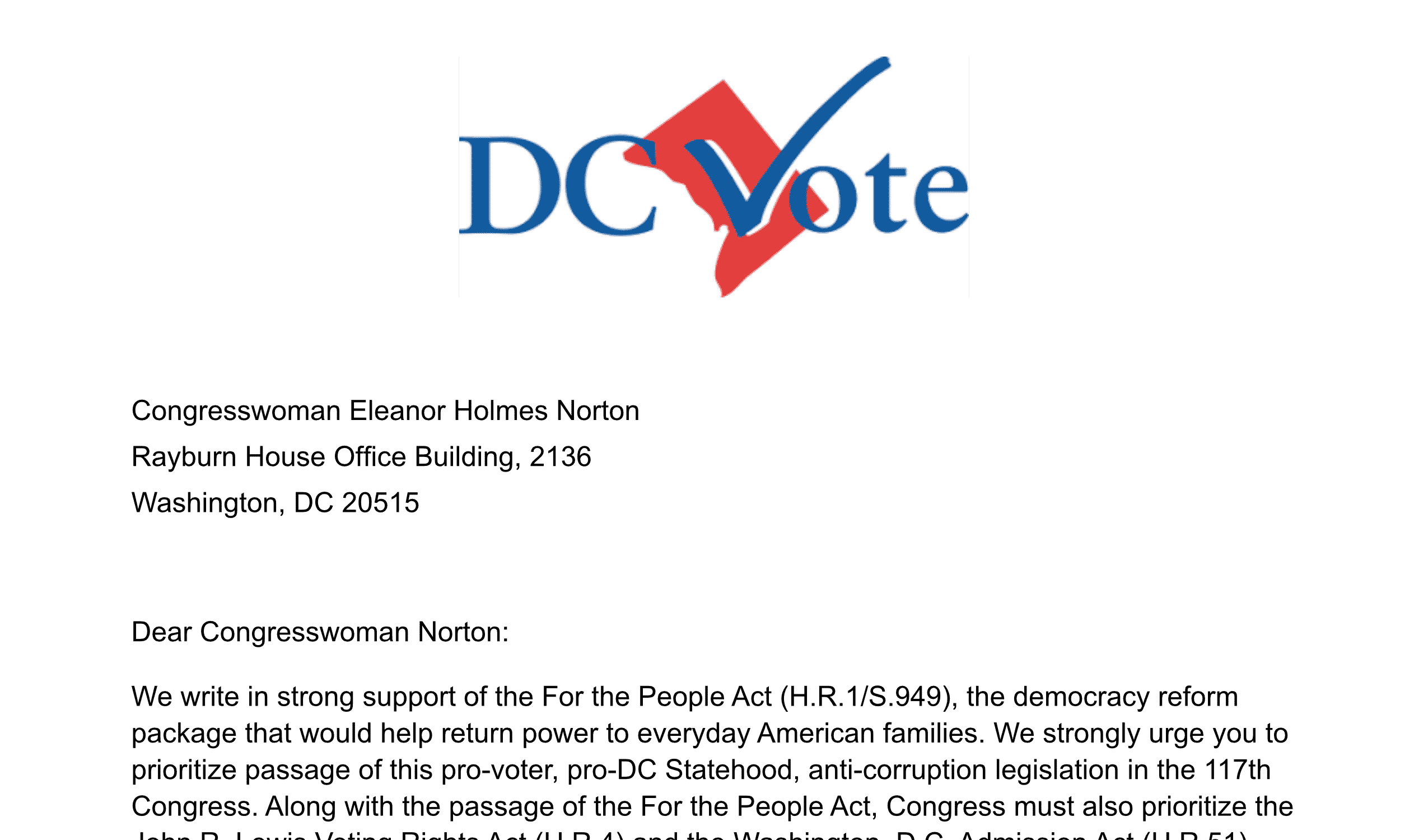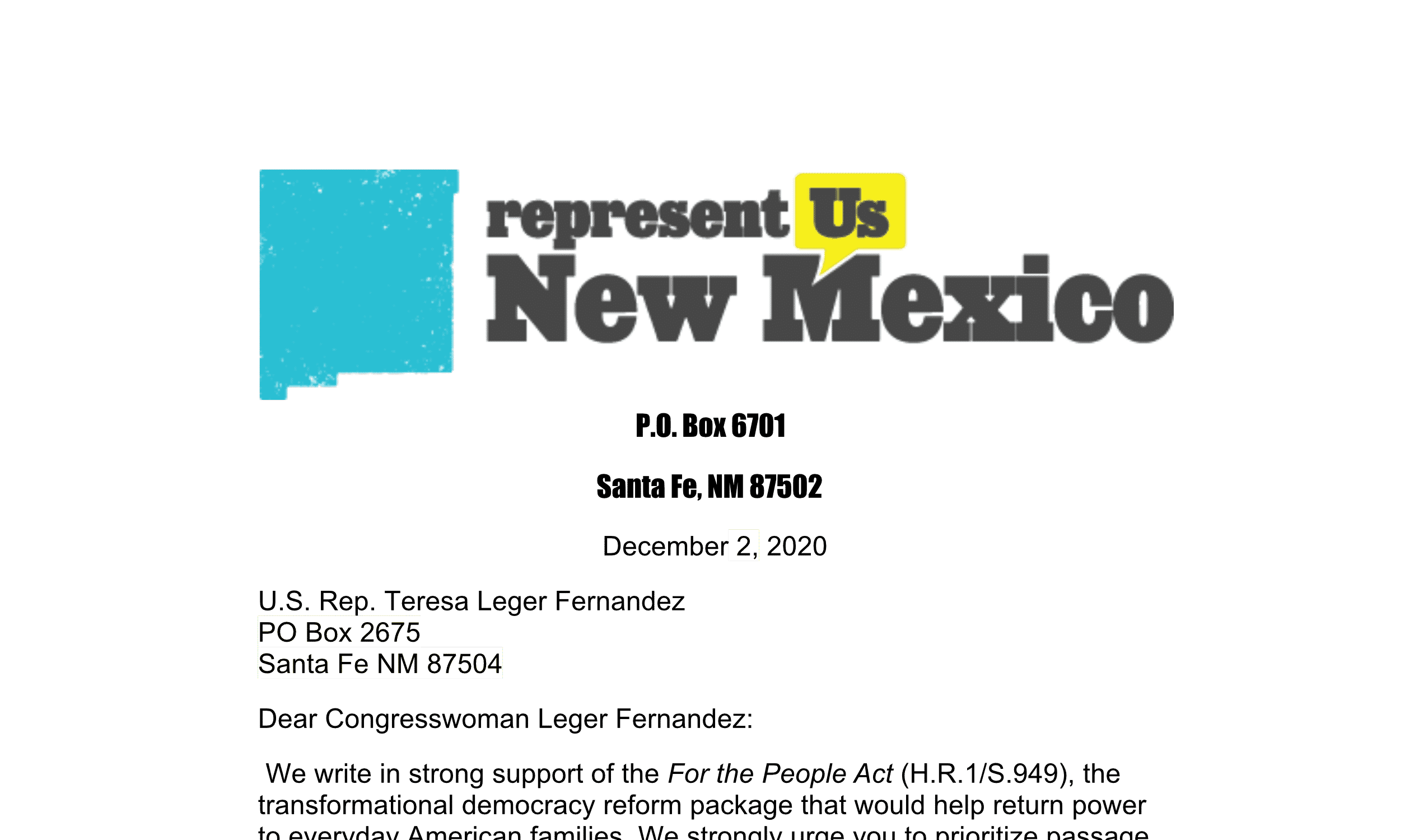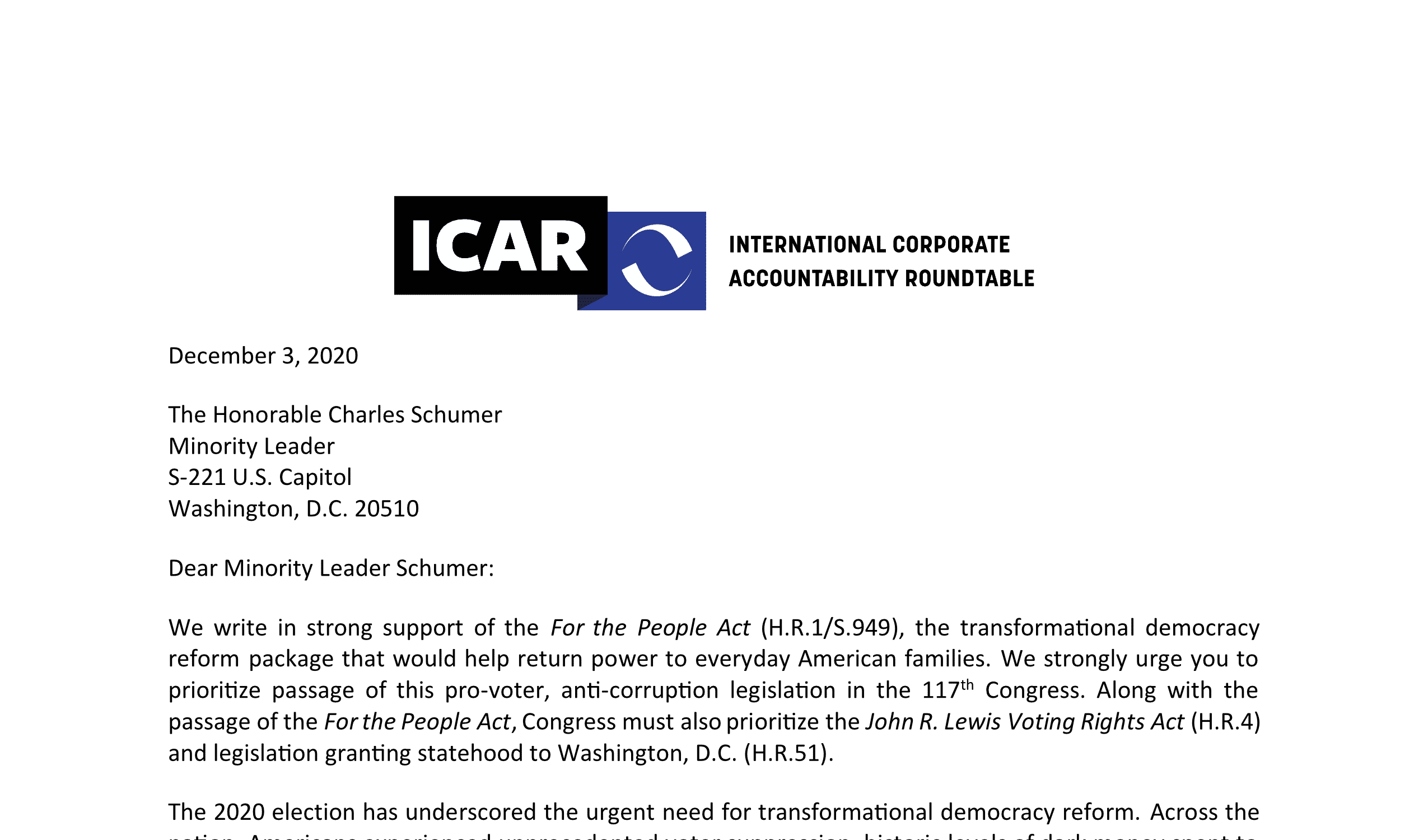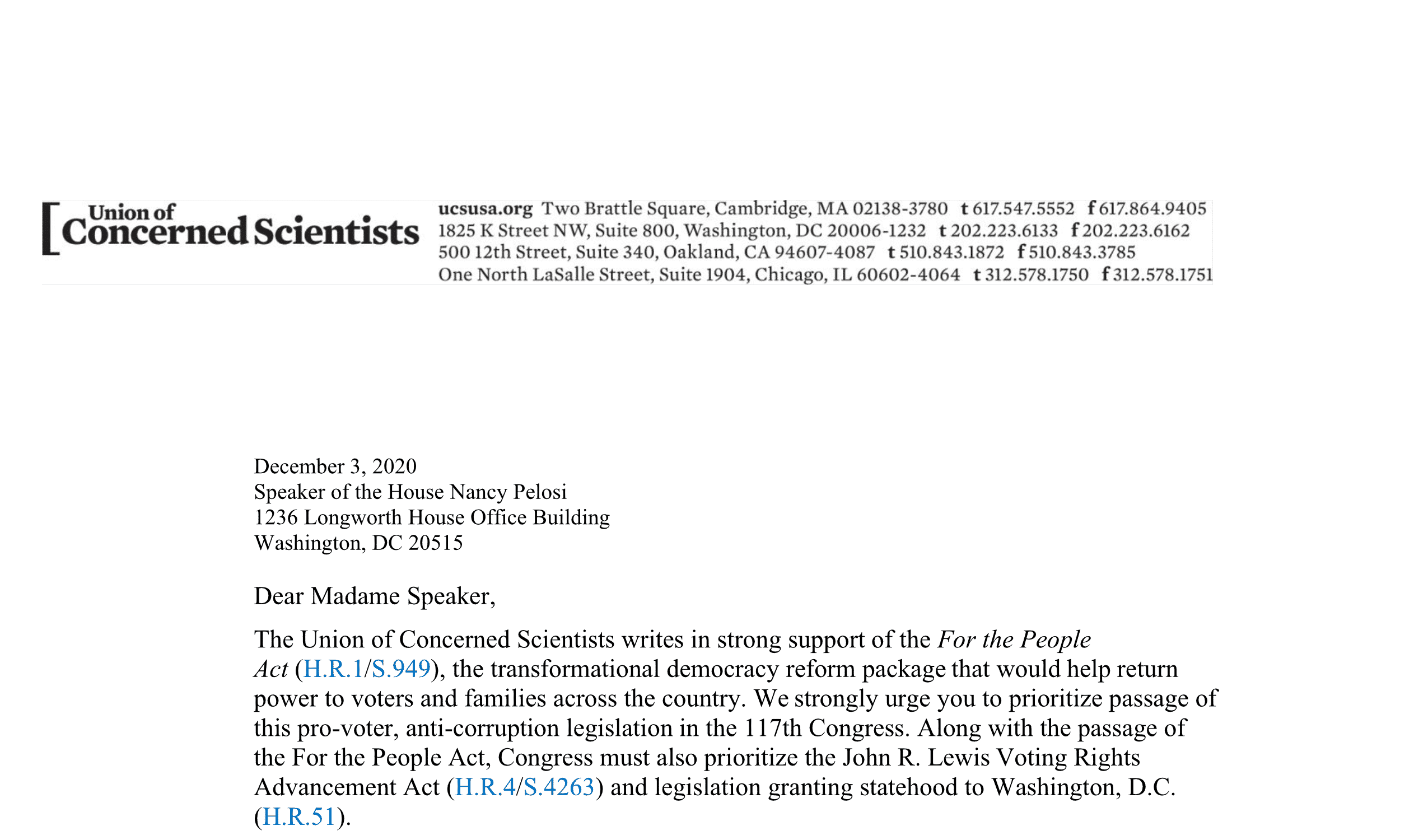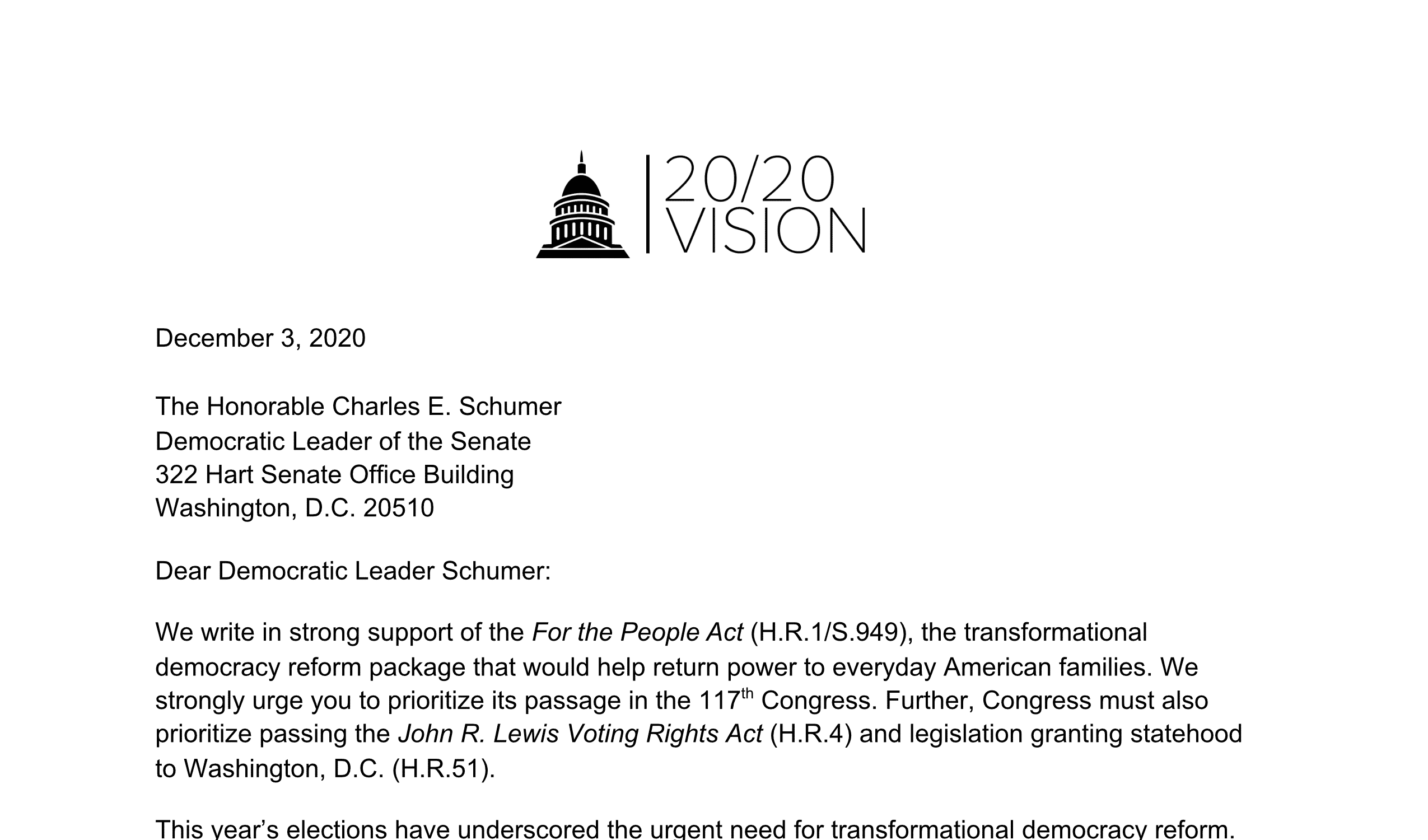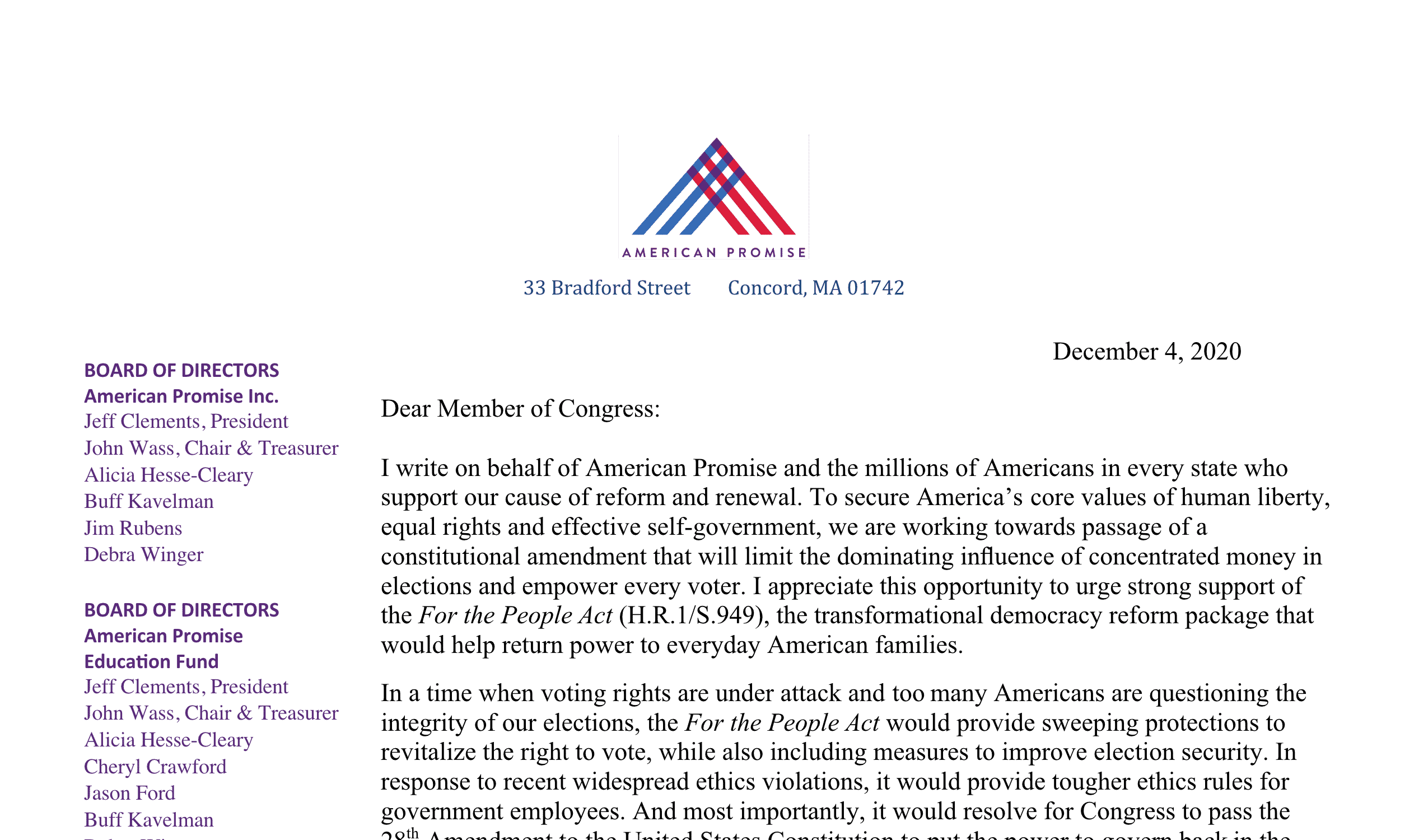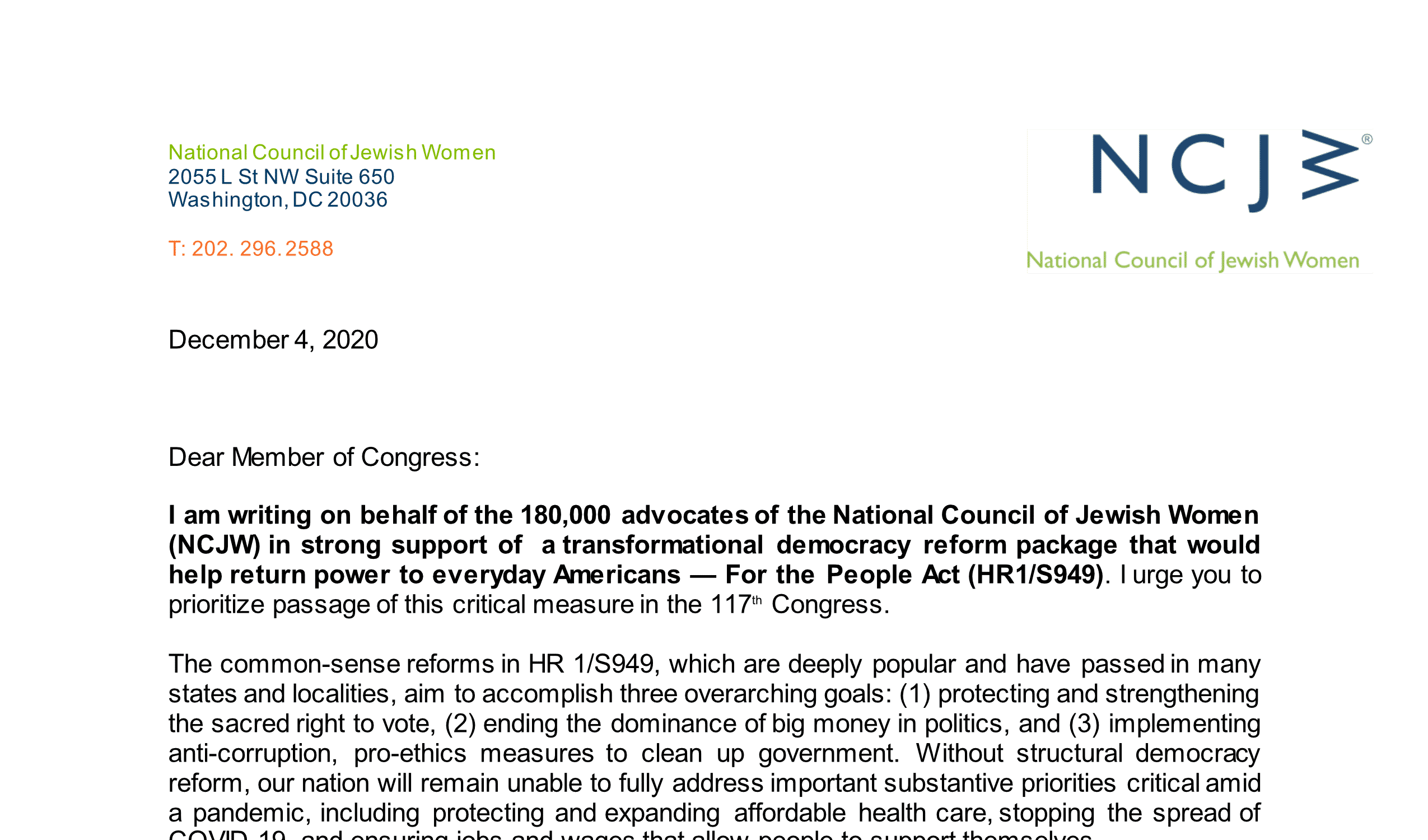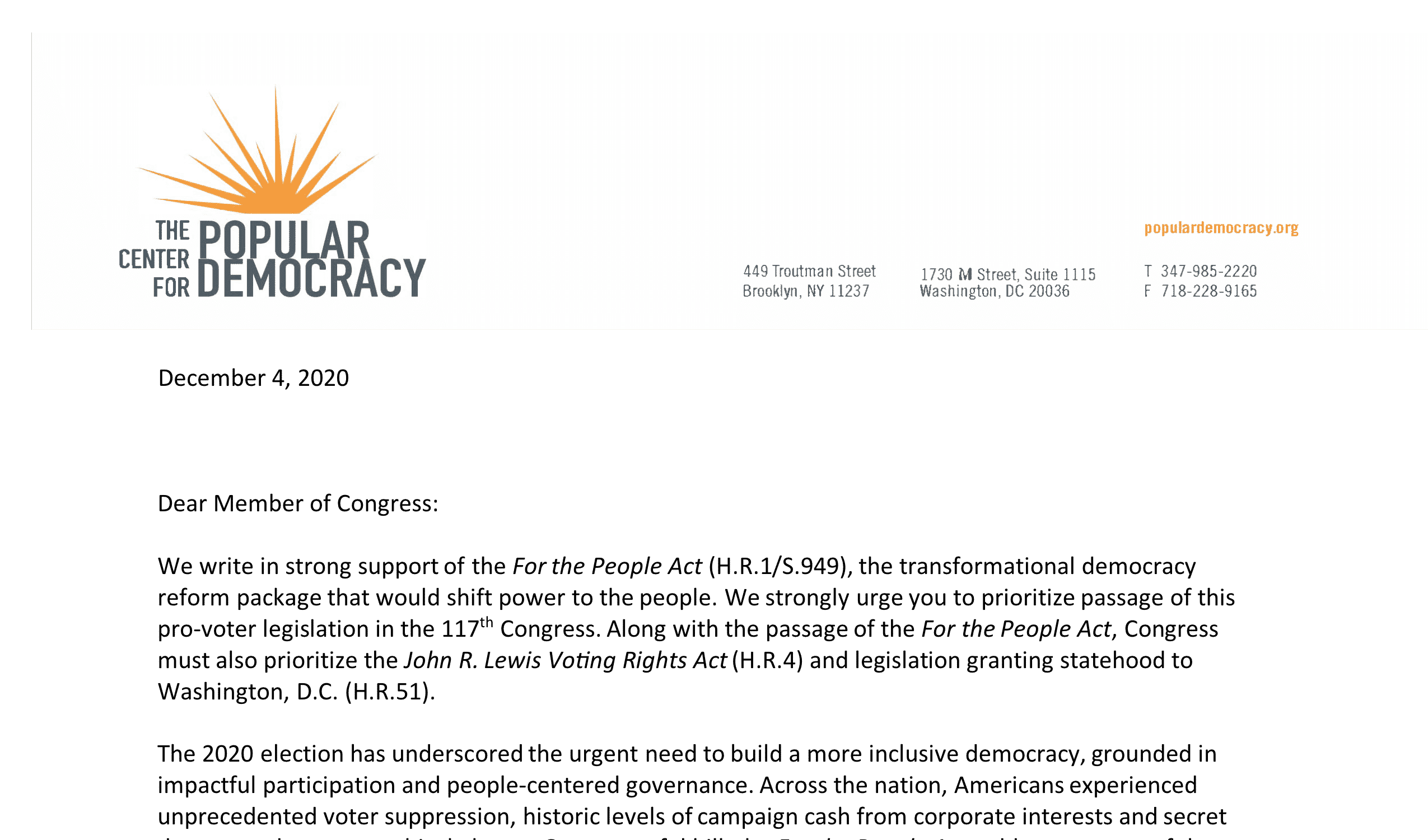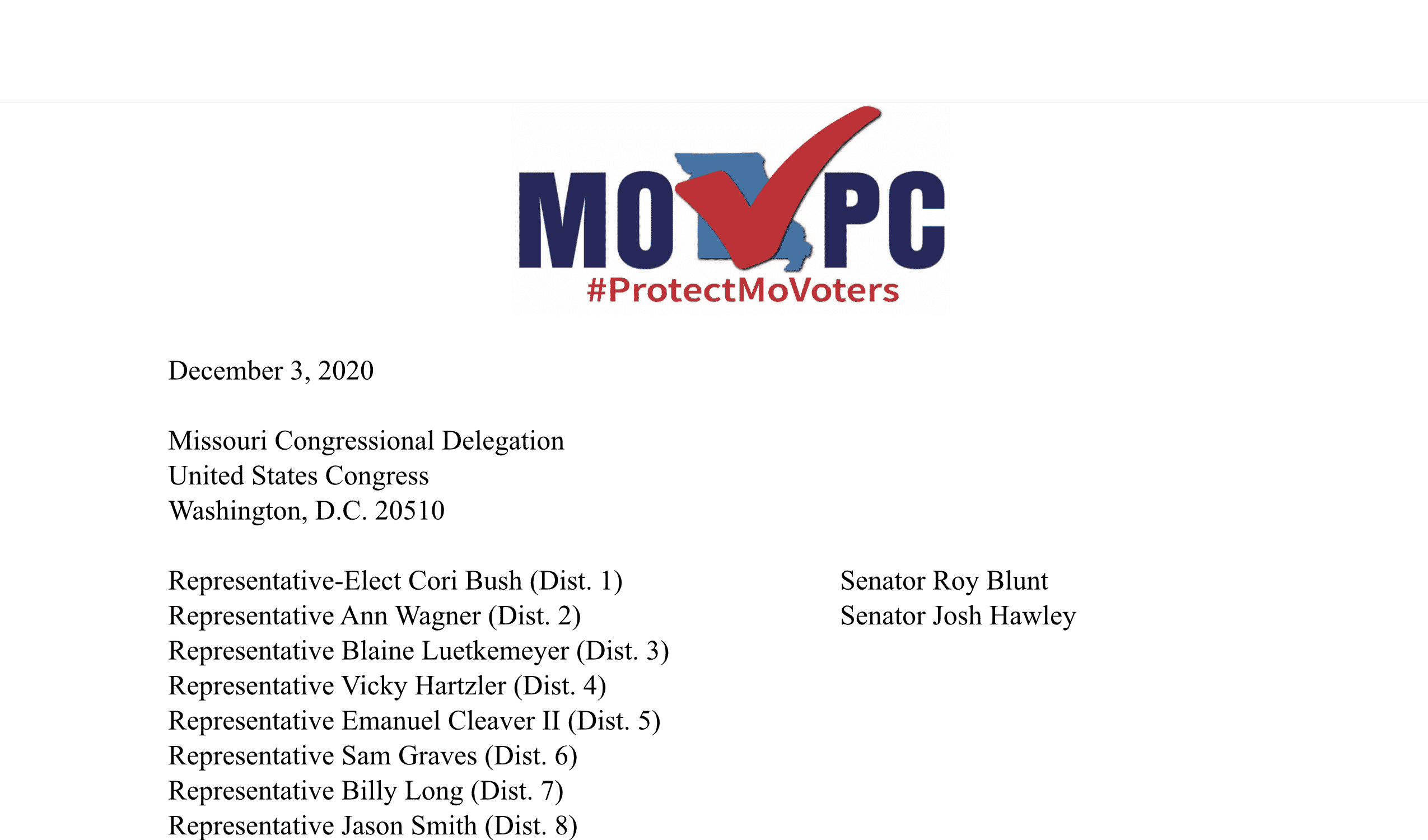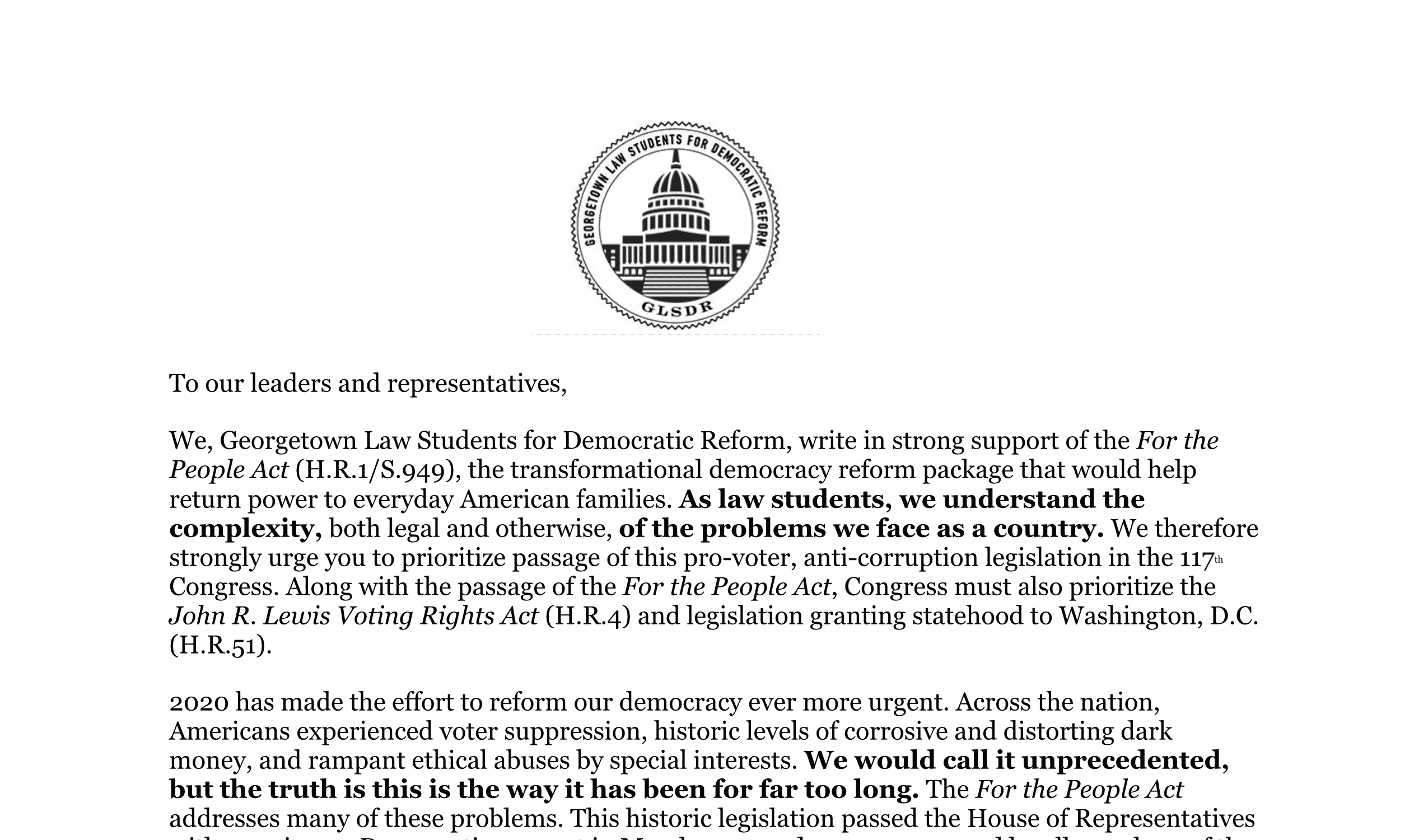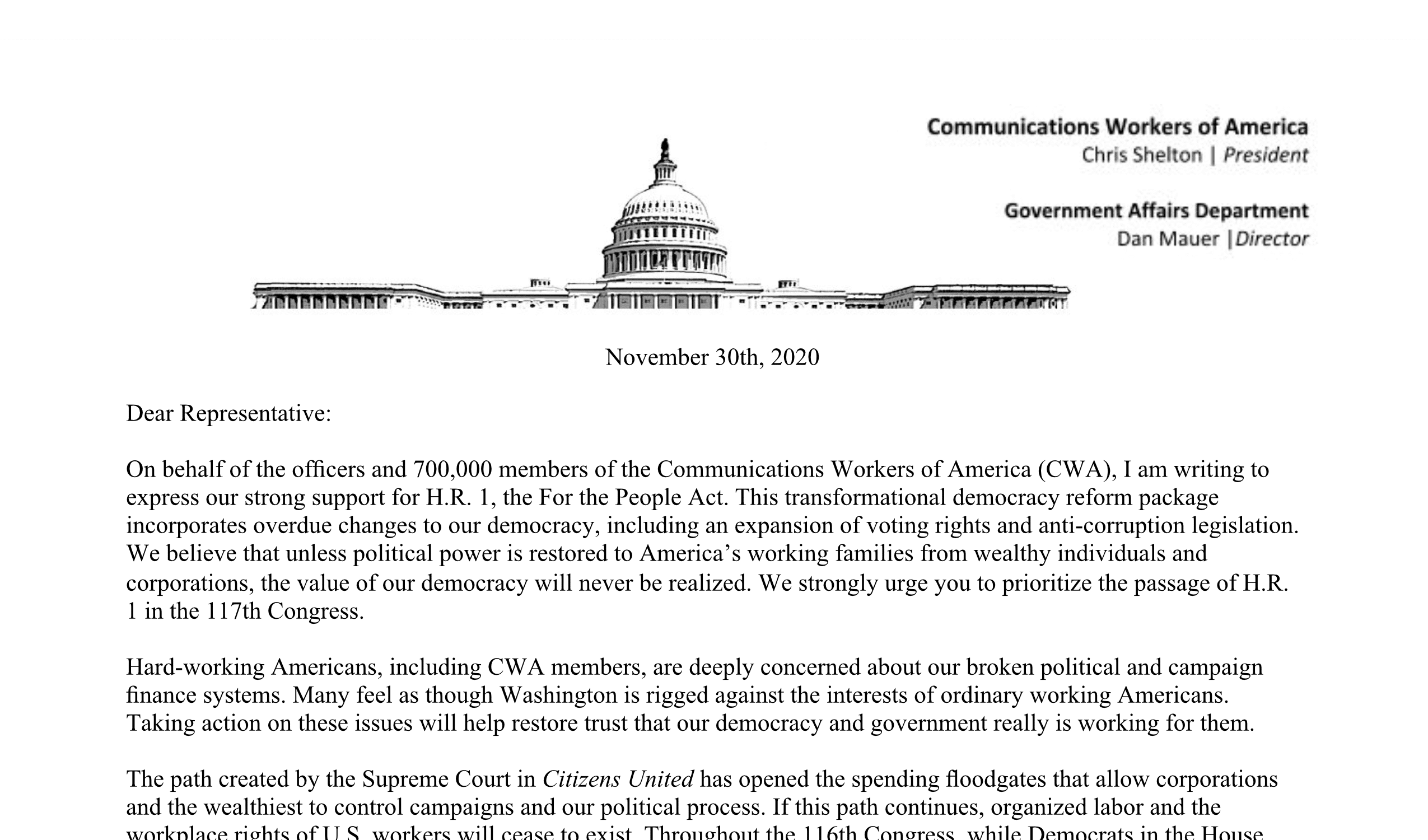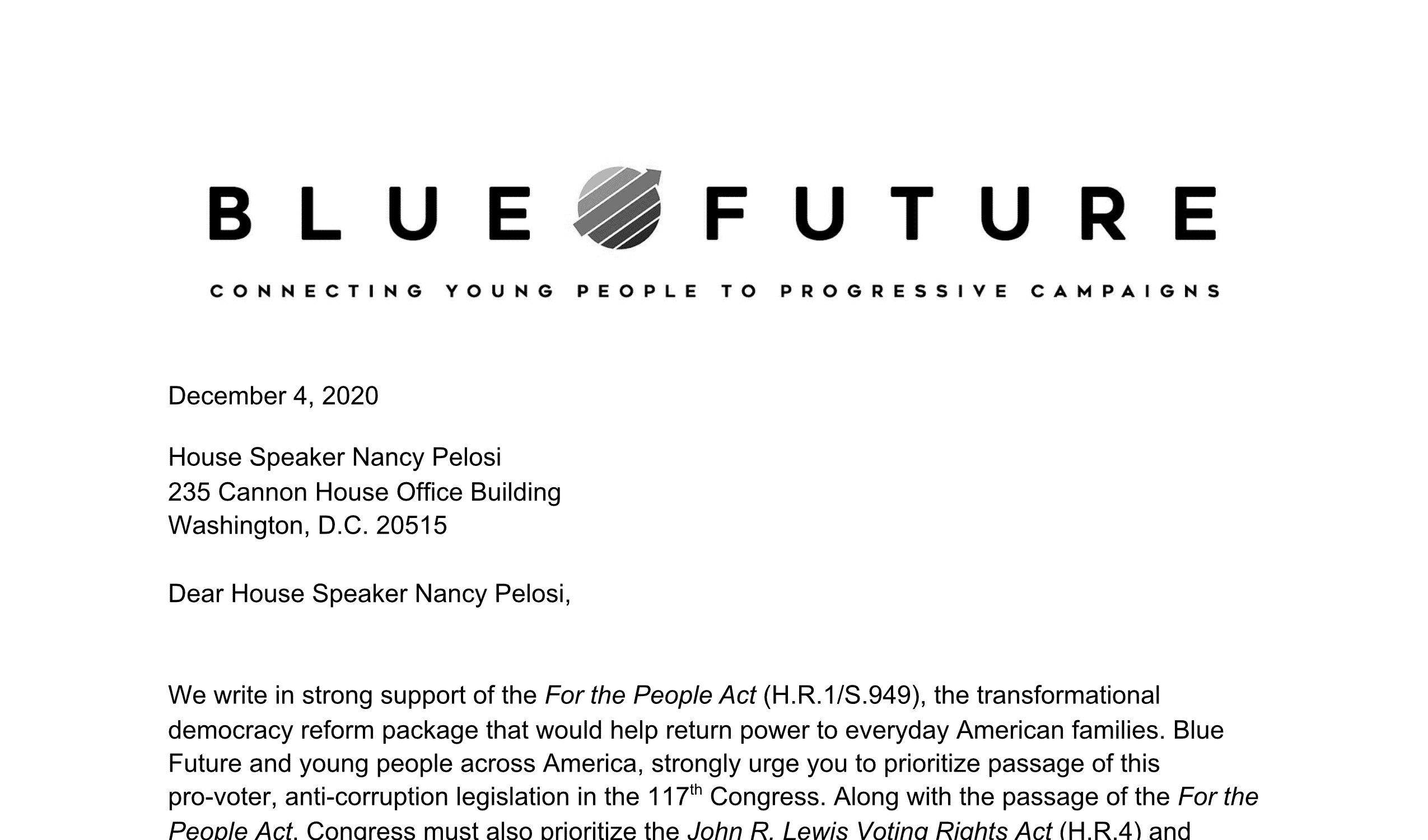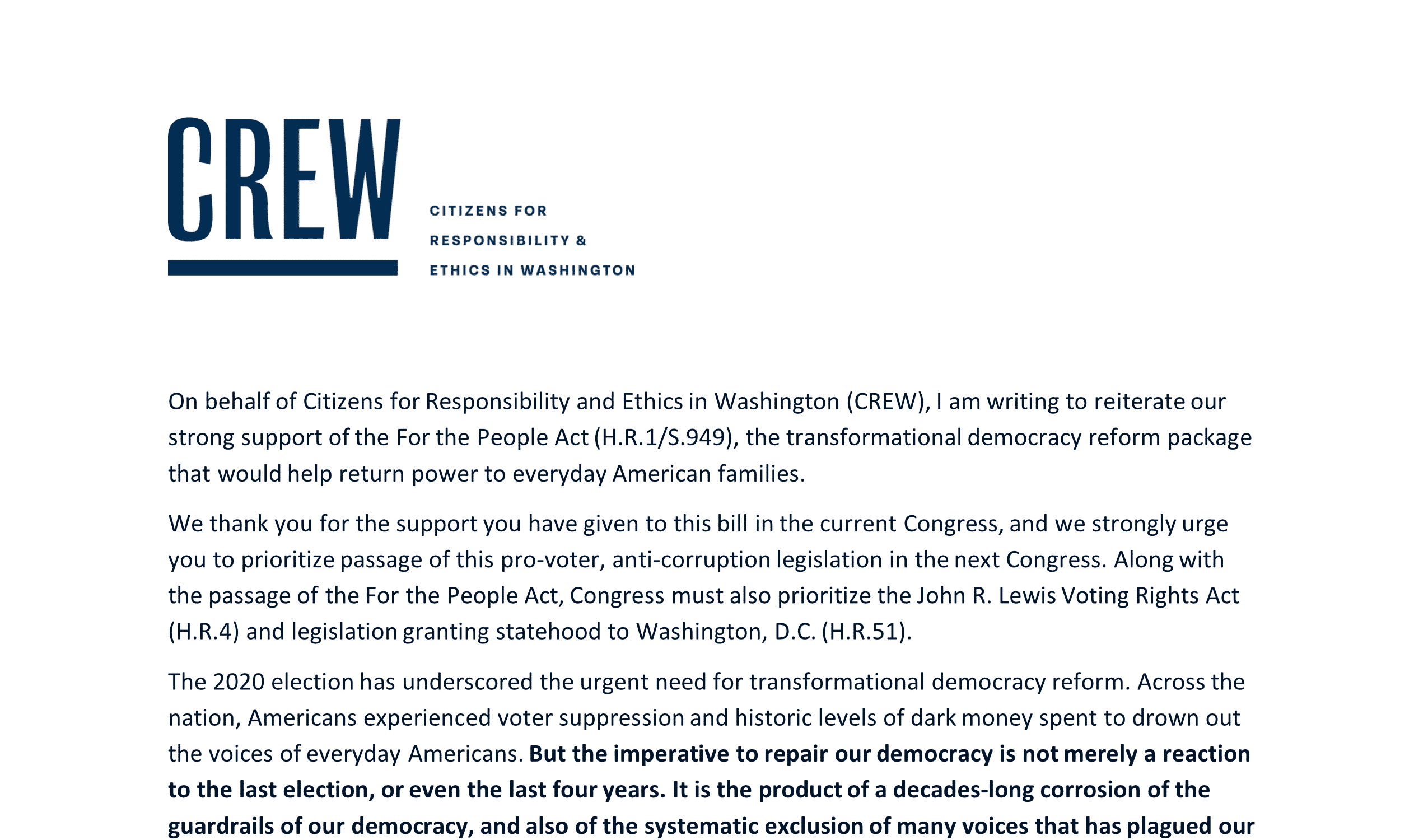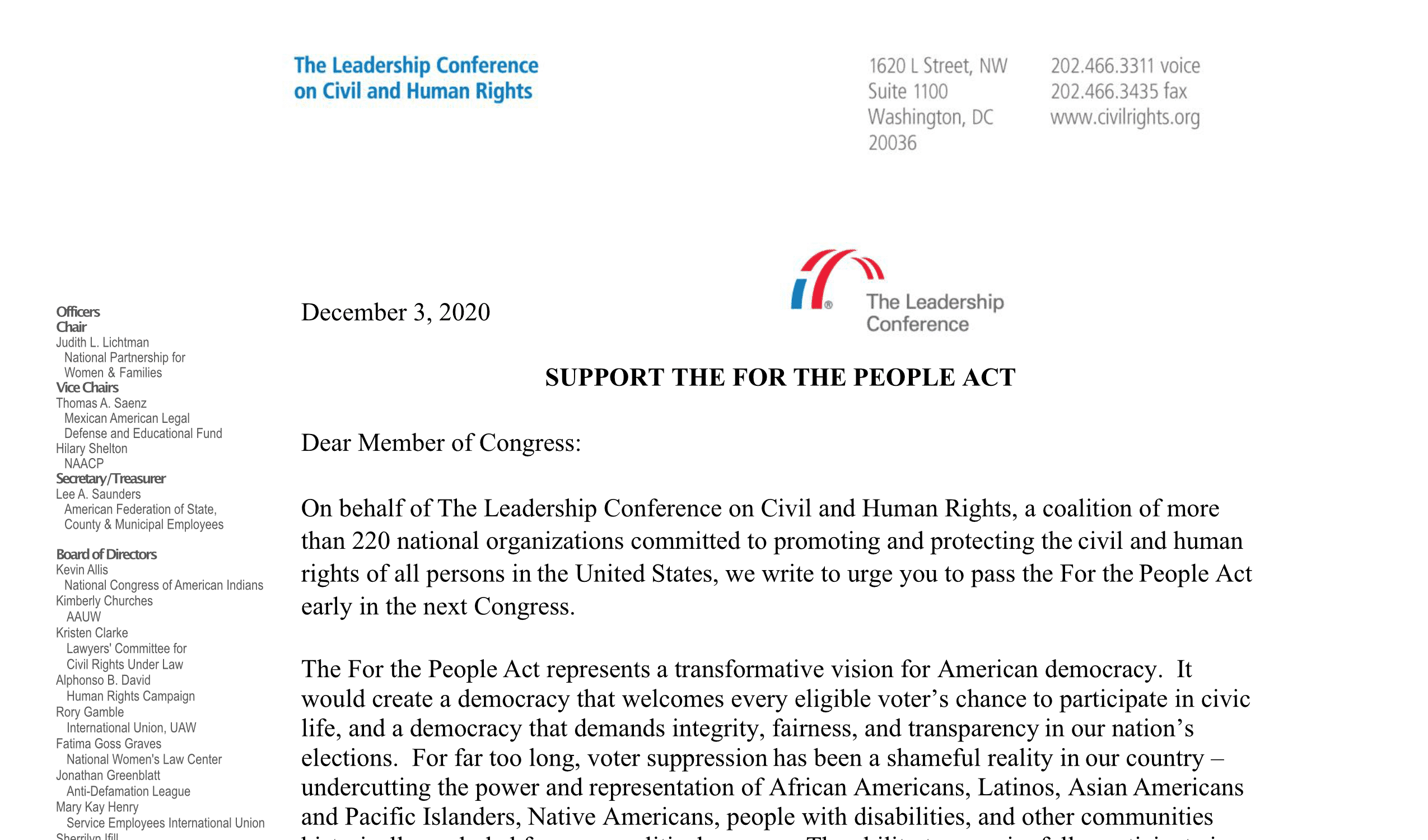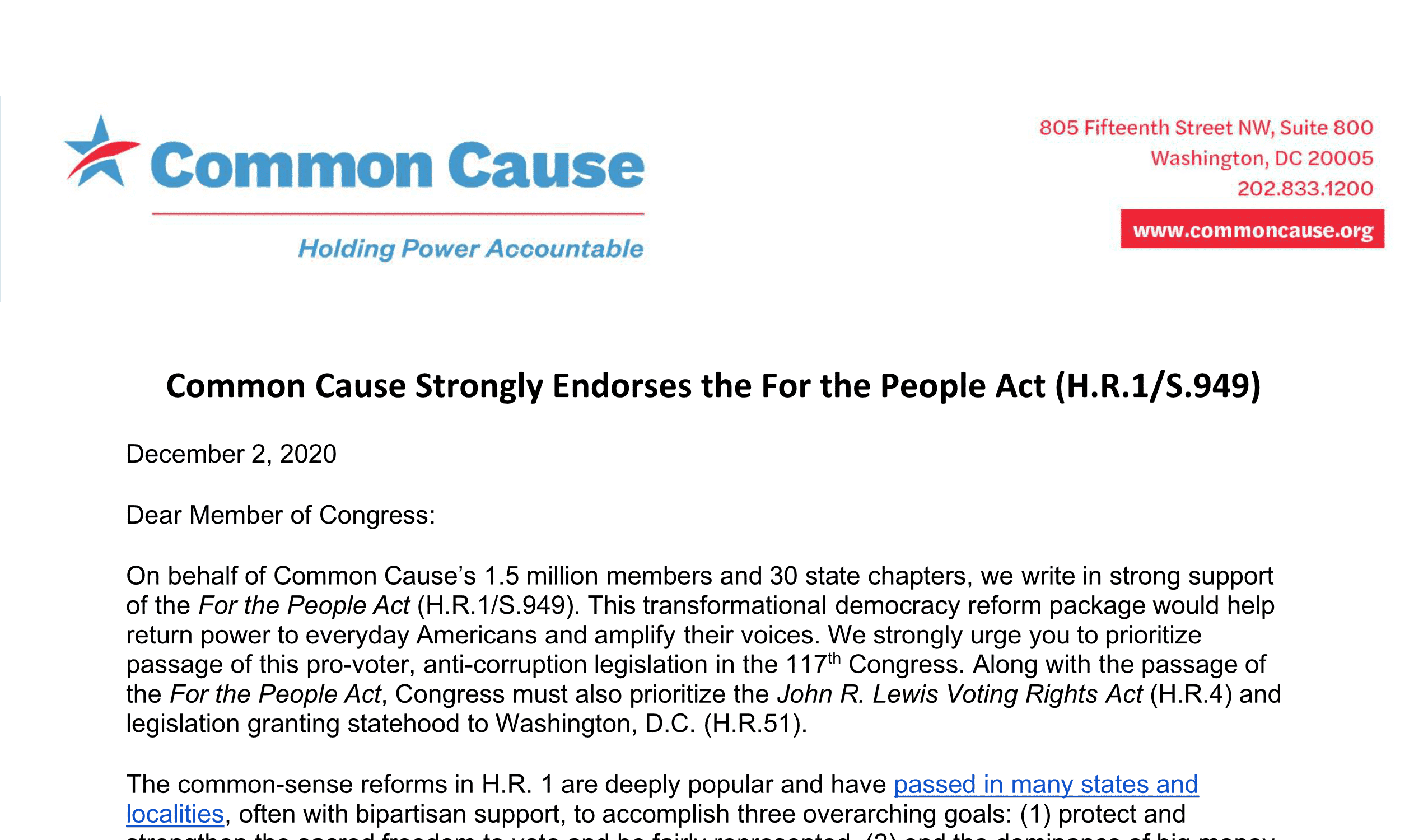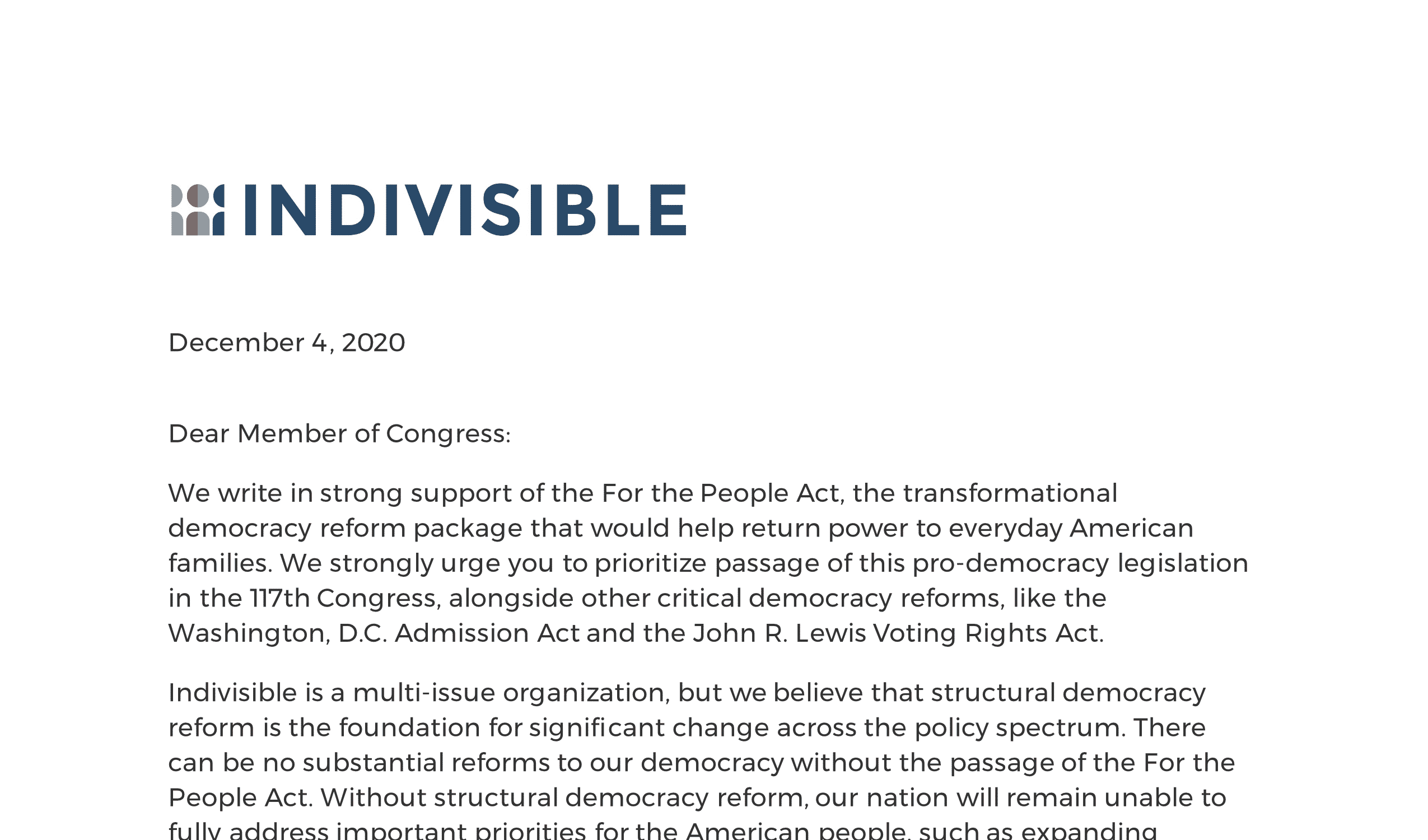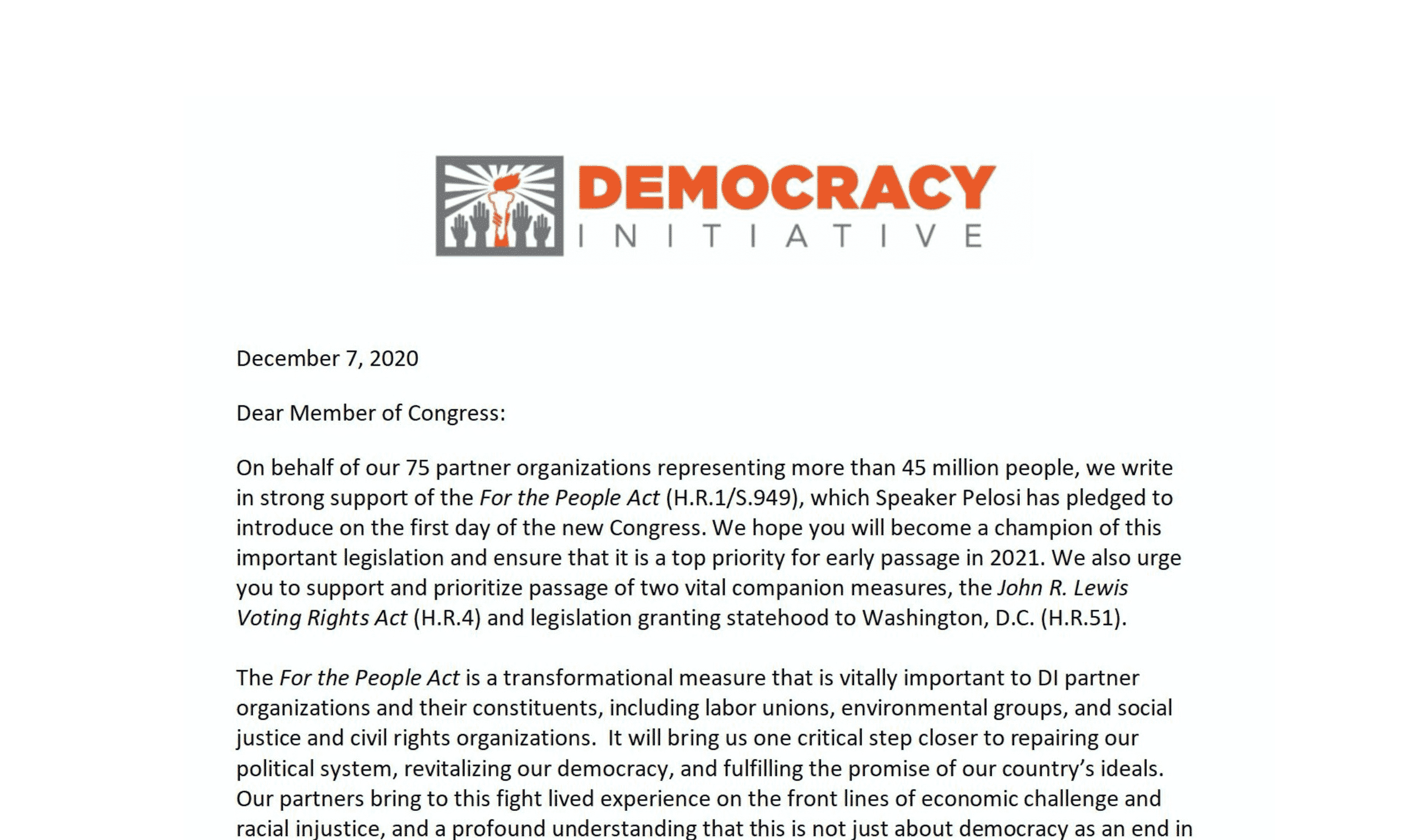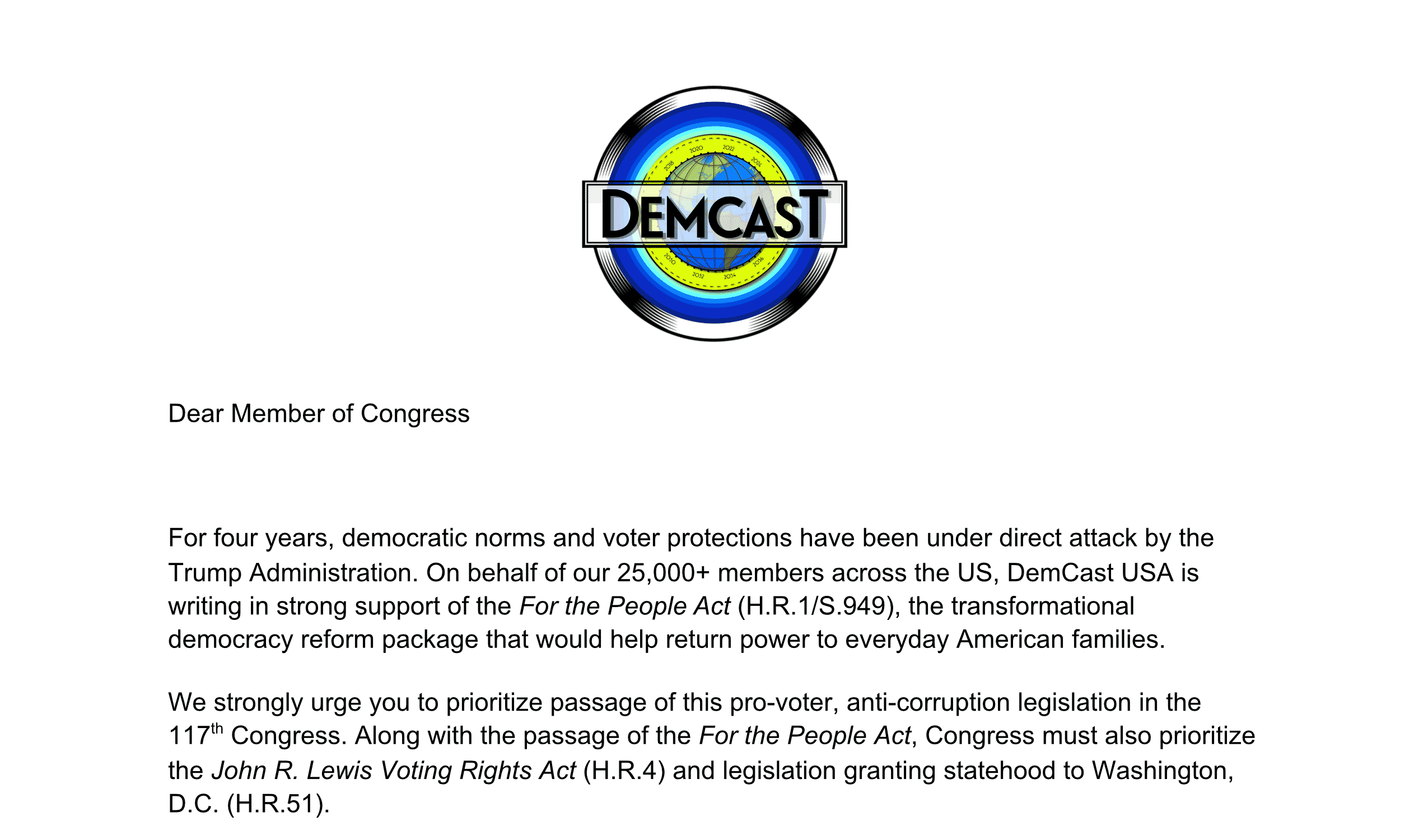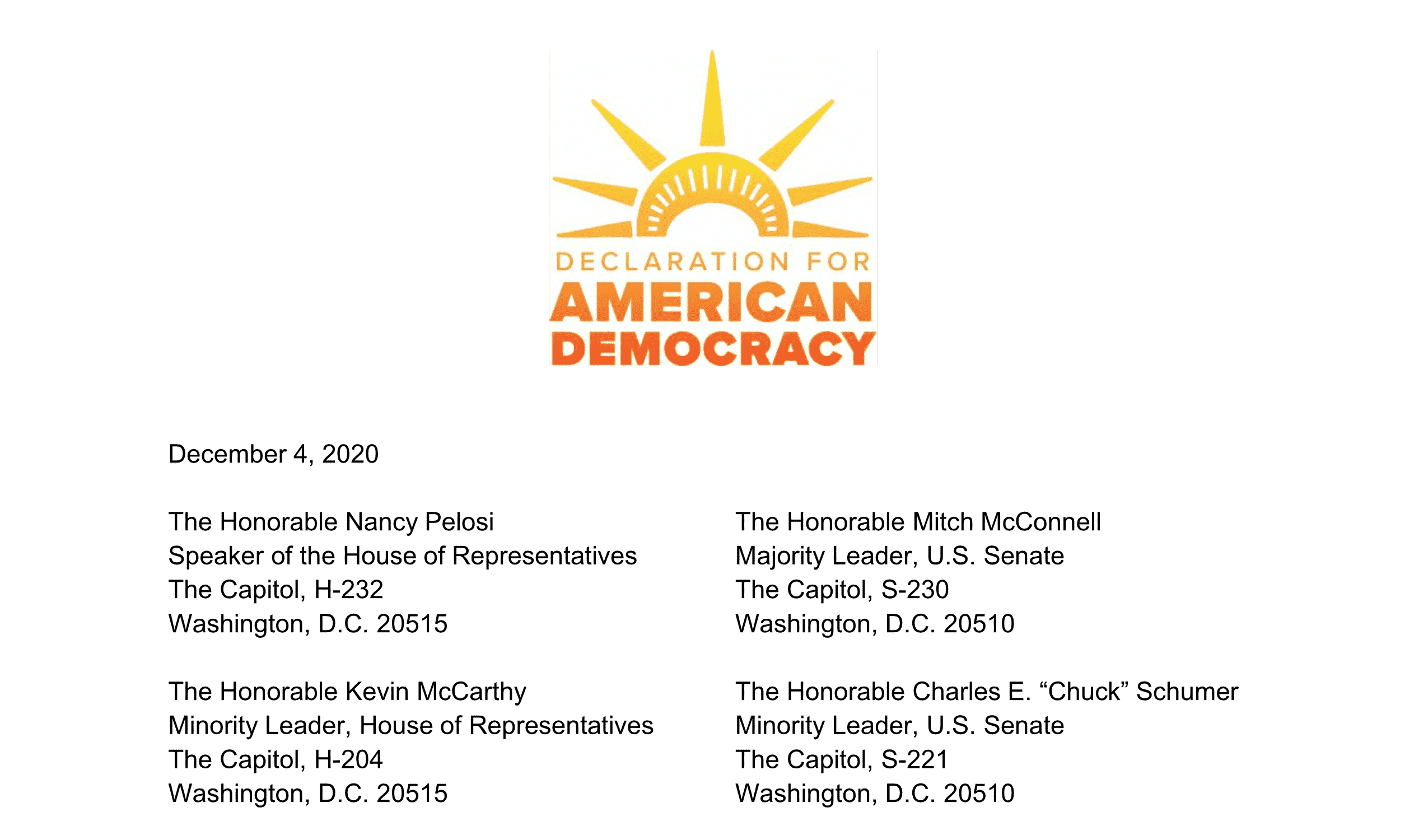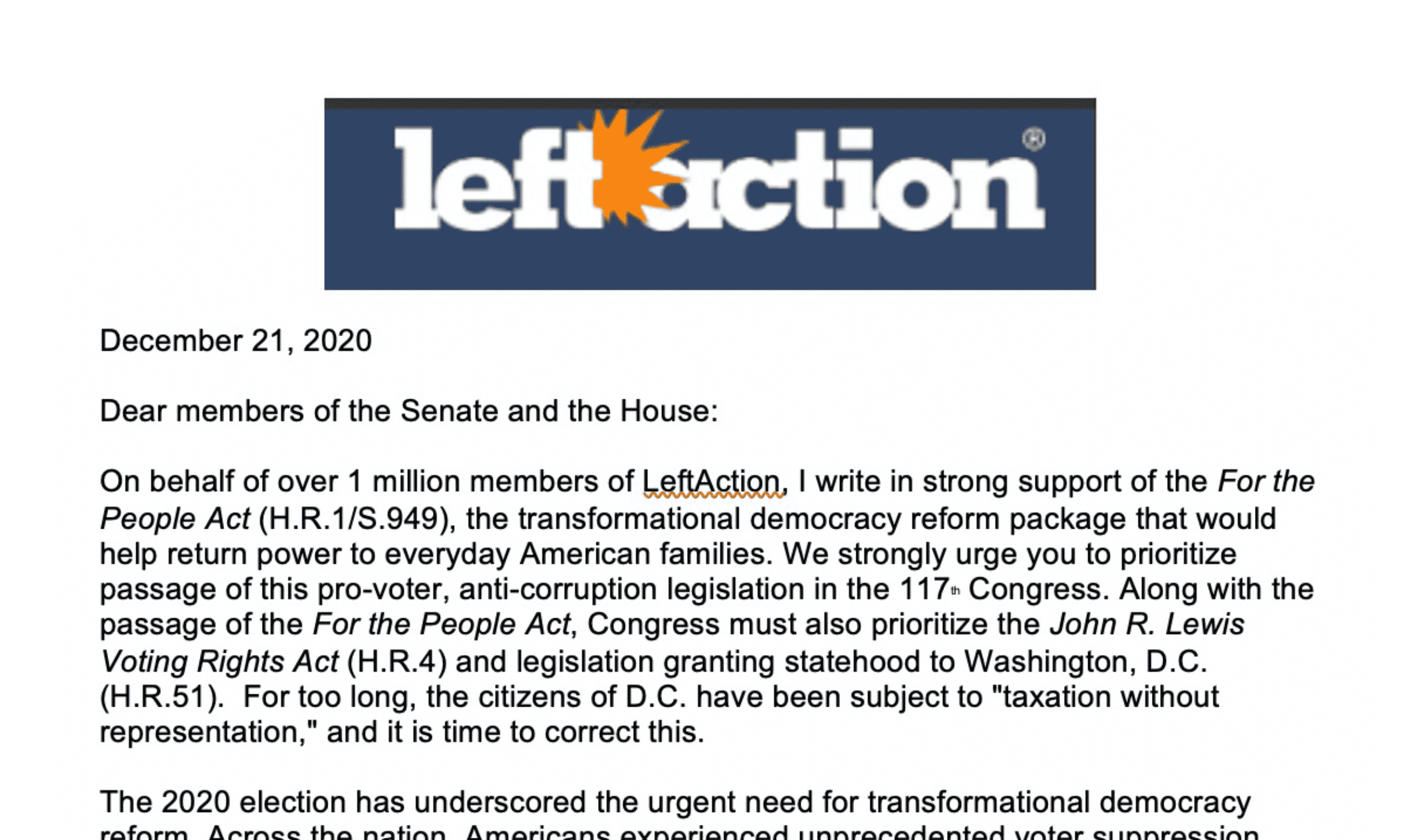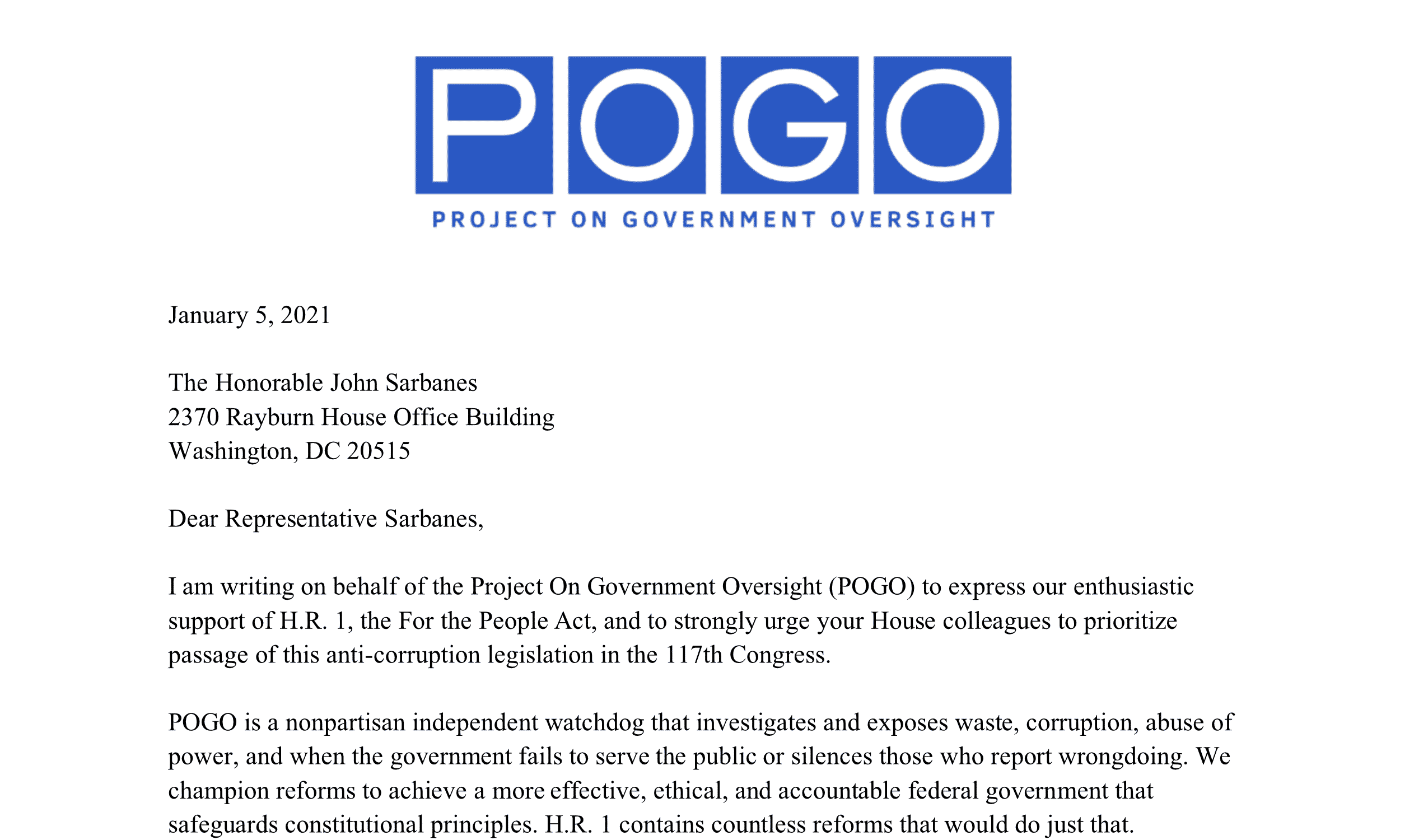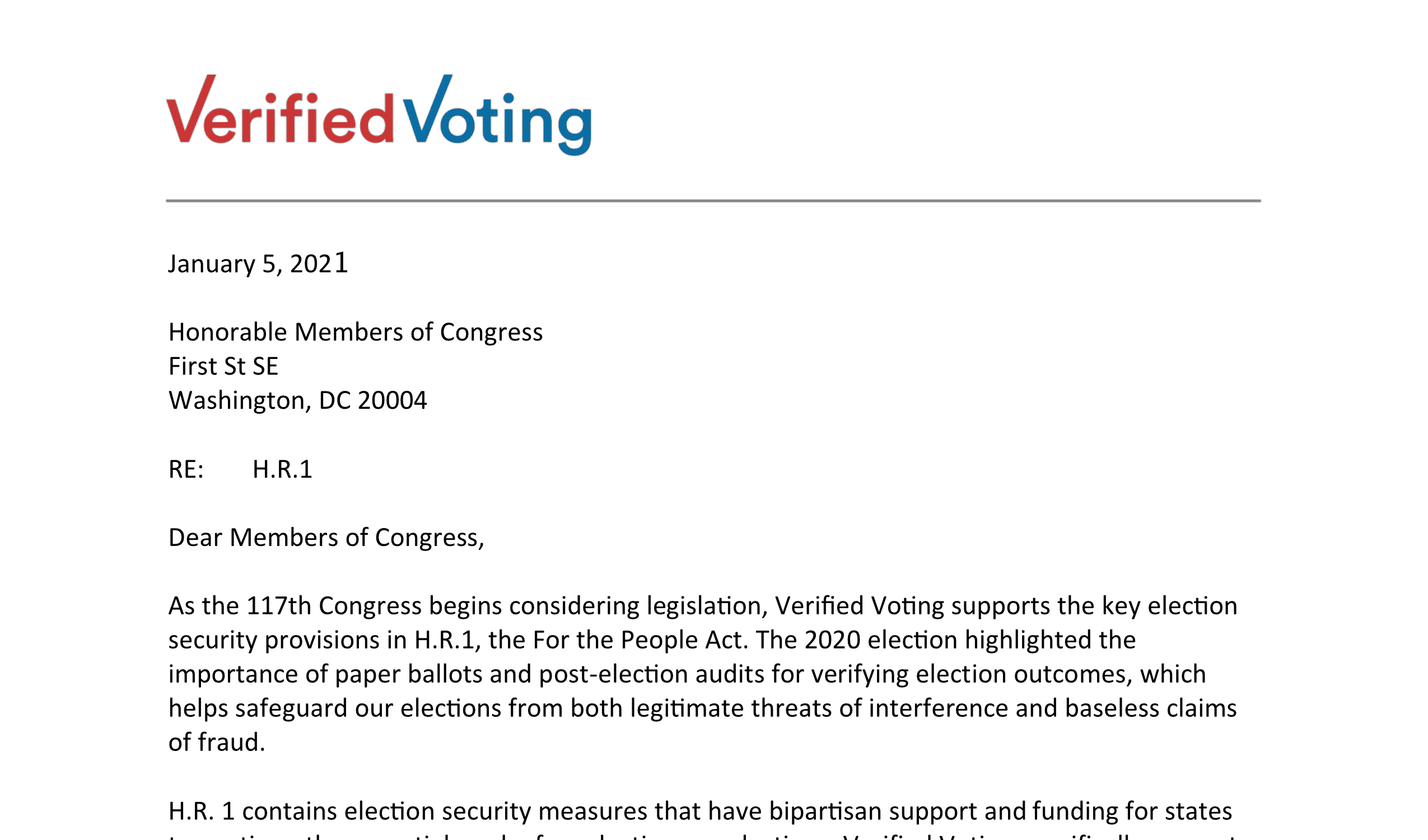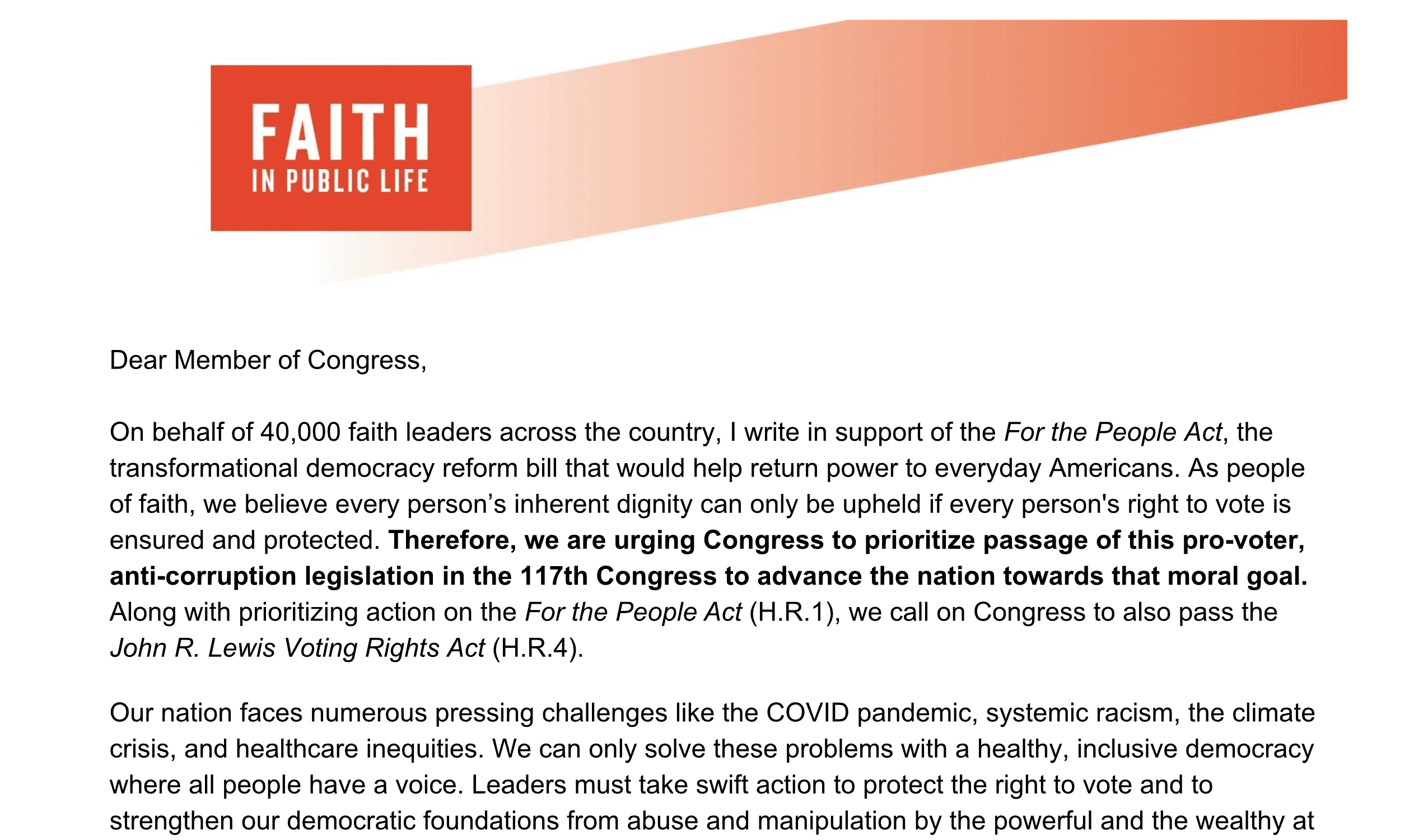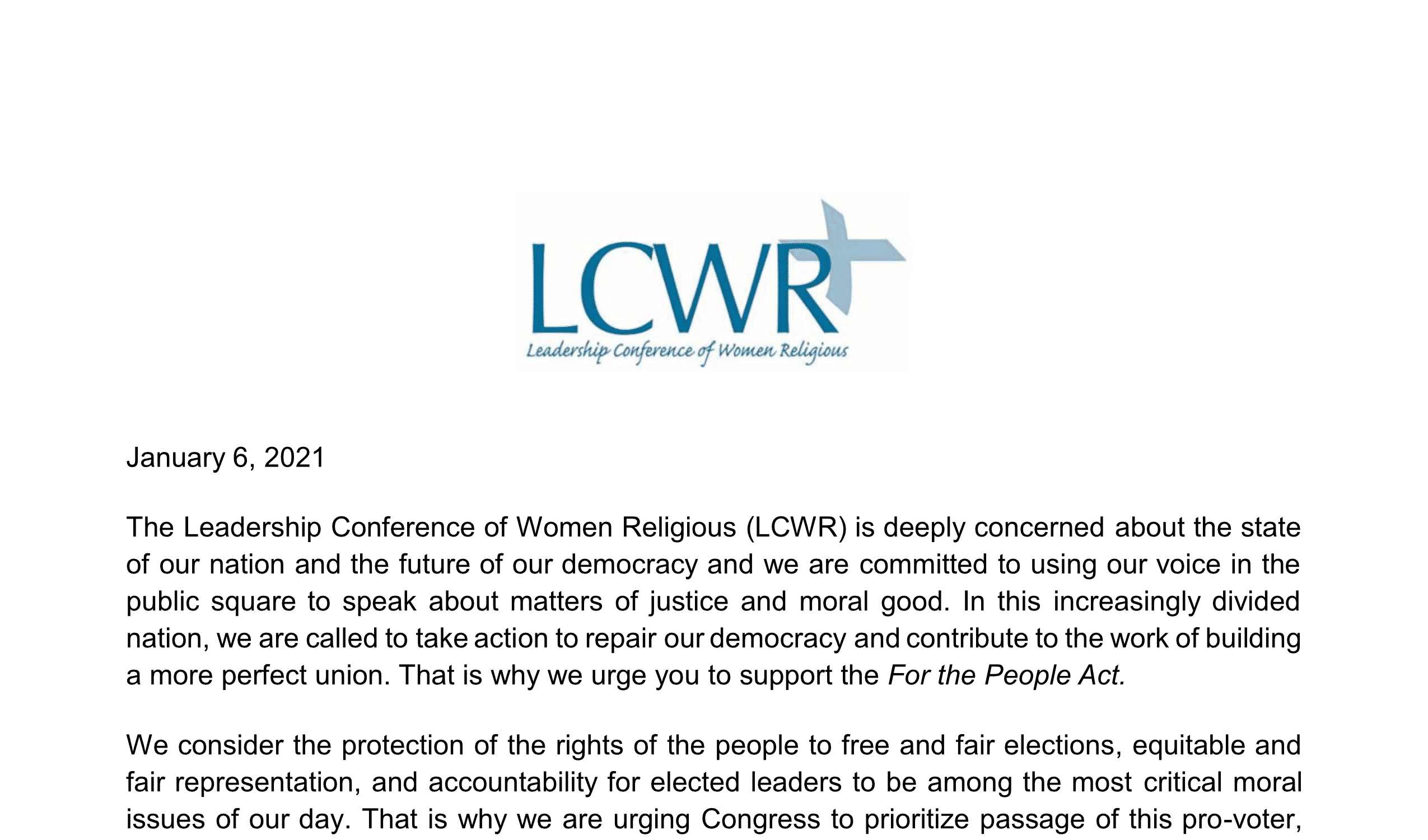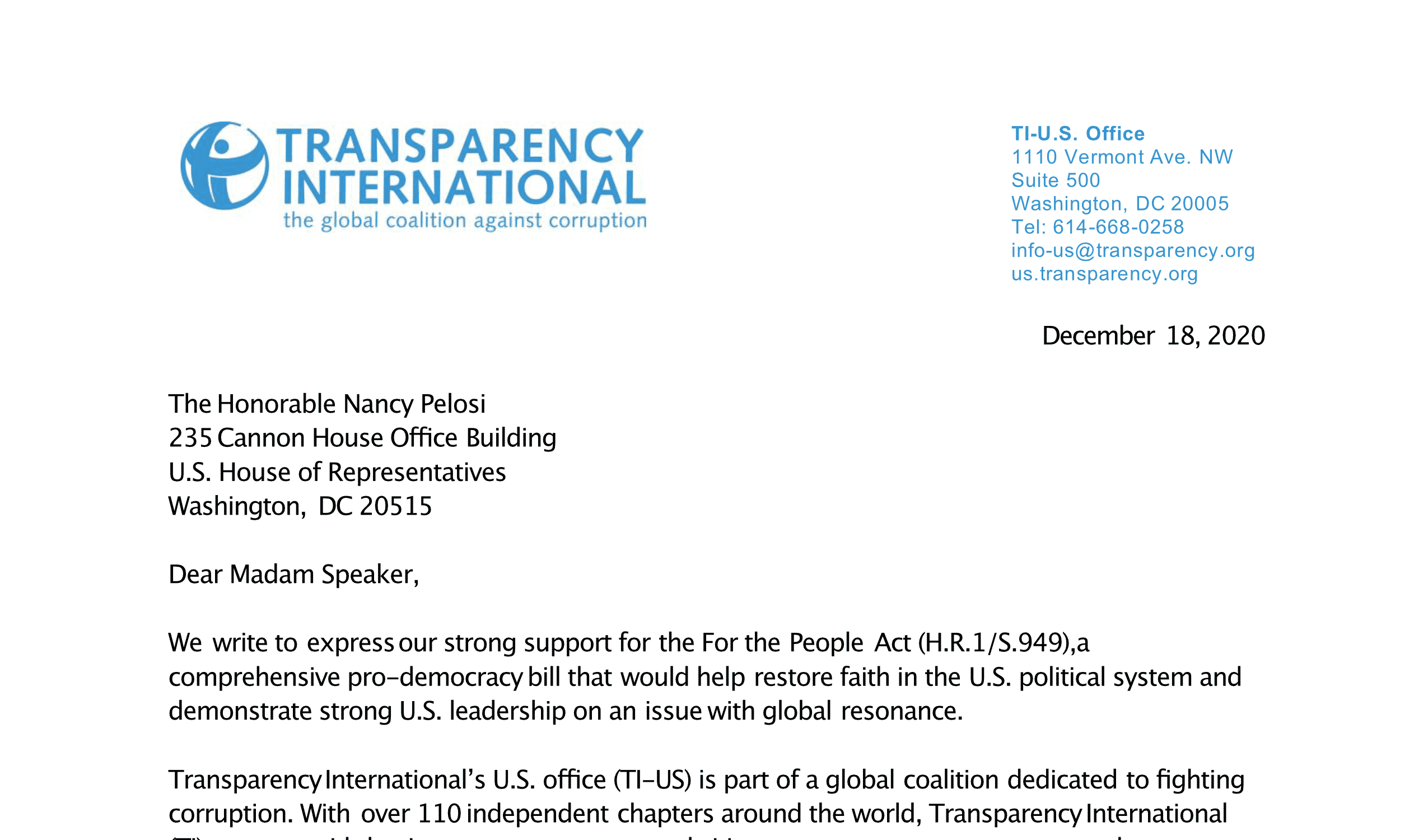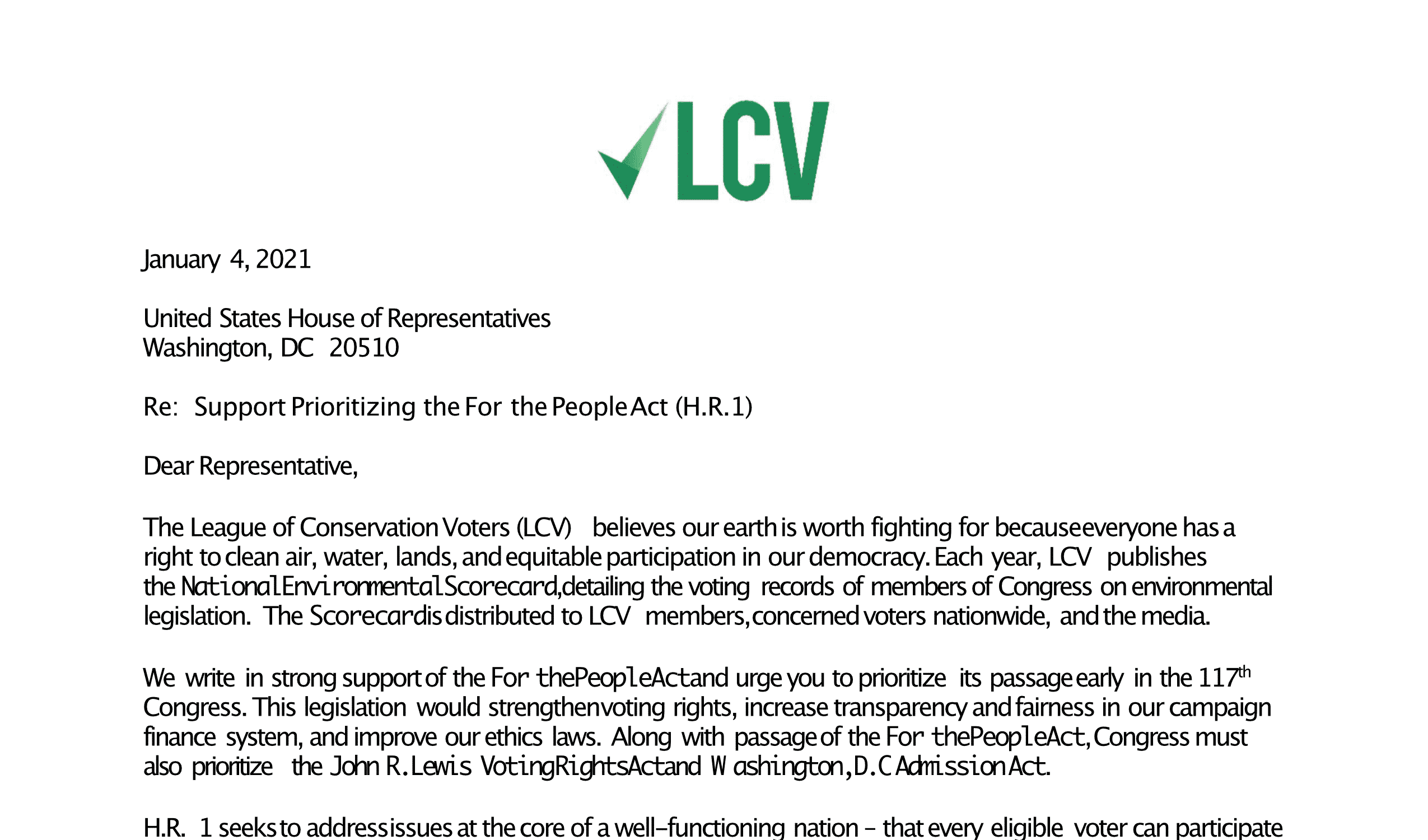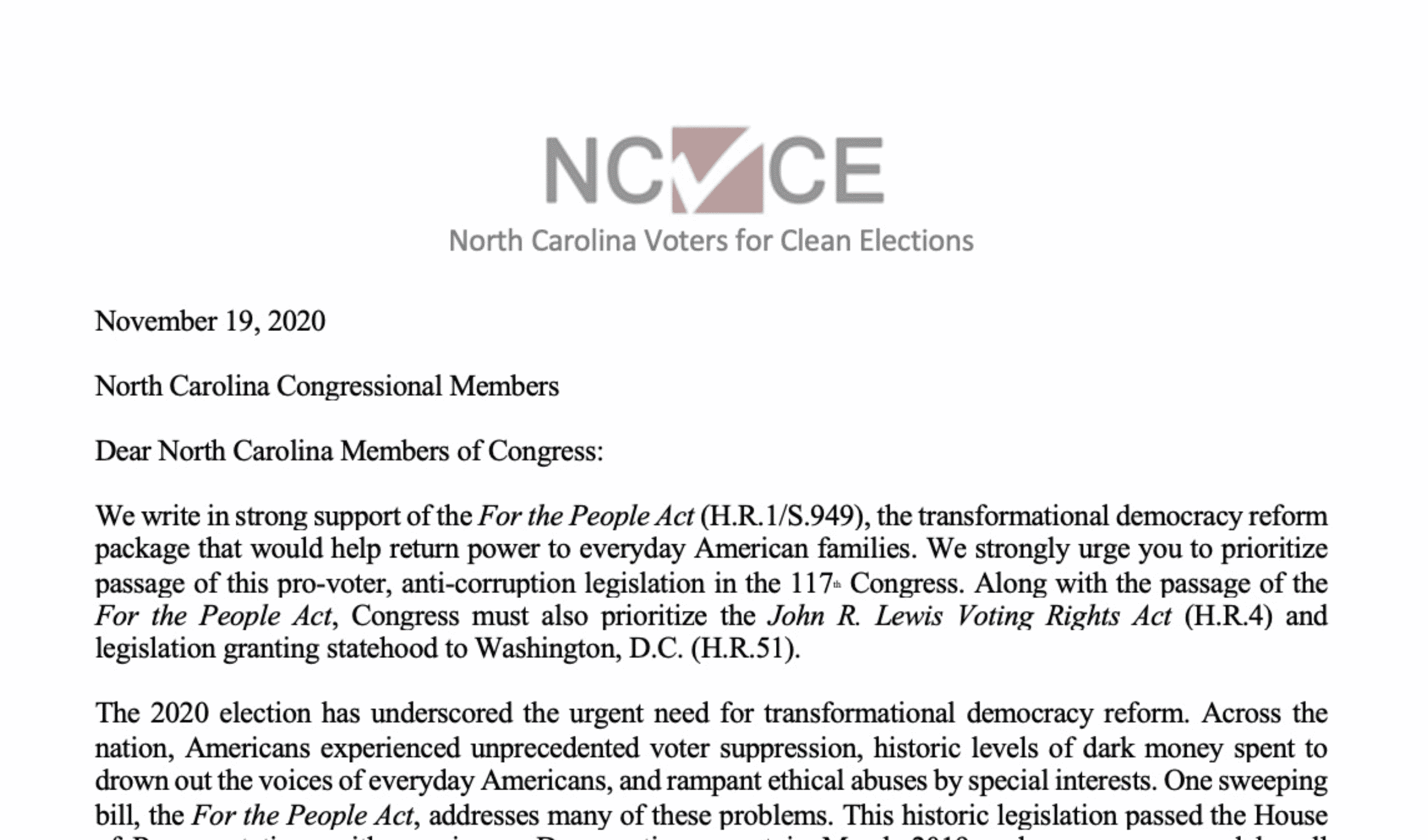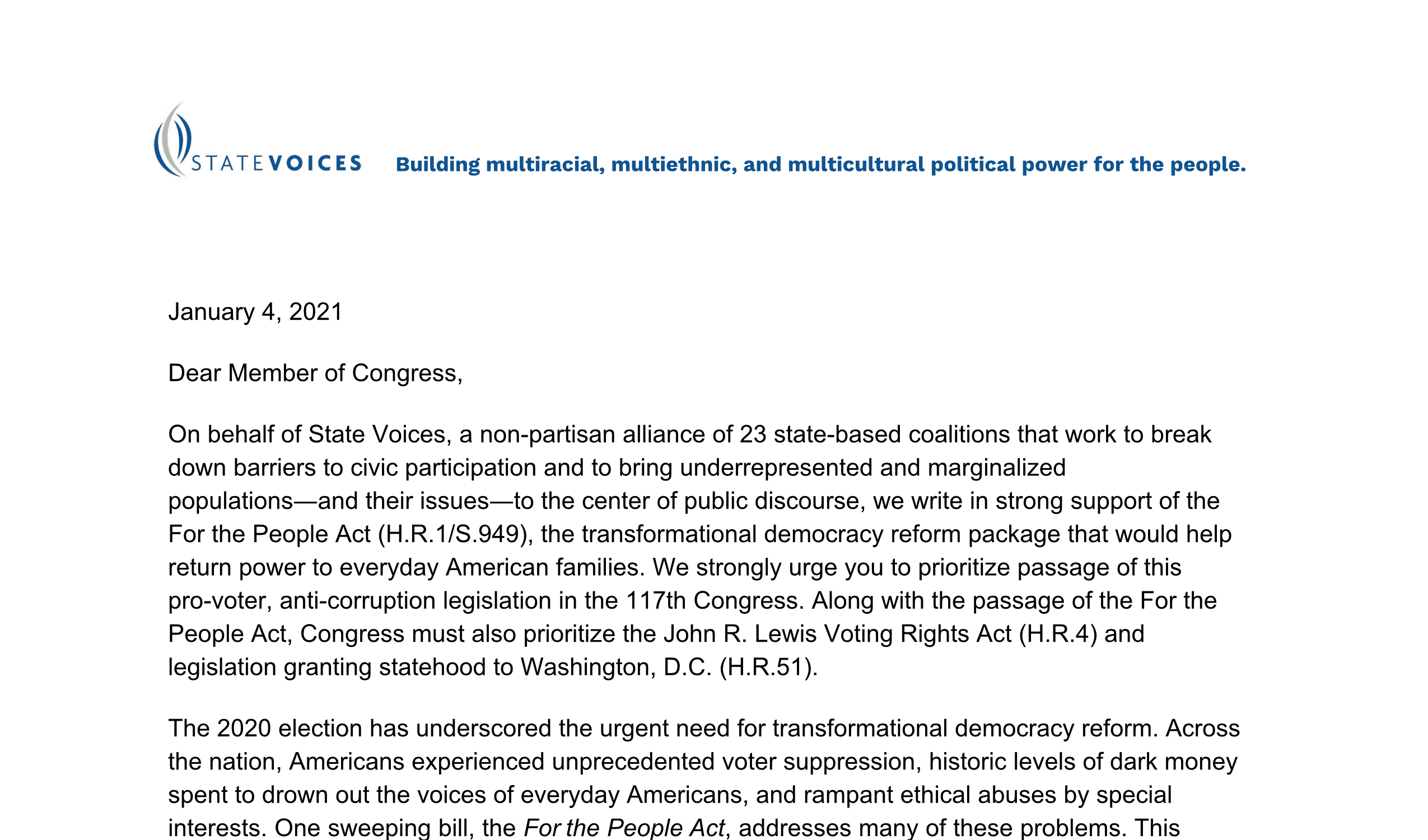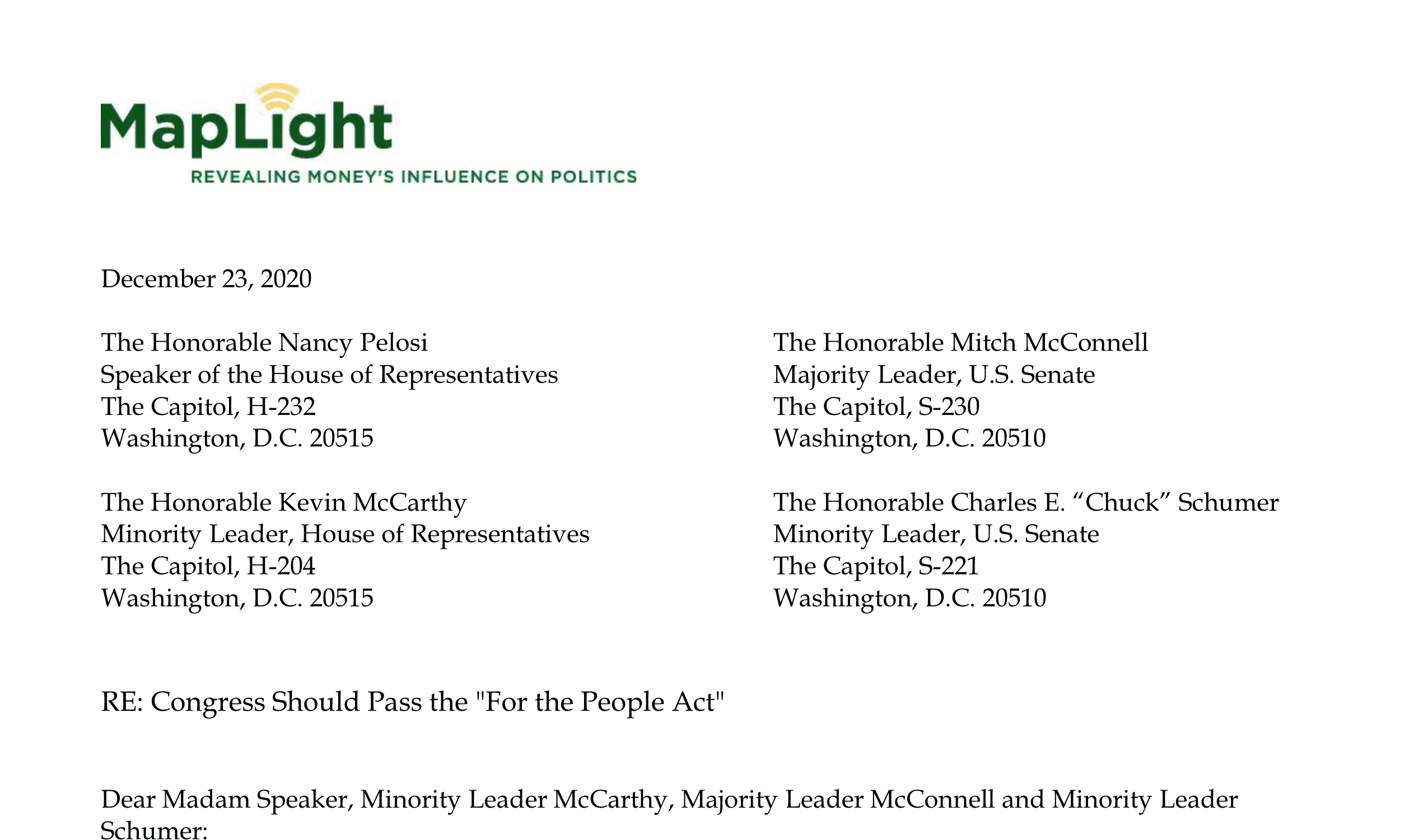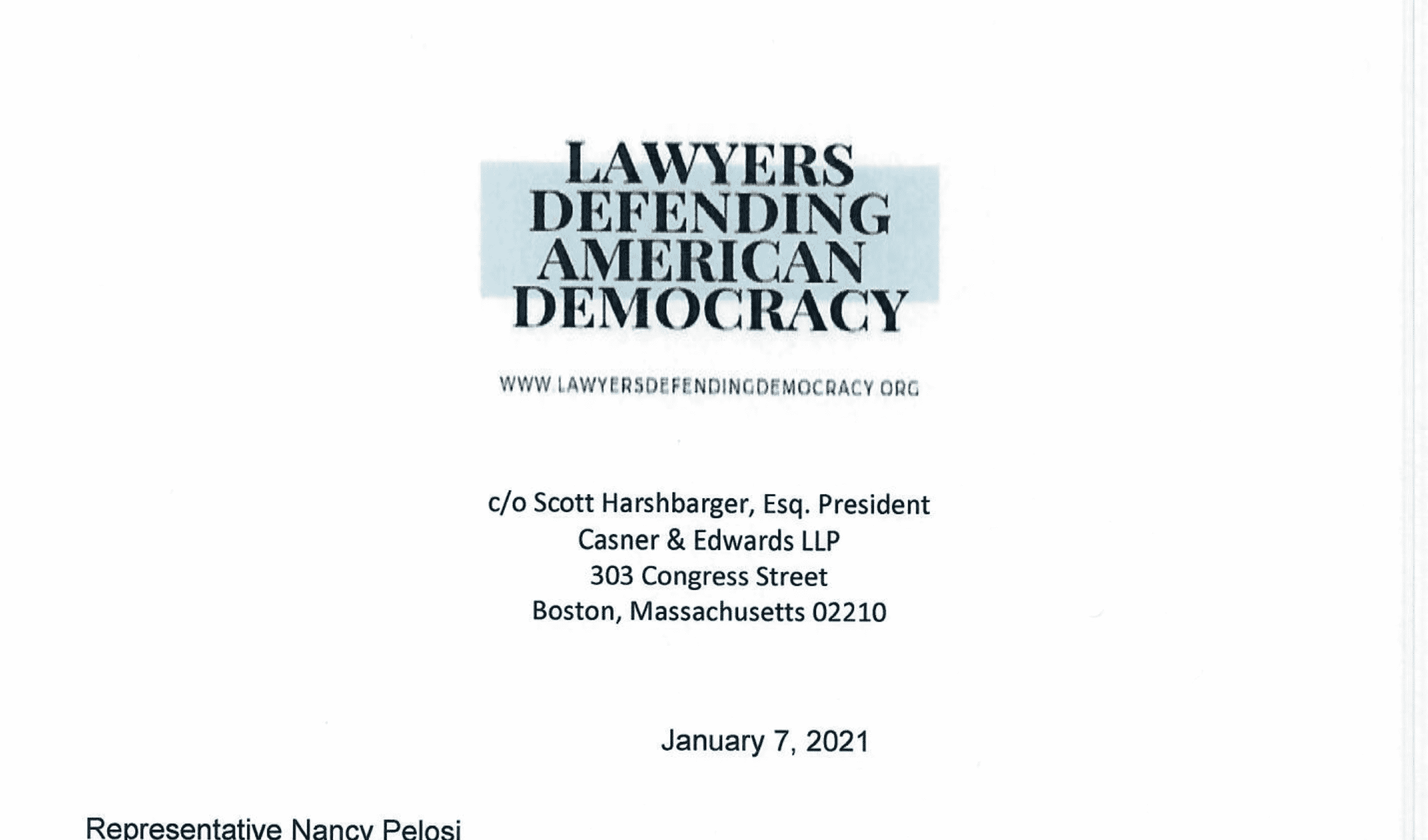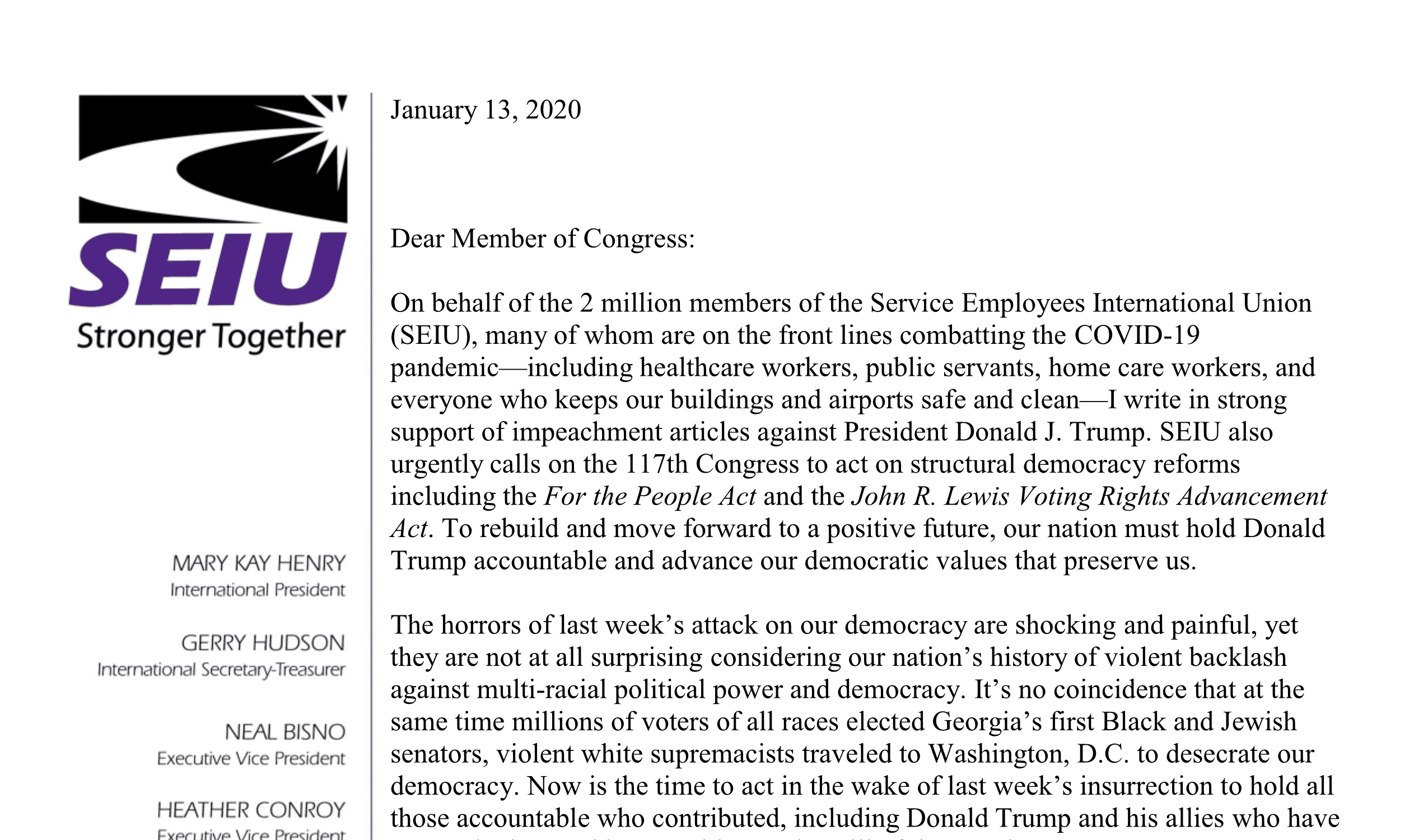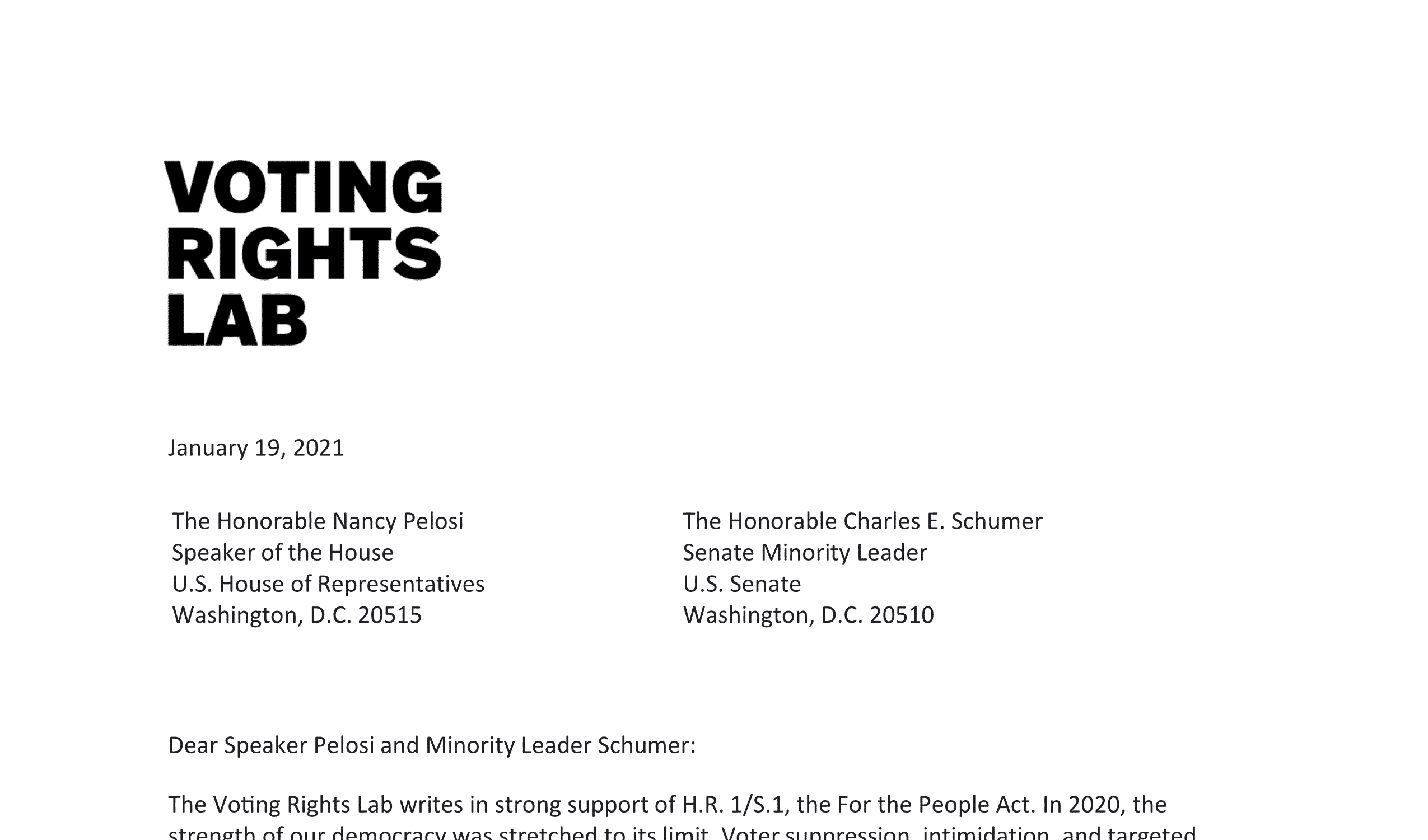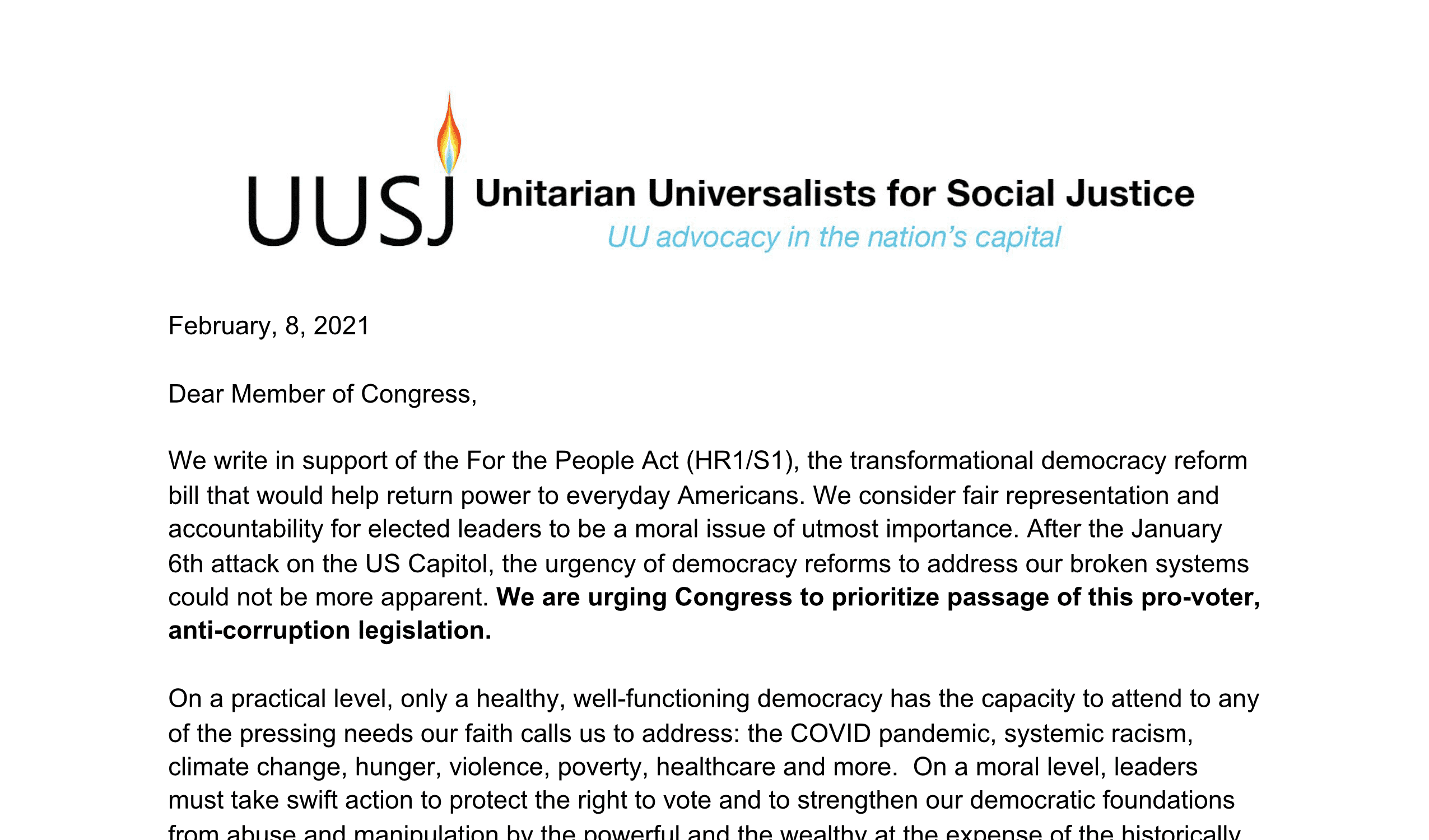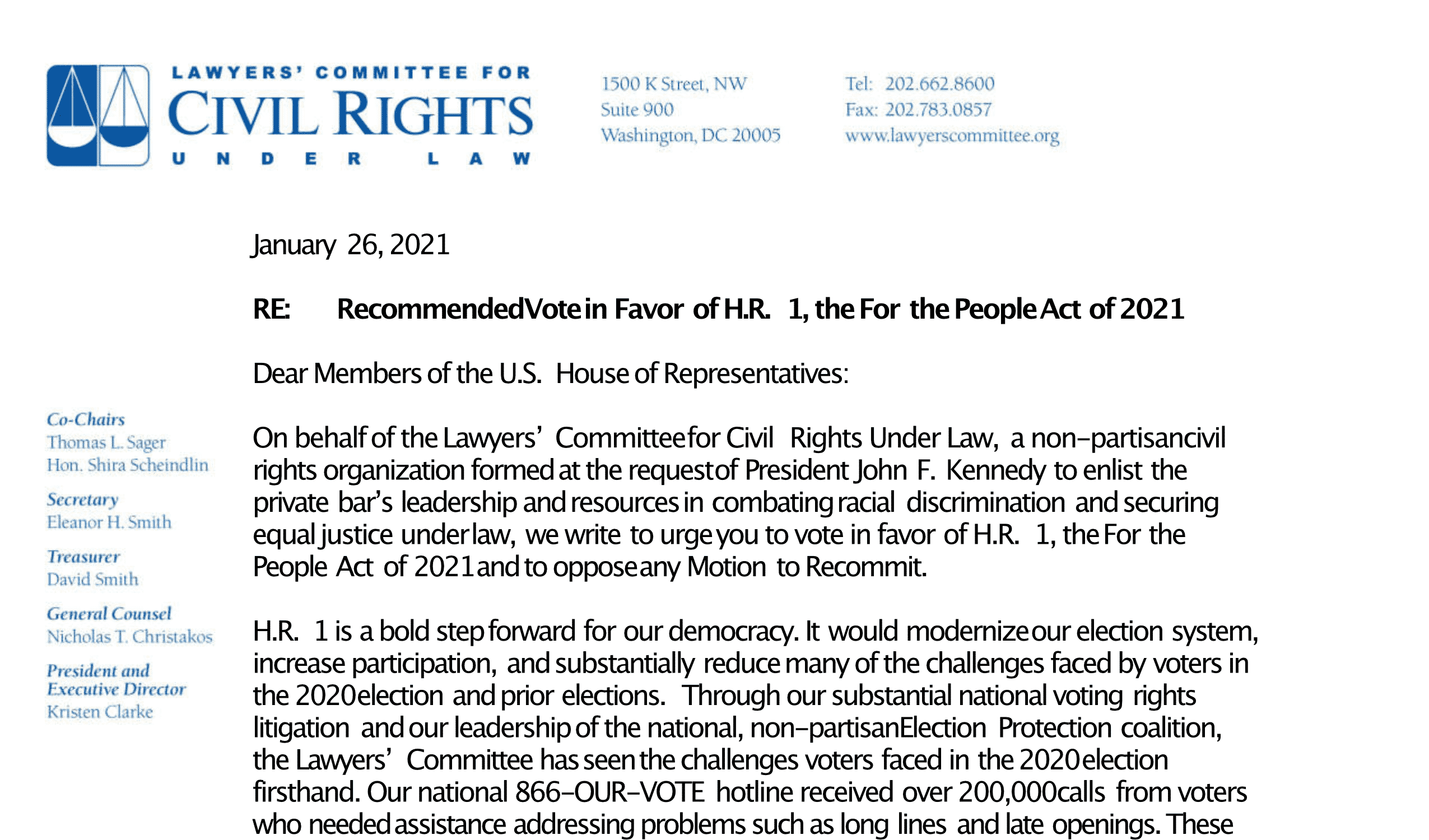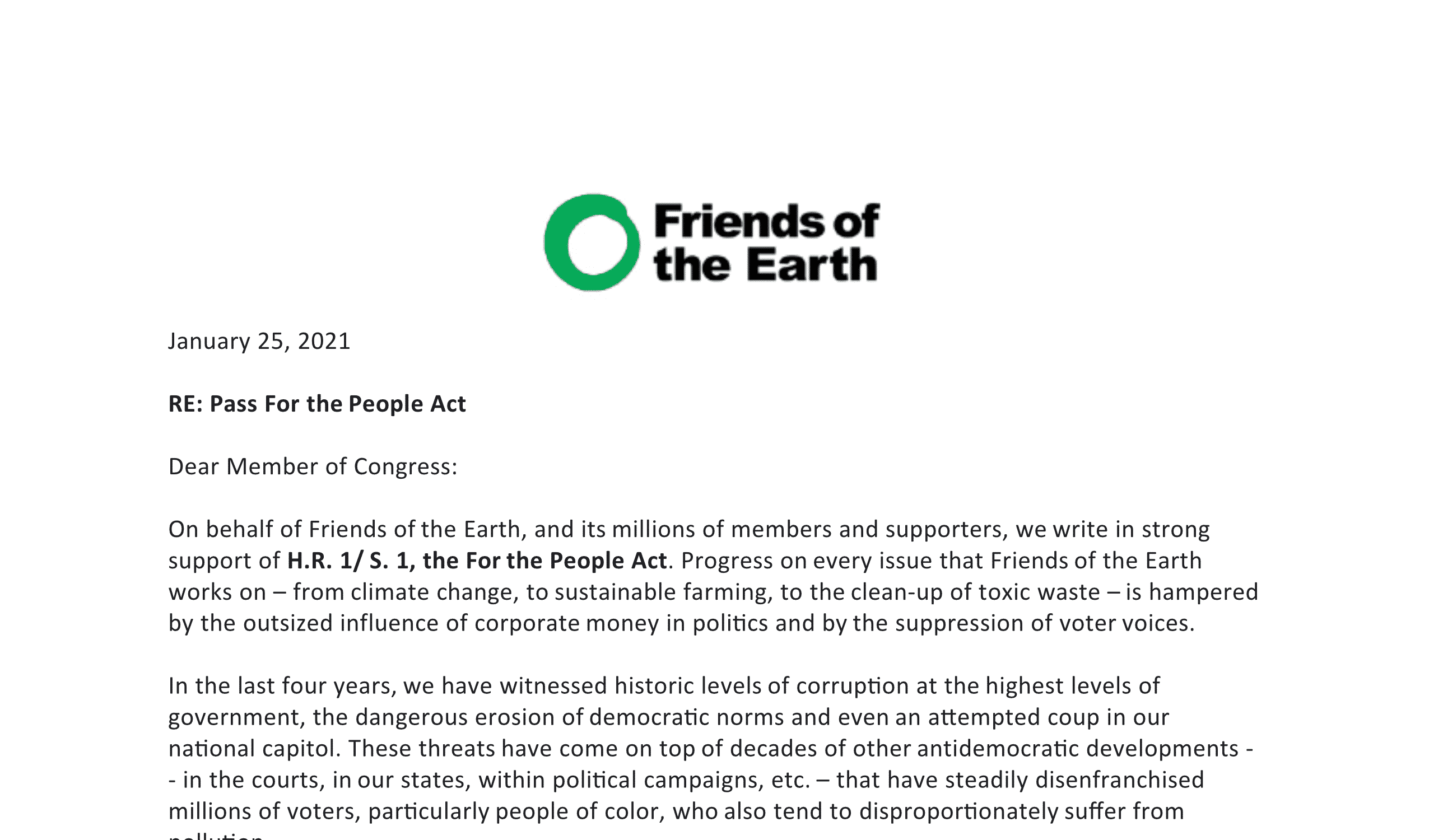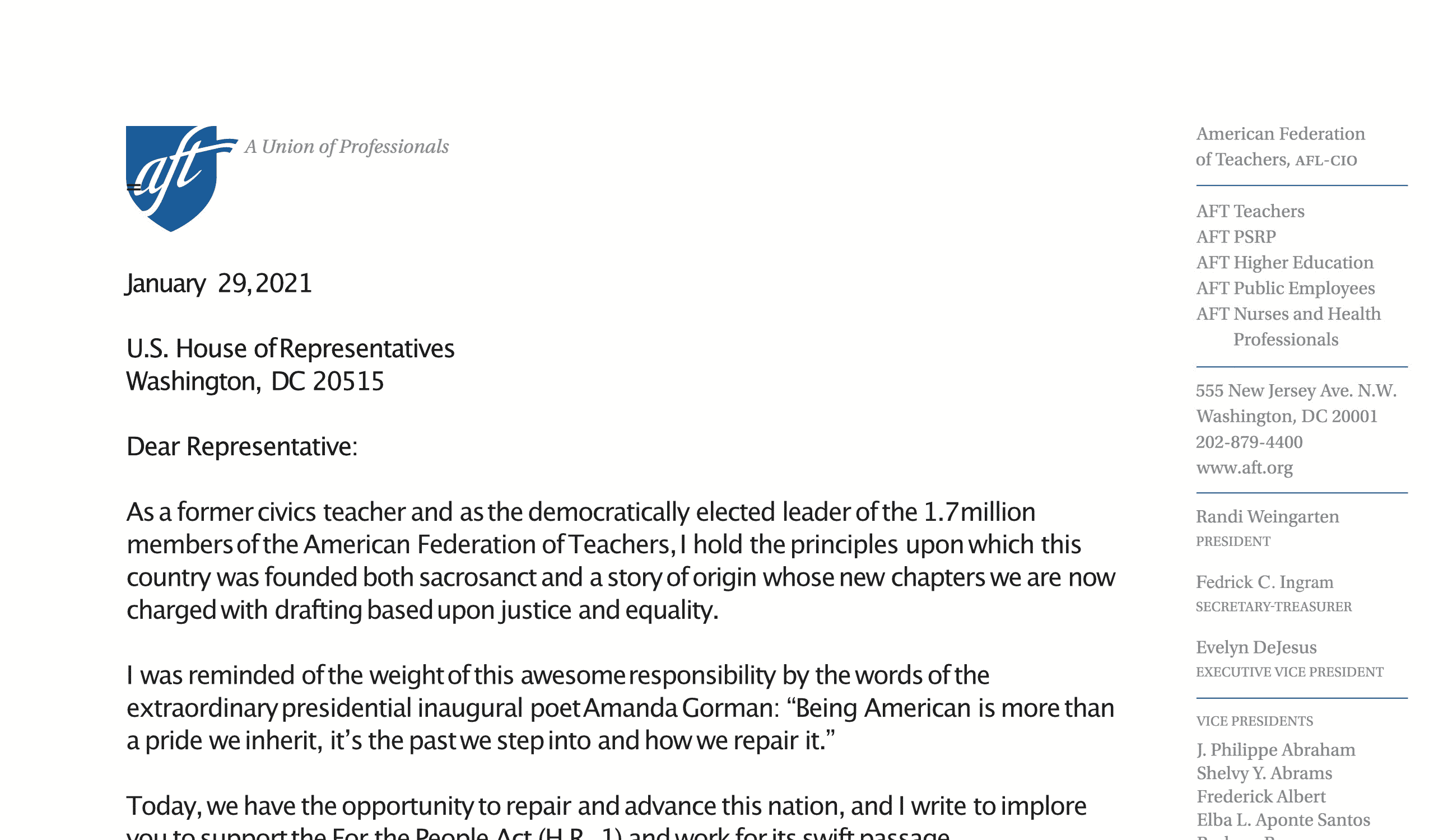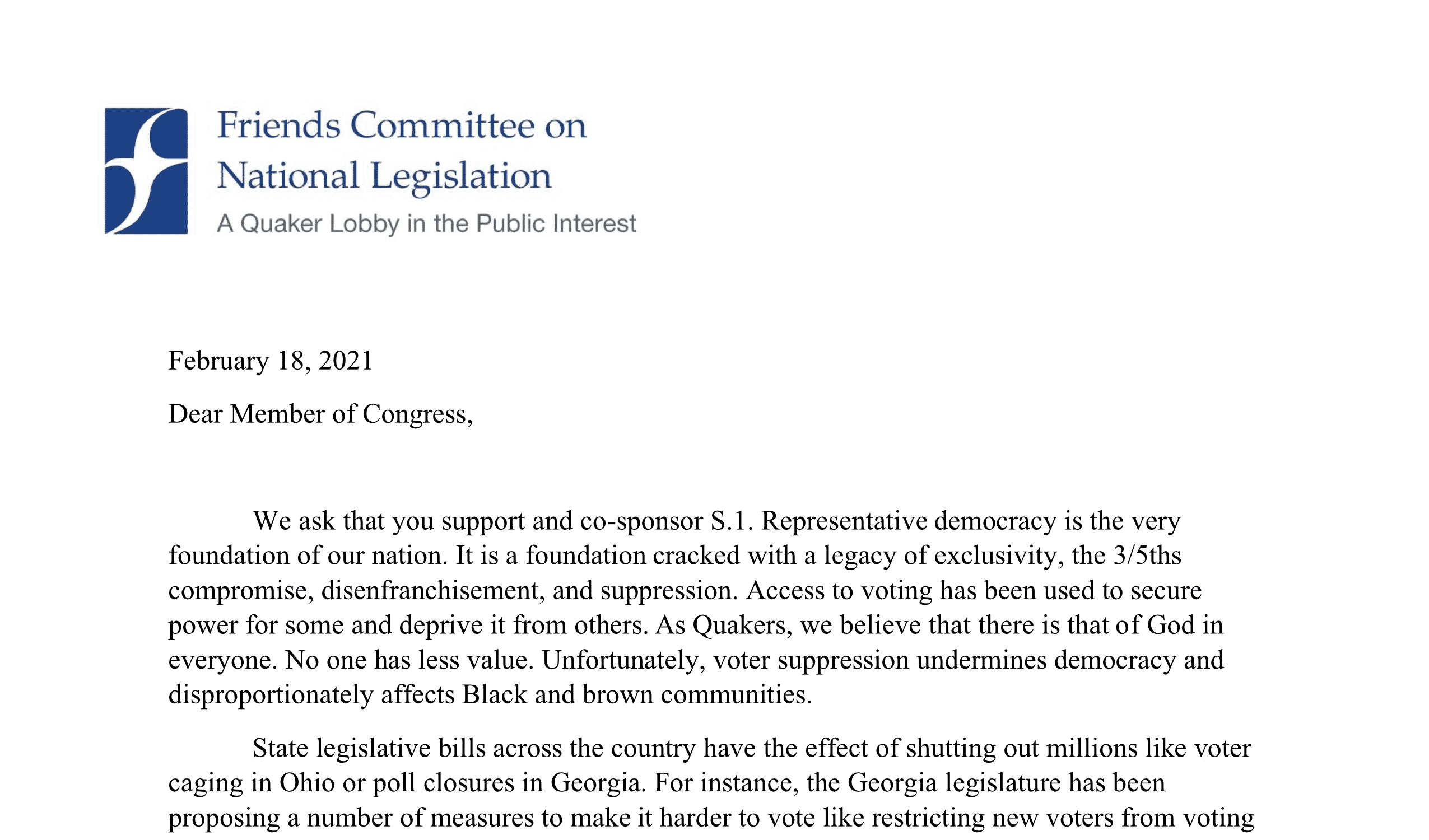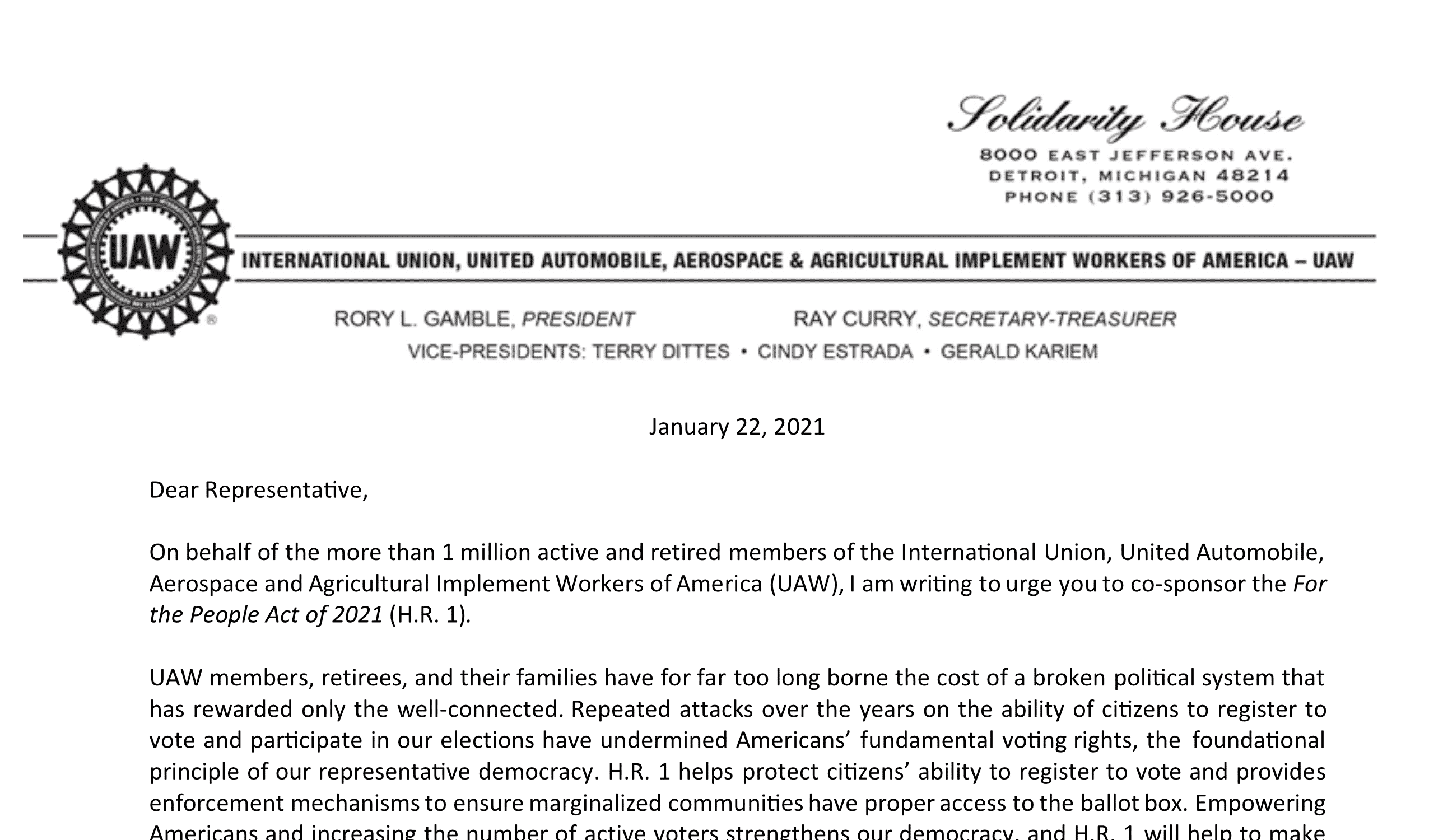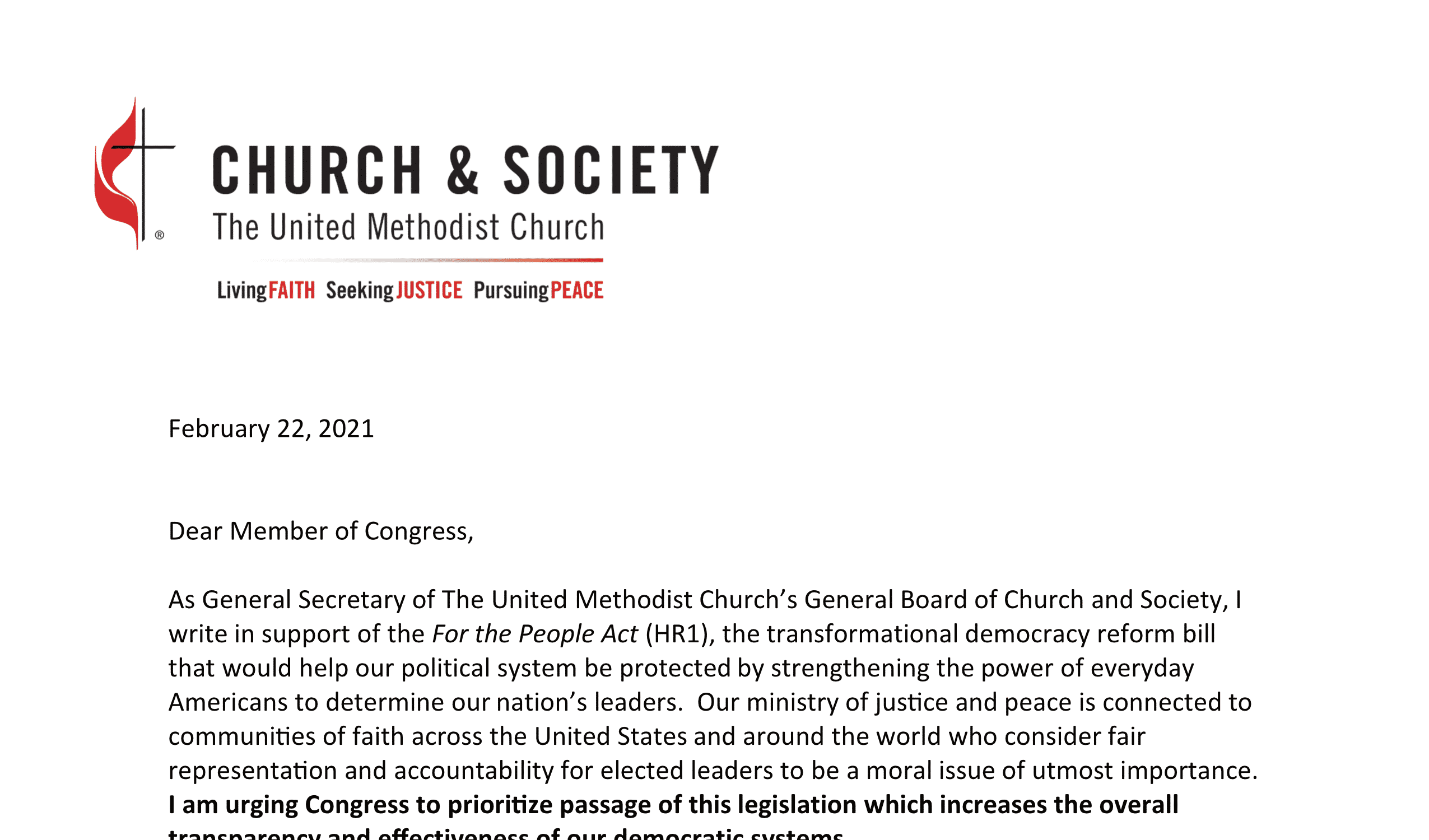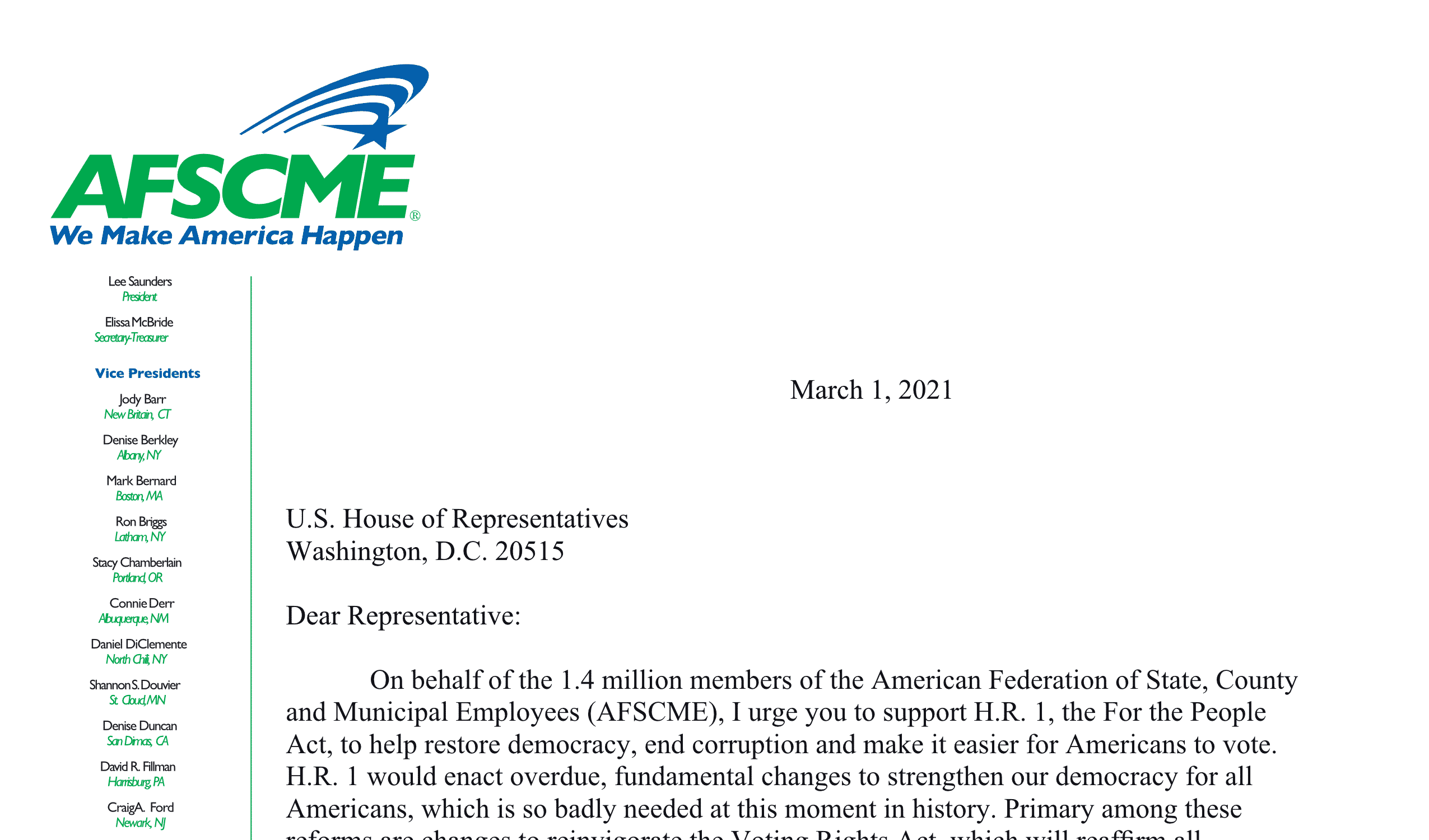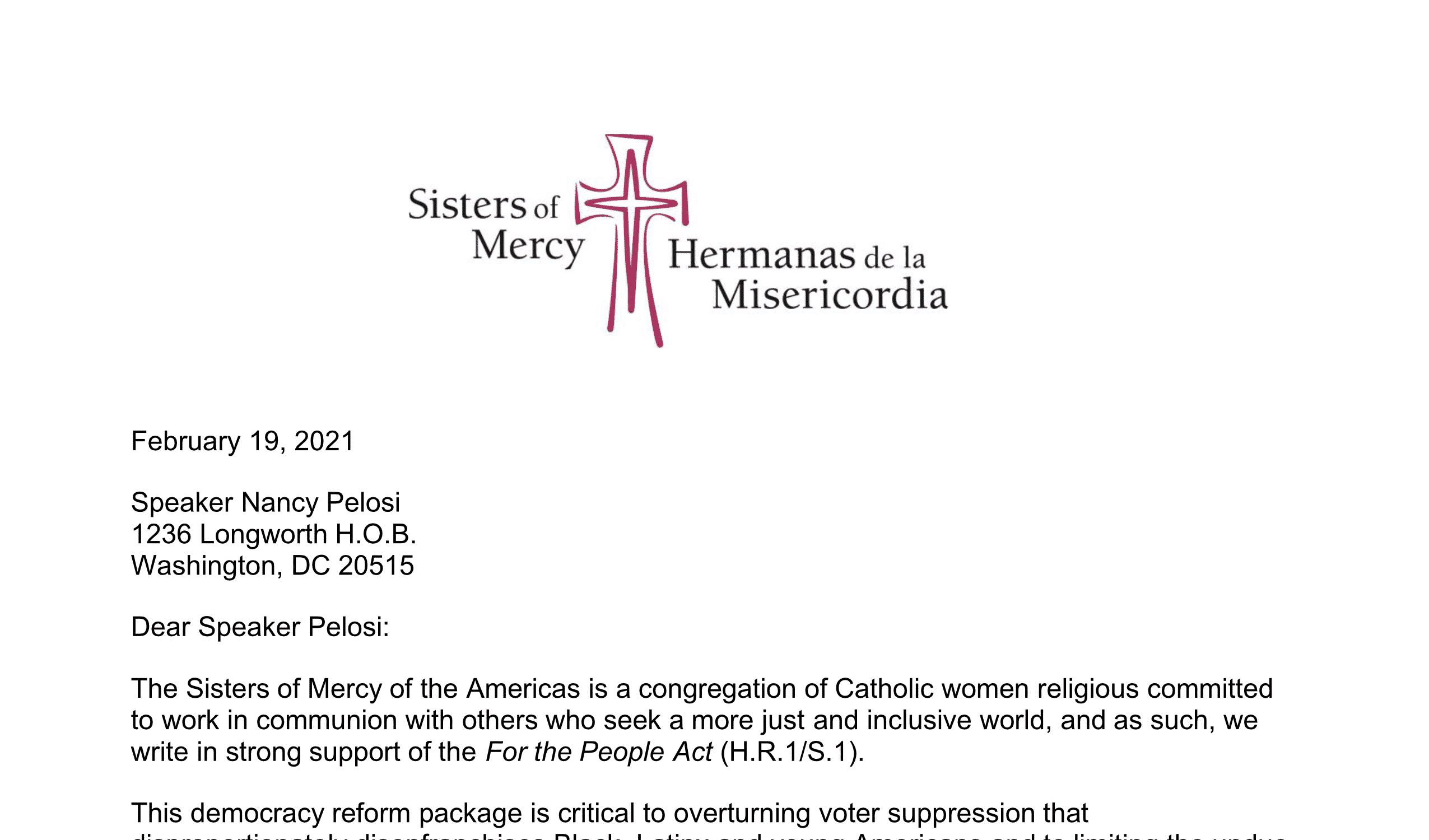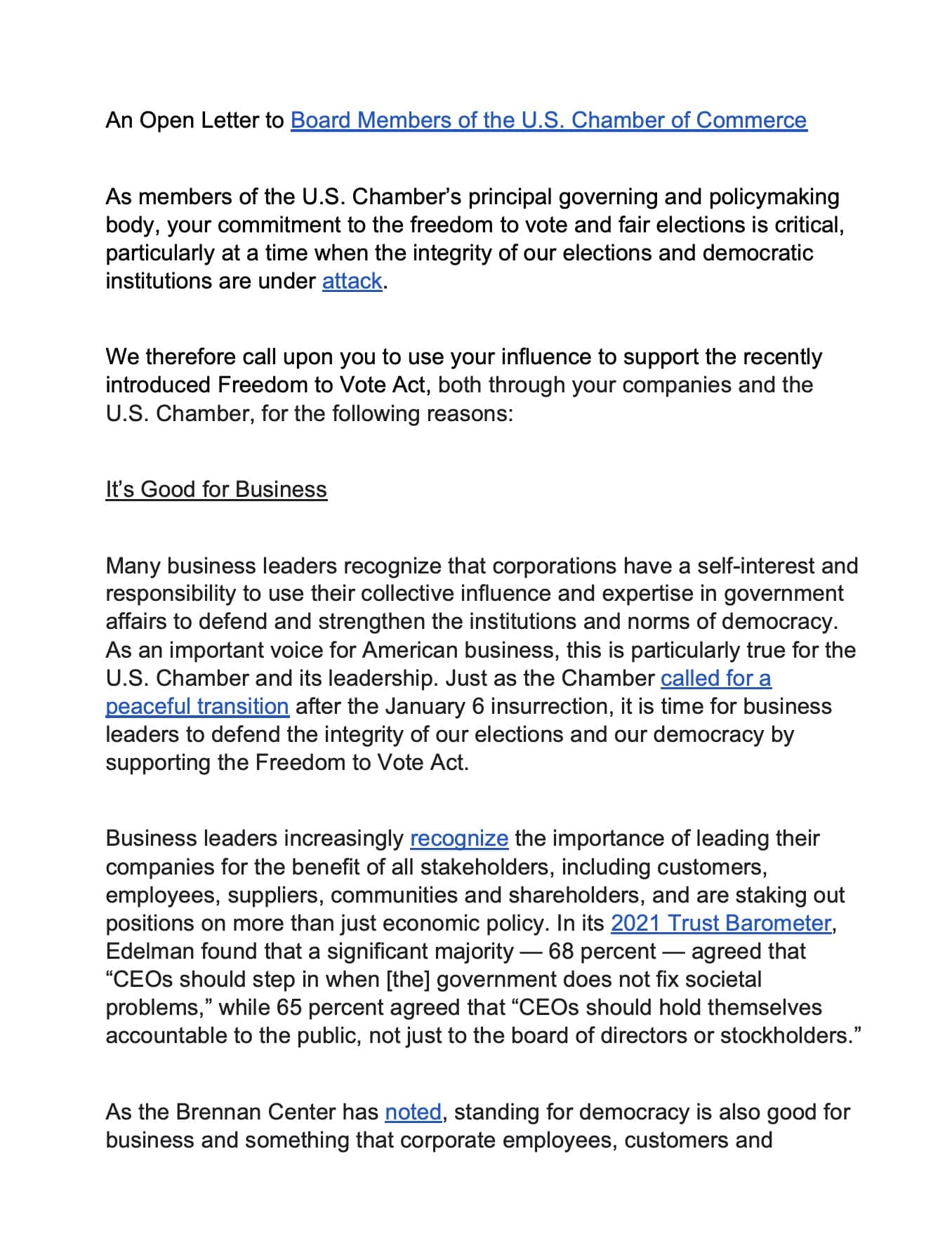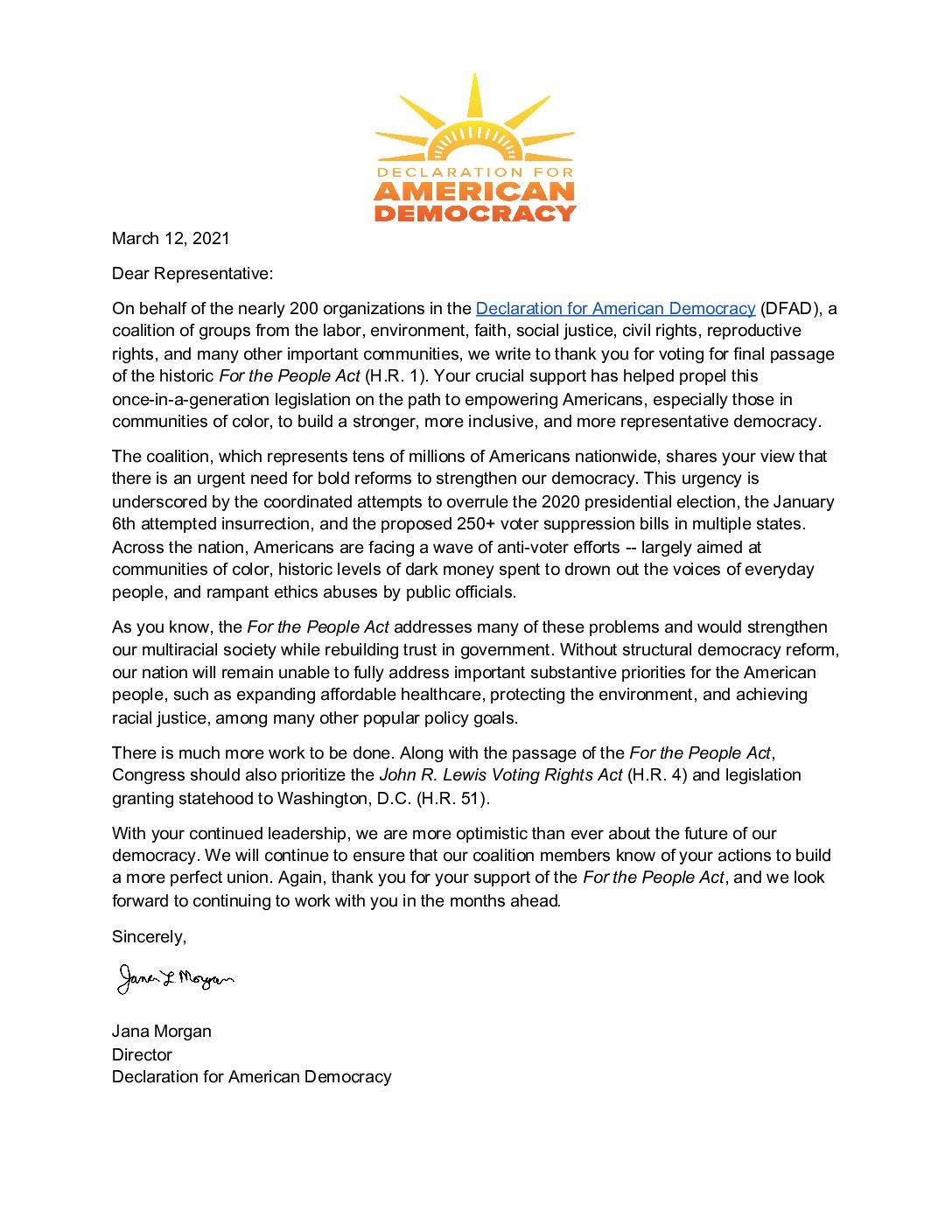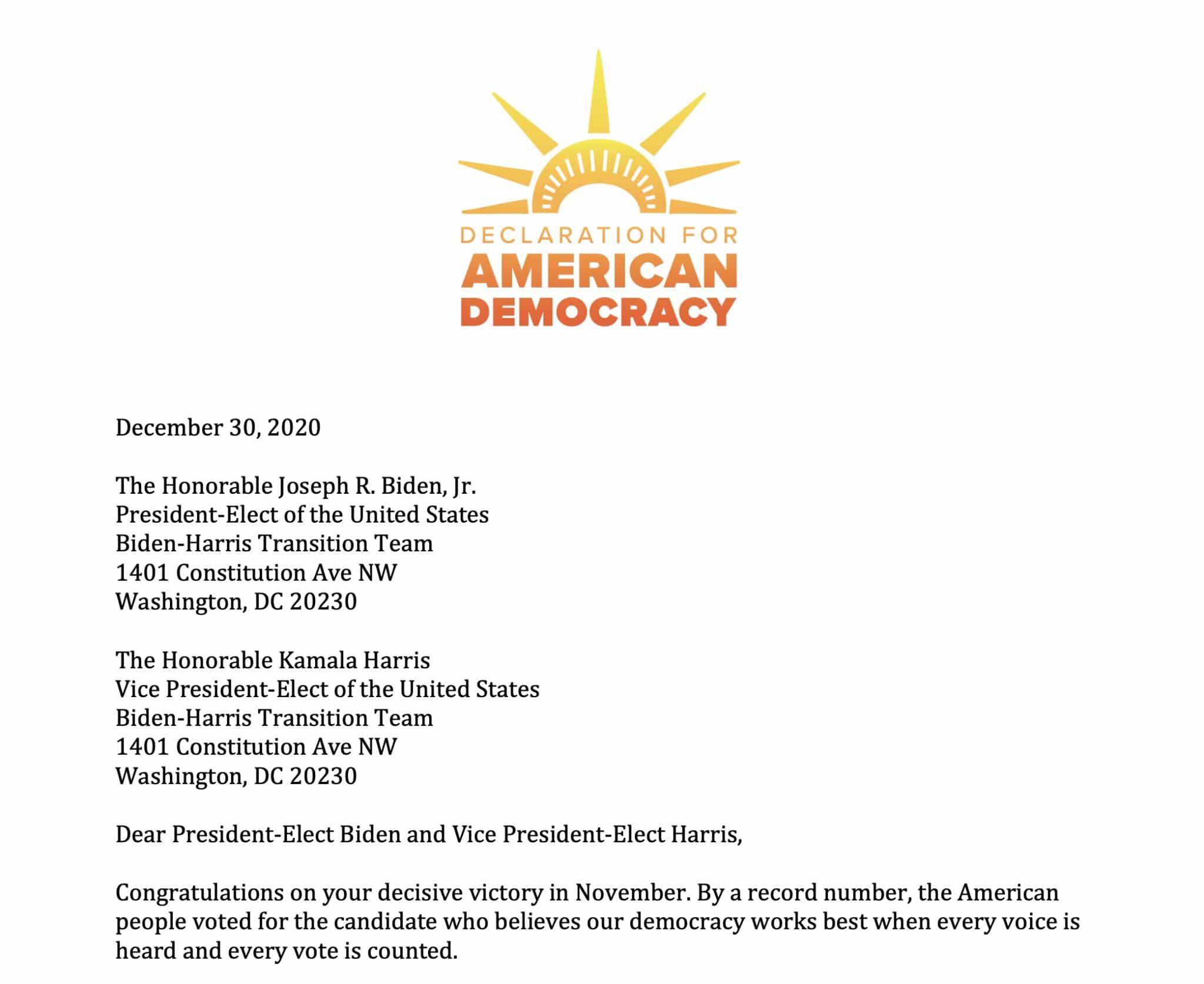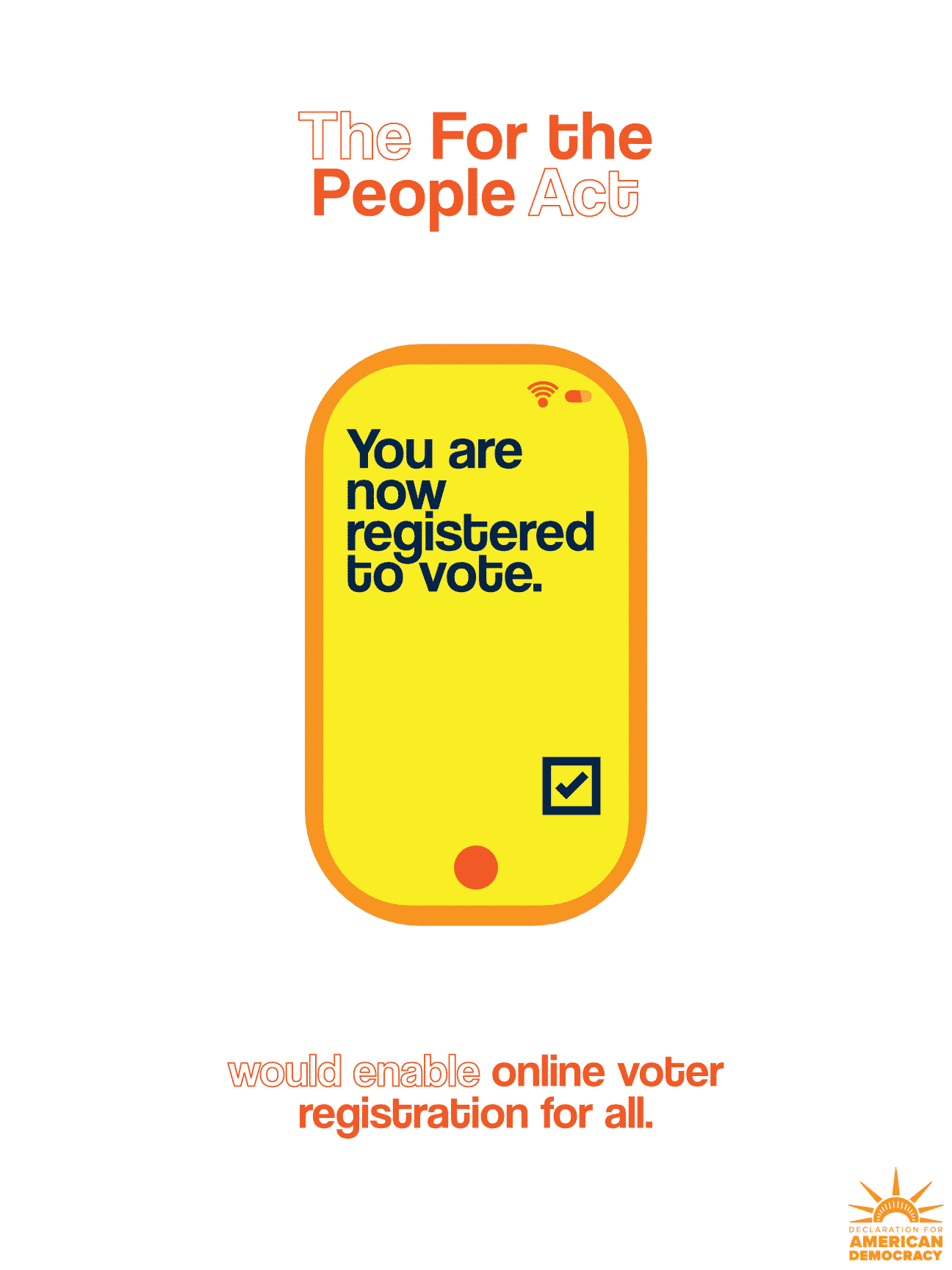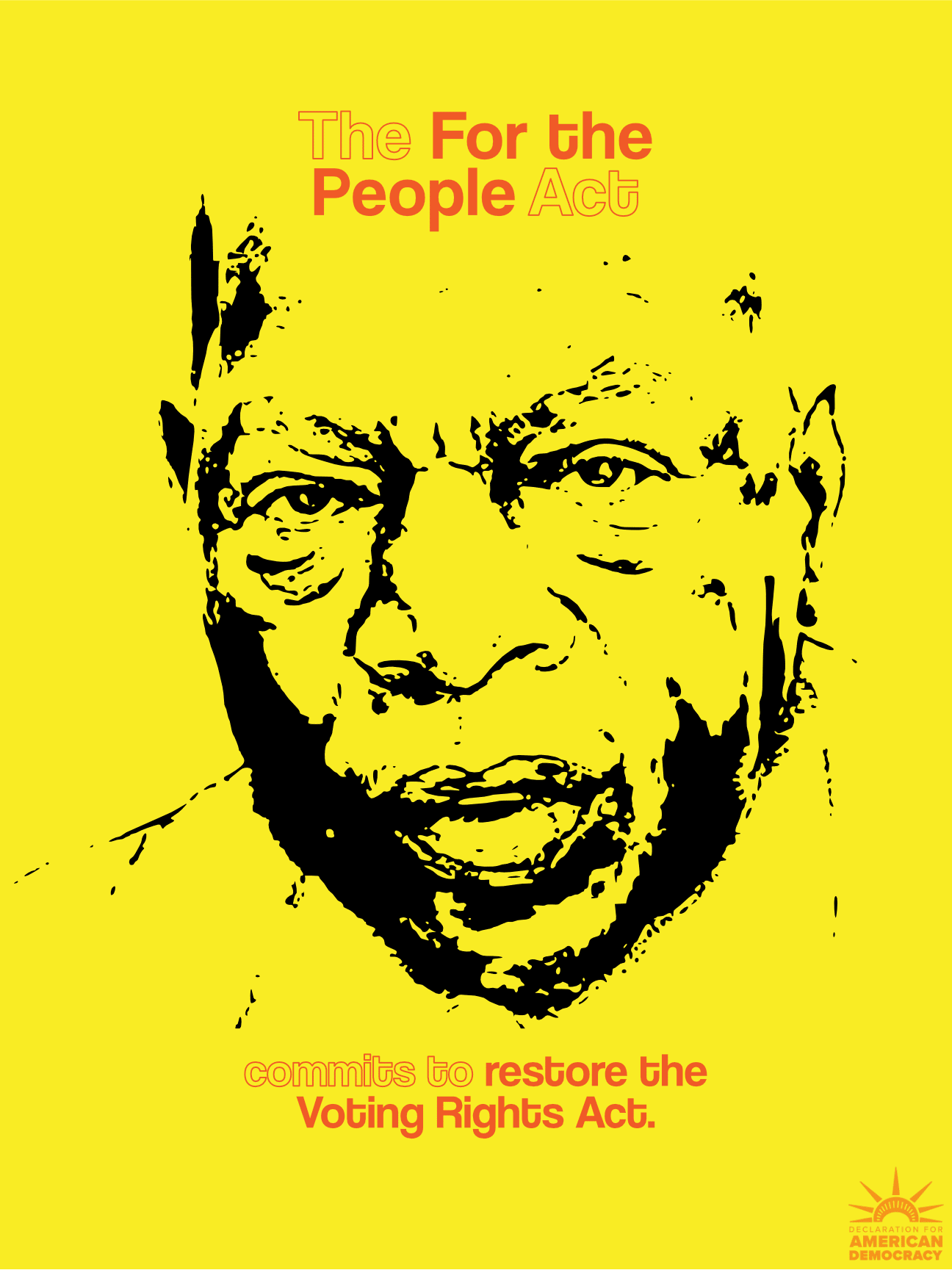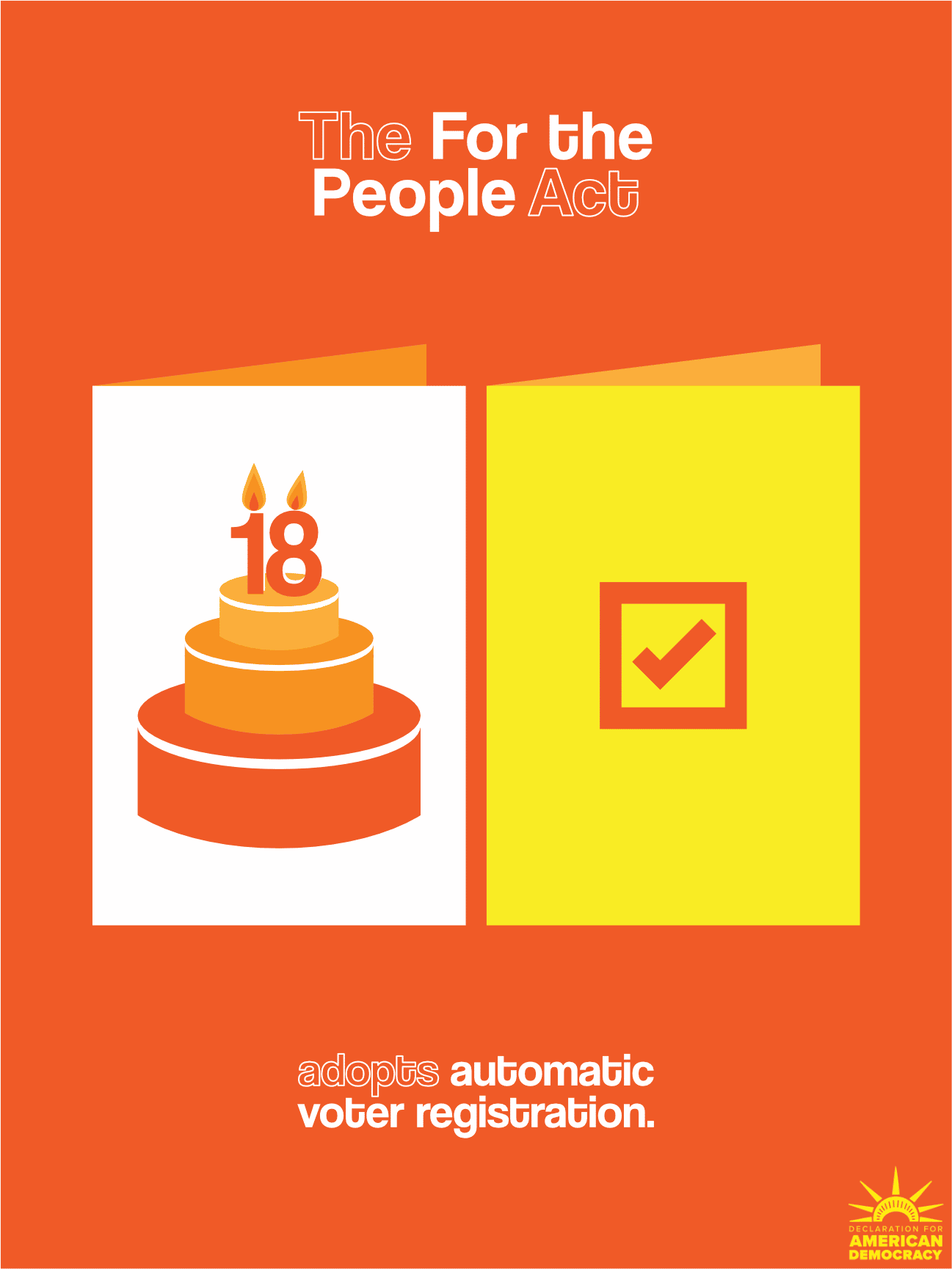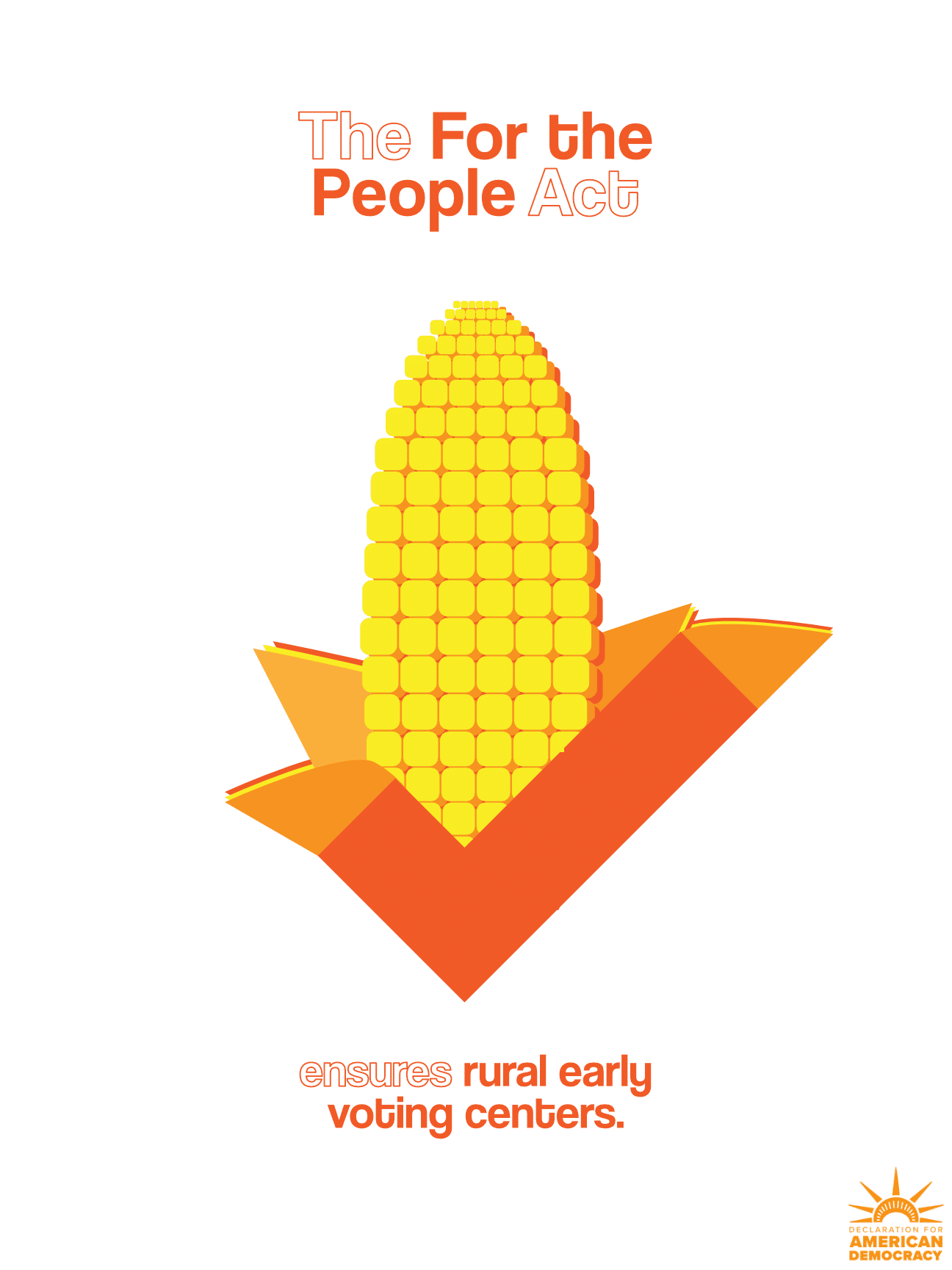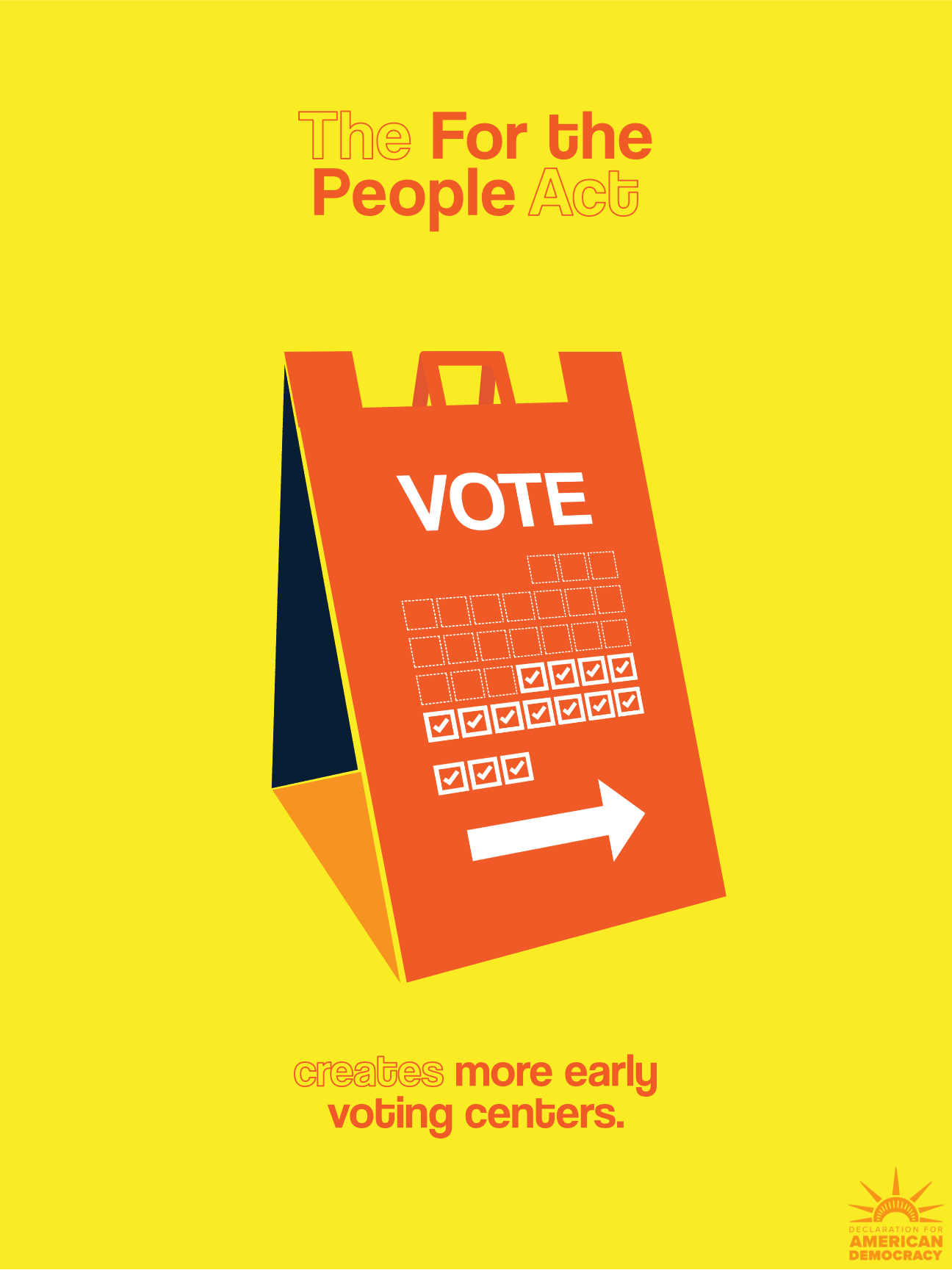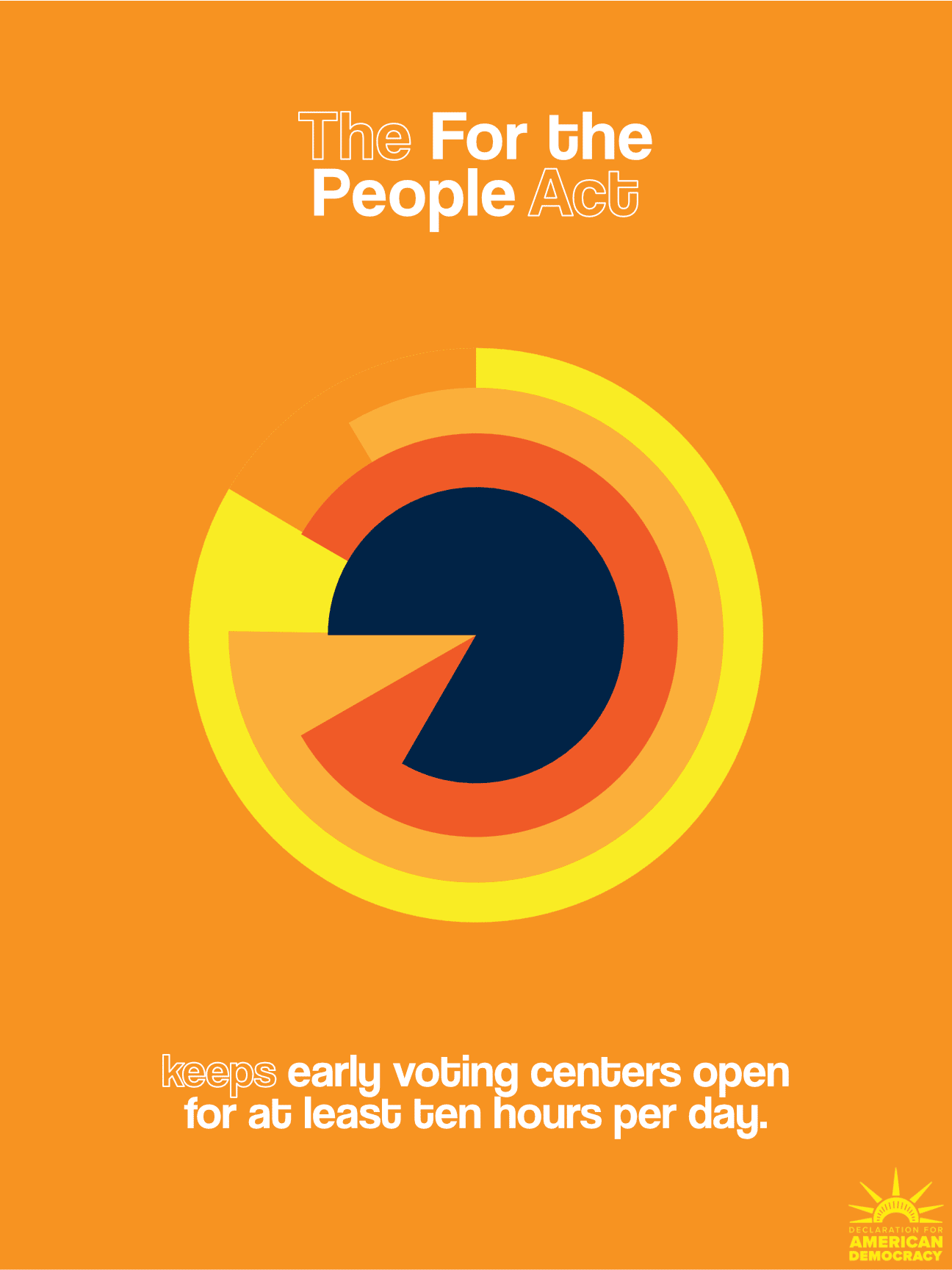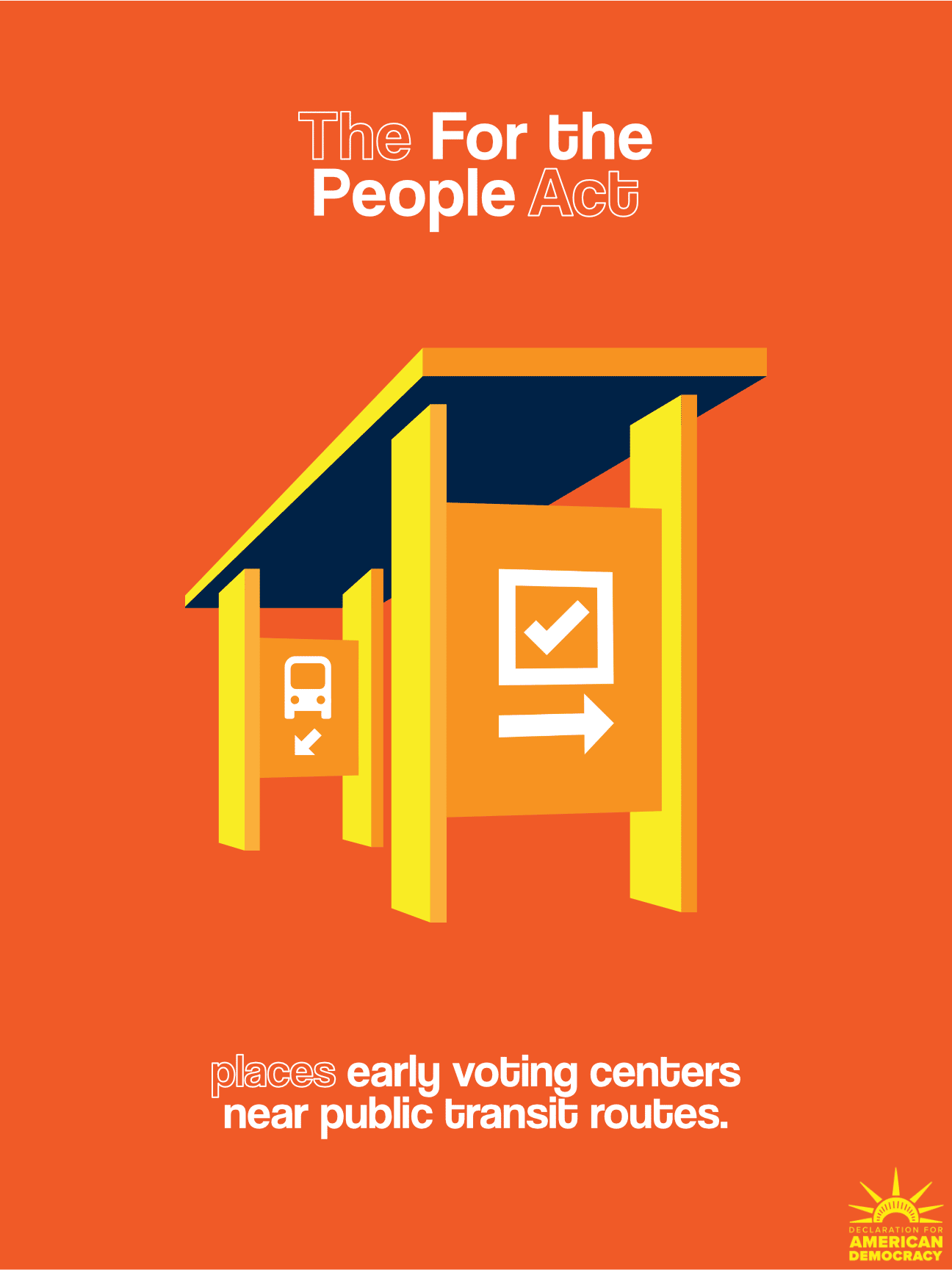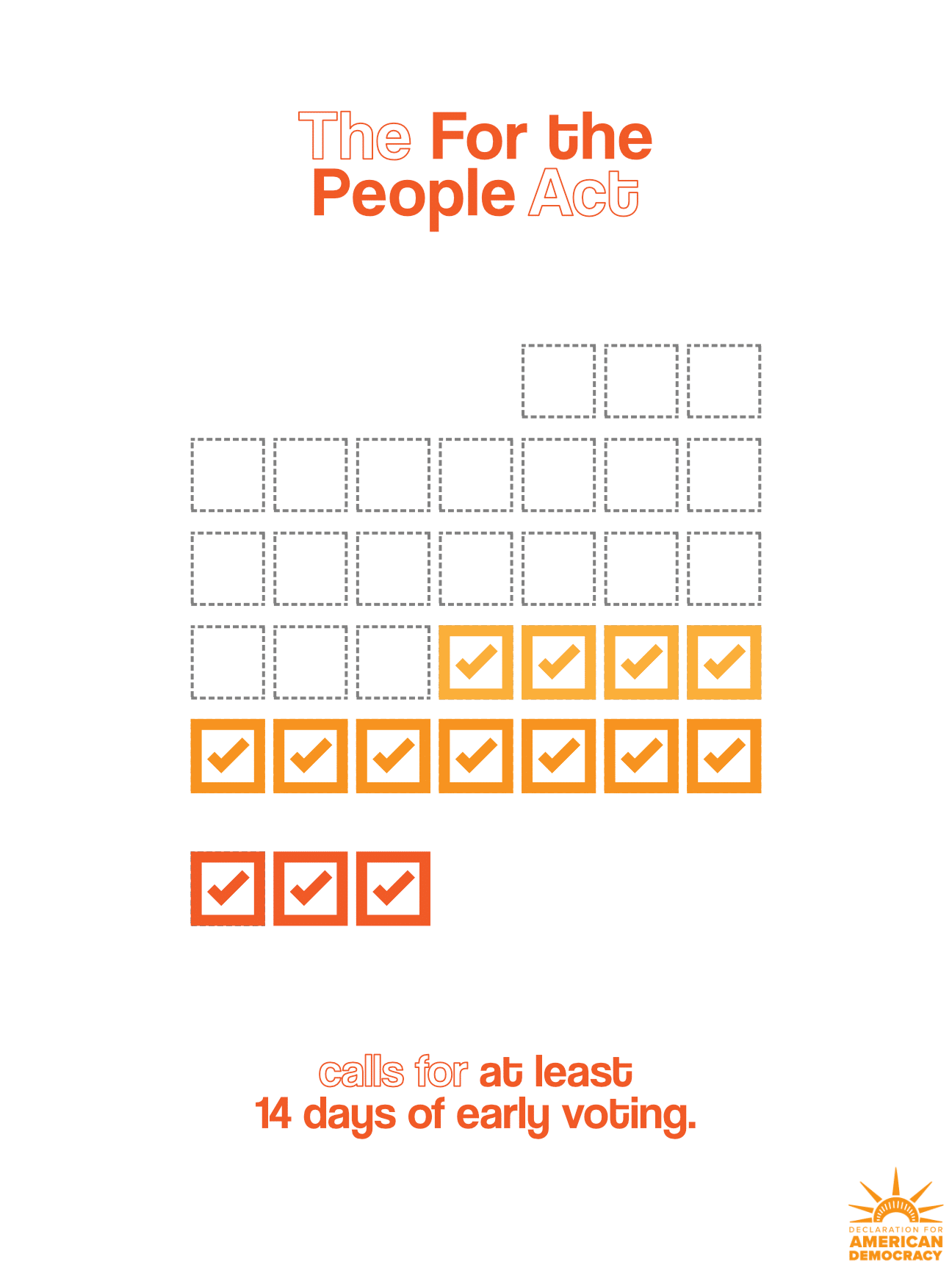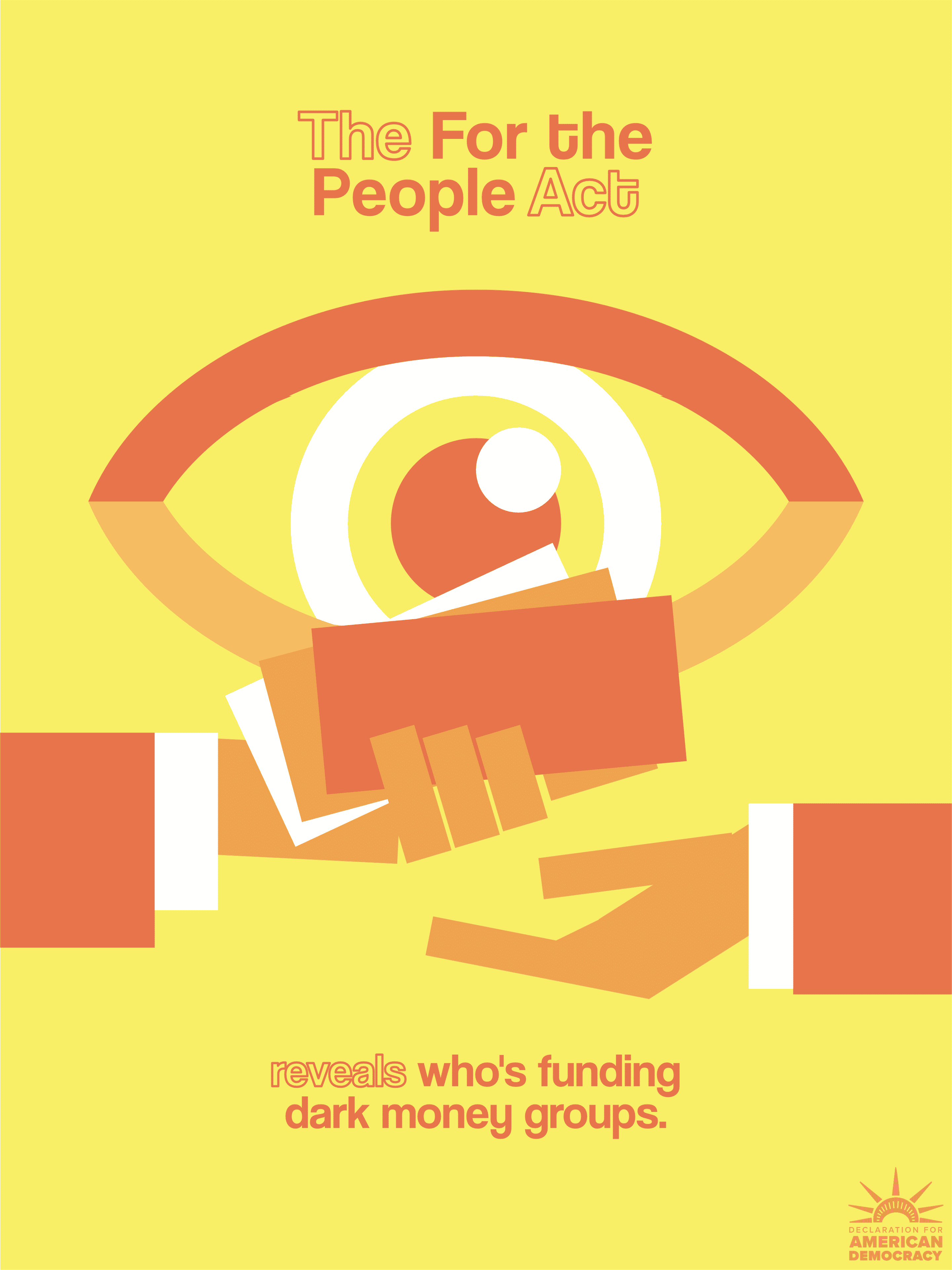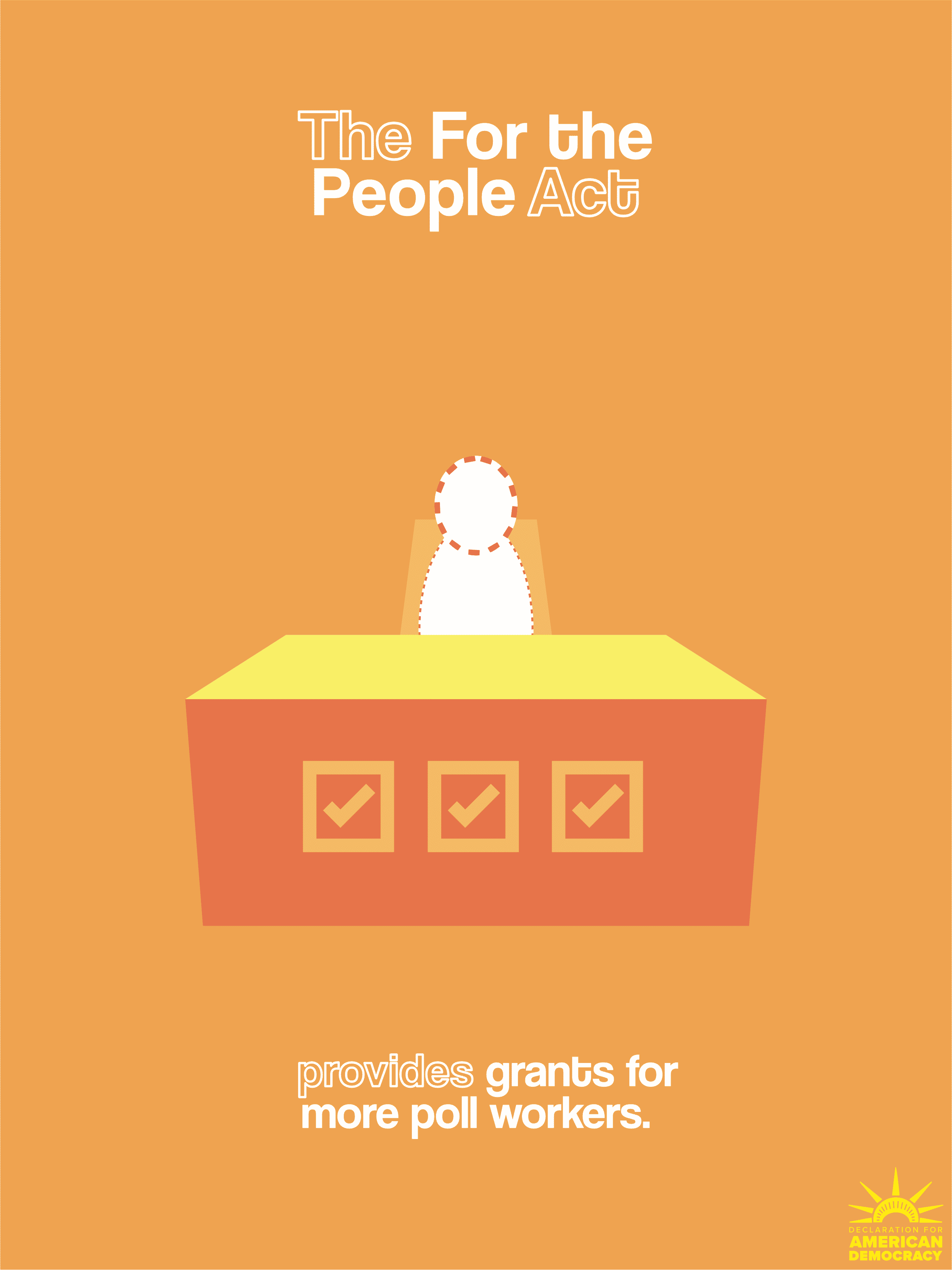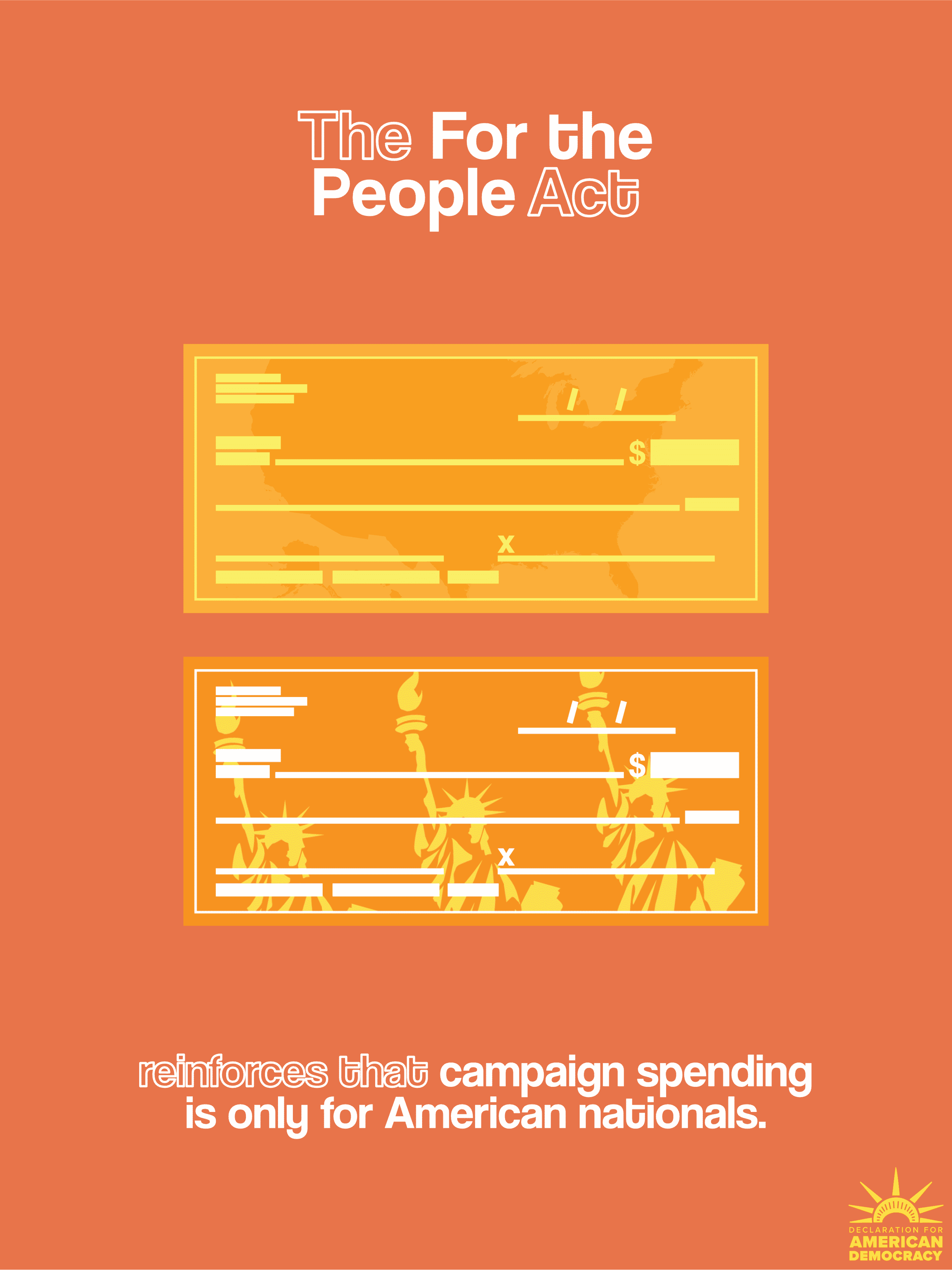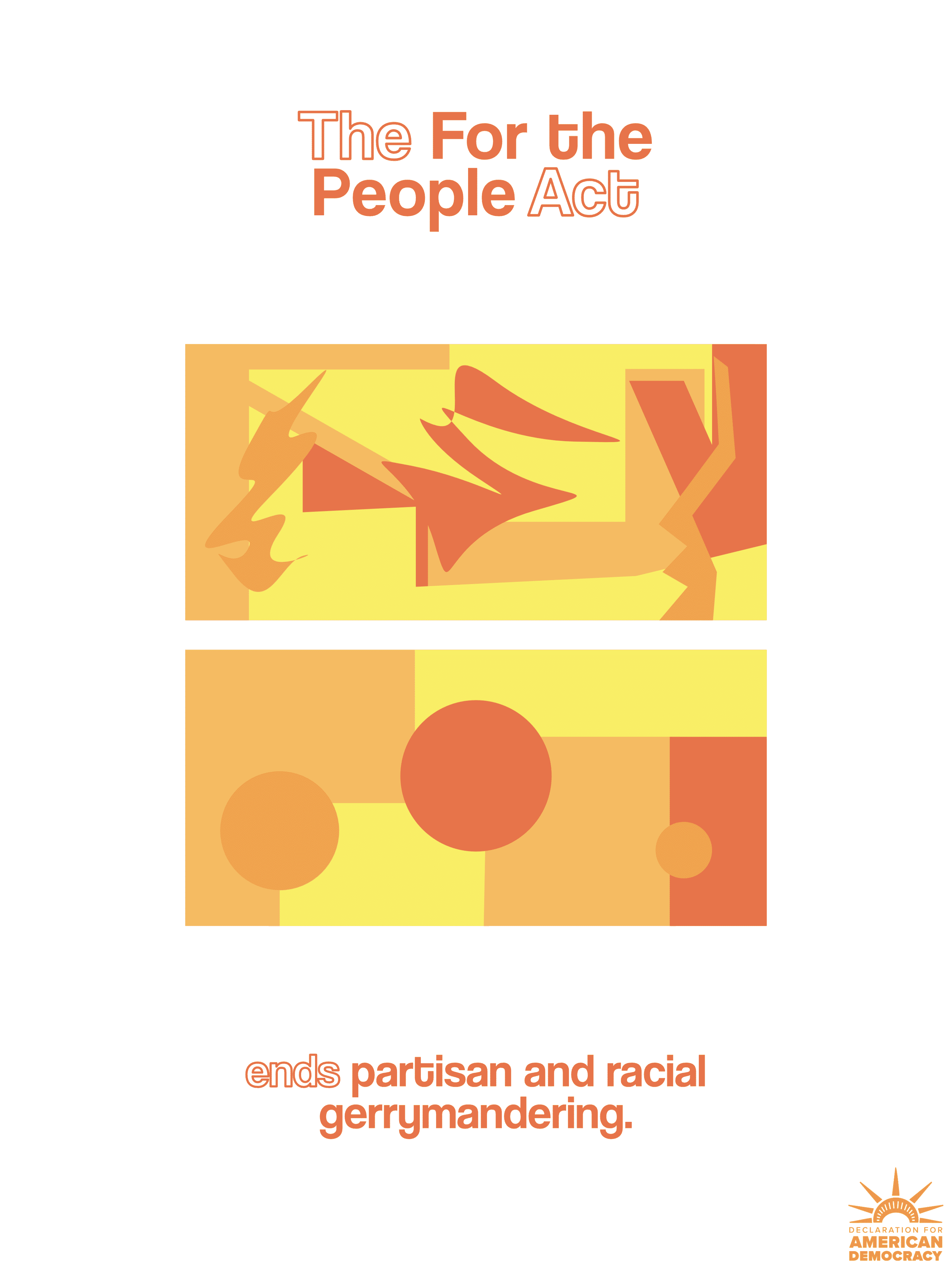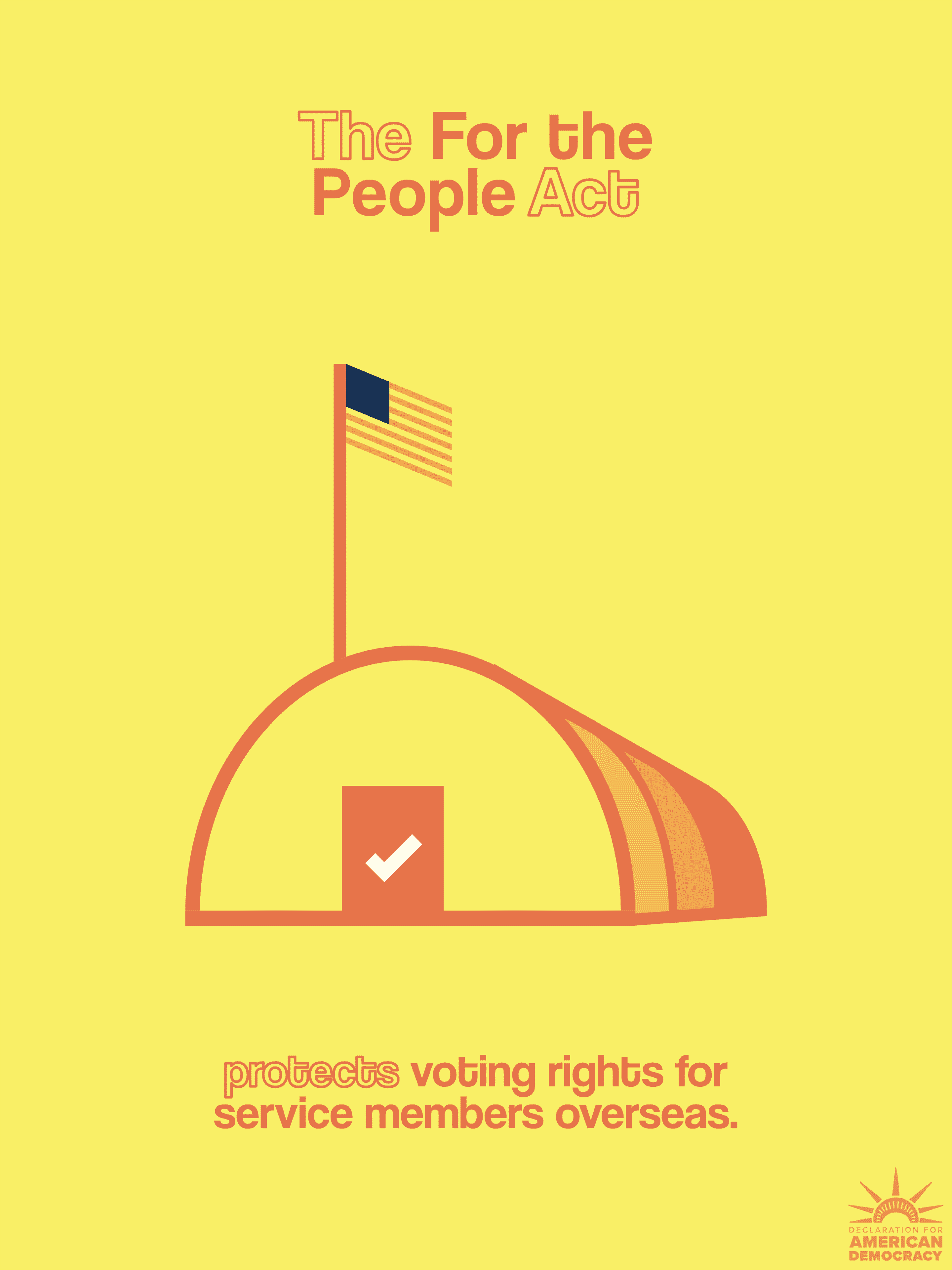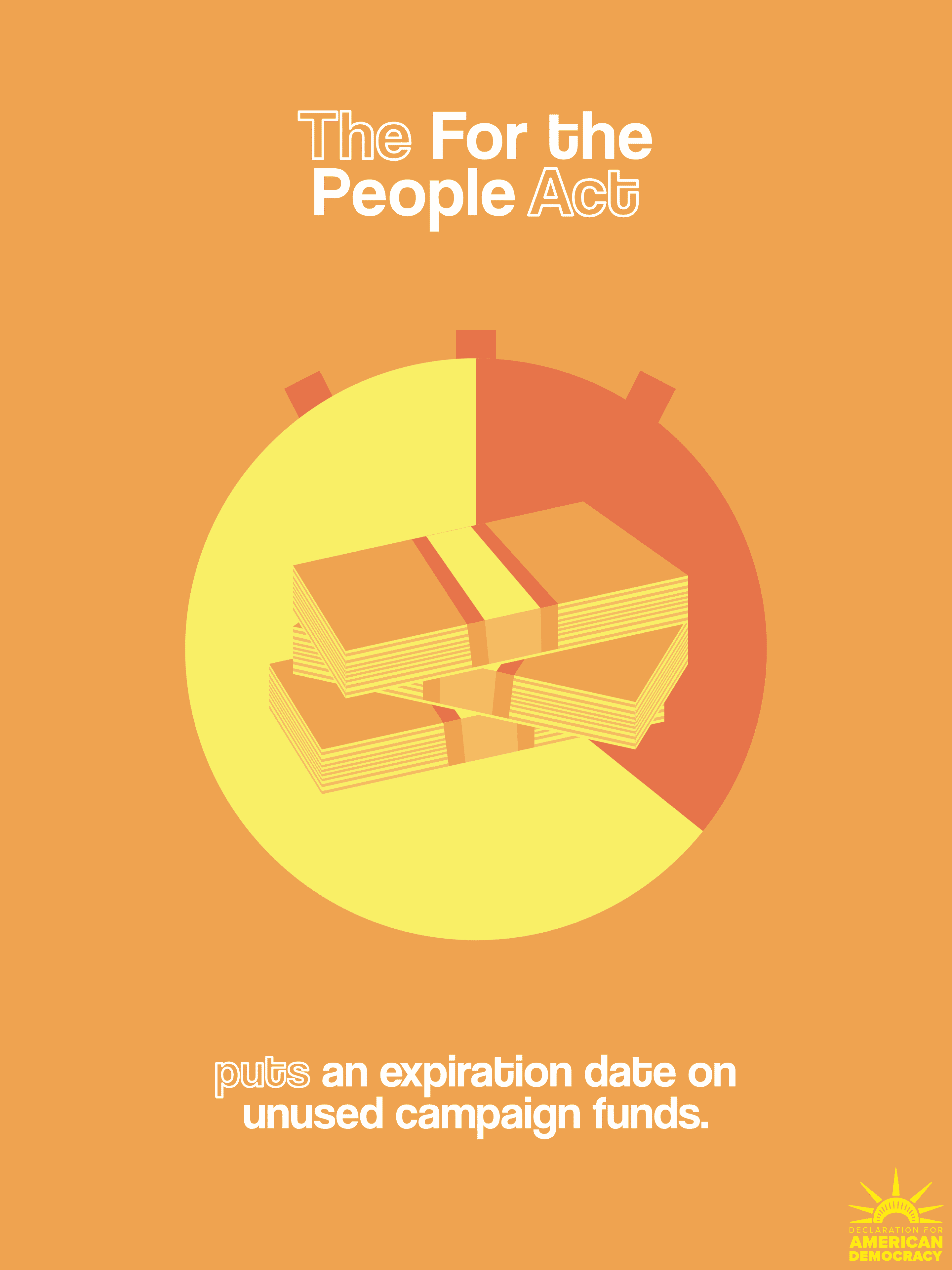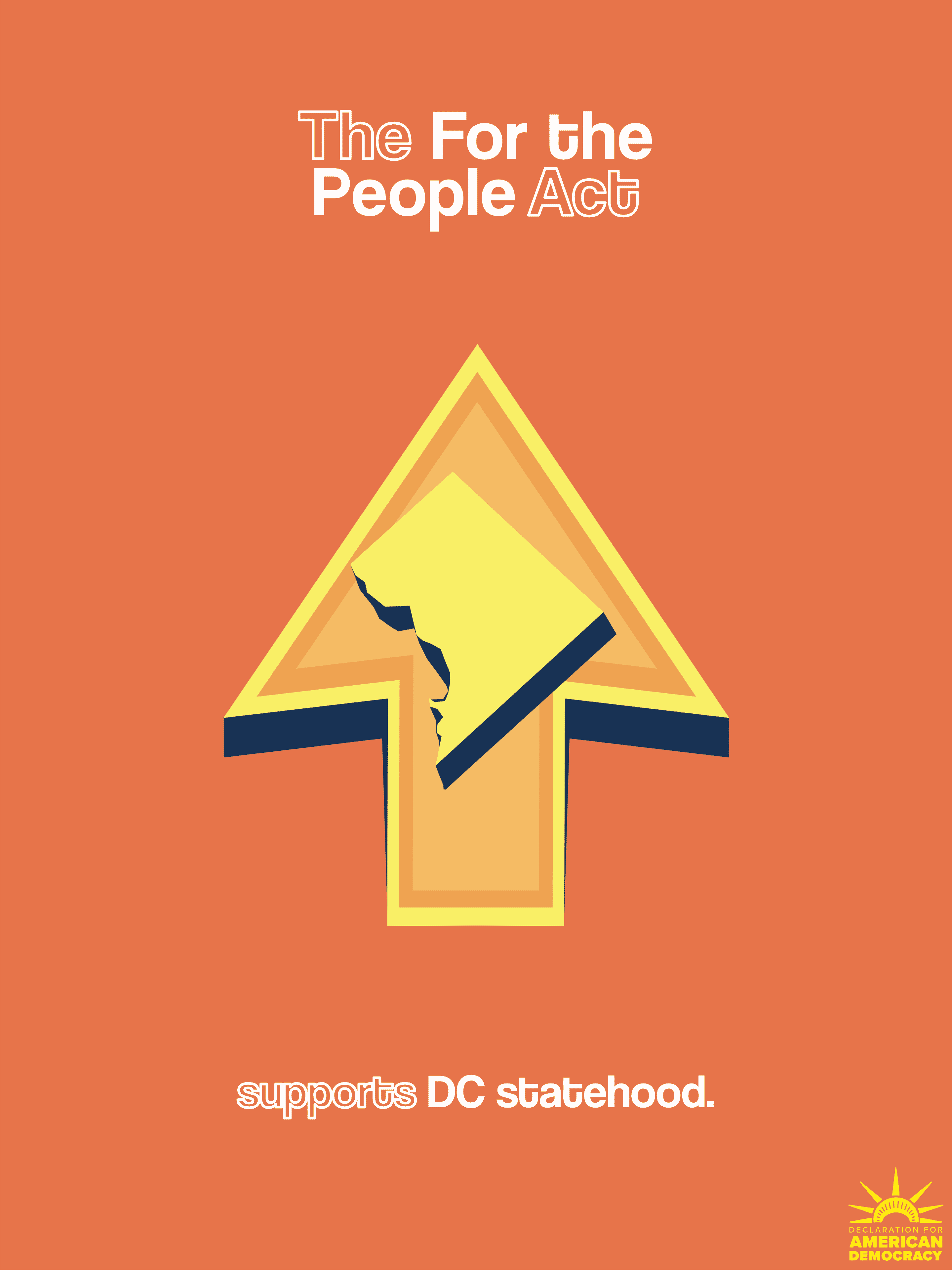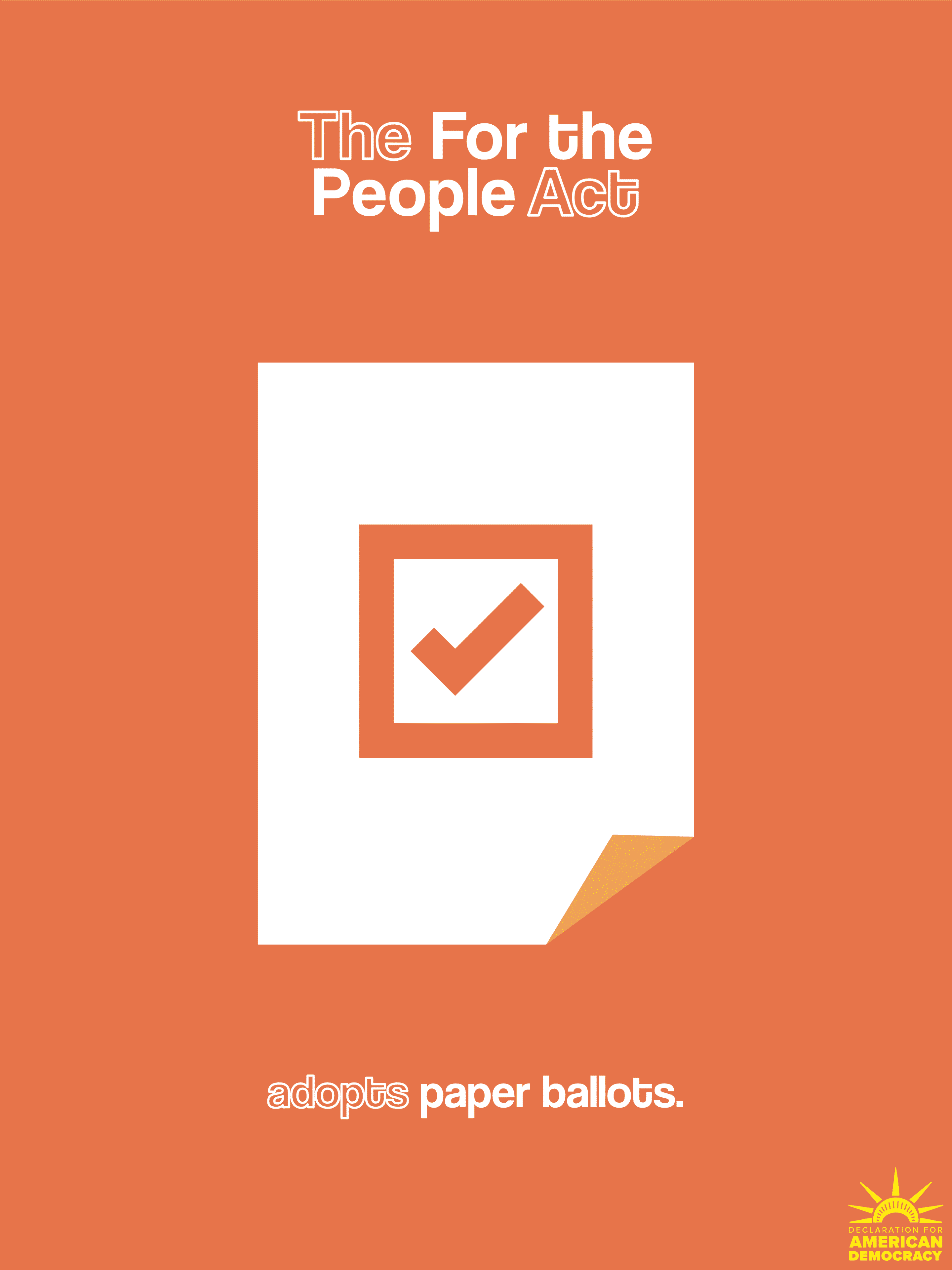“On behalf of the Declaration for American Democracy (DFAD), a coalition of more than 260 local, state and national organizations working to strengthen U.S. democracy, and the undersigned organizations, we write in strong opposition to H.R. 22, the Safeguard American Voter Eligibility (SAVE) Act.”
“Recognizing the dire need for reform to protect and bolster our democracy in the face of these challenges, the Declaration for American Democracy (DFAD) coalition is advocating for substantial changes to our democratic system.”
We, the undersigned members of the Declaration for American Democracy (DFAD) coalition, which includes 260+ organizations from the labor, civil rights, environmental, faith, social justice, reproductive rights, and many other communities, representing tens of millions of Americans, strongly urge CNN to include the state of U.S. democracy as a central issue in the upcoming presidential debate.
We we cannot overstate the importance of democratic protections to every issue that we care about, we cannot stand still. President Biden must now take the lead with immediate, decisive actions to bolster our democracy’s
defenses and proactively strengthen our country’s commitment to civil rights.
FOR IMMEDIATE RELEASE: New Report: Transformative Democracy Legislation Is Foundational To Moving Priorities Voters Care About
While challenges to our democracy accelerate, voters continue to demonstrate that legislation to address these threats remains a top priority across party lines.
Members of the Declaration for American Democracy (DFAD) coalition are urging President Biden to take executive action to require the disclosure of political expenditures made by government contractors.
Factsheets
A two-page description of the DFAD Coalition, our mission, and why this is the time to enact the For the People Act (HR1).
The Freedom to Vote Act improves access to the ballot for Americans, advances commonsense election integrity reforms, and protects our democracy from emerging threats.
The Freedom to Vote Act includes a voluntary, small donor matching funds system for House candidates.
Interviews
Representative John Sarbanes (@RepSarbanes) tells us about the transformational power of the #ForThePeopleAct (#HR1). @DFADCoalition DFADCoalition.org
Sr. Simone Campbell (@sr_simone, @NETWORKLobby) shares how the #ForThePeopleAct (#HR1) addresses the root causes of so many of the issues we face. @DFADCoalition DFADCoalition.org
Justin Kwasa (@LCV) shares why having a healthy environment means having a democracy that works — a democracy that we can build by passing the #ForThePeopleAct (#HR1). @DFADCoalition DFADCoalition.org
Veterans speak about their dedication to our democracy — and the need to uphold free, fair, and secure elections. @DFADCoalition DFADCoalition.org
Across the country, at every level of government, on both sides of the political divide — election officials pled for more support in the lead-up to the 2020 elections. @DFADCoalition DFADCoalition.org
Tutorials
Candidates shouldn’t be able to hold on to their campaign funds indefinitely. @DFADCoalition’s Aswar Rahman shares how — and why — the #ForThePeopleAct (#HR1) puts a 6-year expiration date on political funds raised. @DFADCoalition DFADCoalition.org
Isn’t vote by mail awesome? @DFADCoalition’s Aswar Rahman shares how the #ForThePeopleAct (#HR1) will make vote by mail accessible to every voter in America. @DFADCoalition DFADCoalition.org
Virtual Townhalls
4.20.20 | Protect Our Vote Kick-Off
Special Guests
Senator Amy Klobuchar (D-MN)
Senator Ron Wyden (D-OR)
Senator Elizabeth Warren (D-MA
Representative Hakeem Jeffries (D-NY)
Washington Secretary of State Kim Wyman (R-WA)
Host
Jana Morgan, Director – Declaration for American Democracy
Speakers
Max Feldman, Counsel – Brennan Center for Justice
Vanita Gupta, President & CEO – The Leadership Conference on Civil and Human Rights
Michelle Bishop, Voting Rights Specialist – National Disability Rights Network
Karen Hobert Flynn, President – Common Cause
Debra Cronmiller, Executive Director – League of Women Voters of Wisconsin
Rio Tazewell, Senior Campaigns Manager – People For the American Way
Christine Wood, Democracy Organizer – Public Citizen
Brett Edkins, Political Director – Stand Up America
Also participating, representatives from:
Alliance for Youth Action
Democracy 21
Let America Vote / End Citizens United Action Fund
National LGBTQ Task Force Action Fund
Union of Concerned Scientists
4.23.20 | Protect Our Vote Maine
Featuring:
Senator Angus King (I-ME)
Alison Beyea, Executive Director – Maine ACLU
Kathy Montejo, Lewiston City Clerk
Lori Parham, Executive Director – Maine AARP
Robyn Merrill, Executive Director of Maine Equal Justice
Anna Kellar, League of Women Voters of Maine and Maine Citizens for Clean Elections
4.27.20 | Protect Our Vote North Carolina
Featuring:
U.S. Representative David Price
U.S. Representative G. K. Butterfield
U.S. Representative Alma Adams
North Carolina State Senator Jay Chaudhuri
Marcus Bass, Executive Director of NC Black Alliance
Tomas Lopez, Executive Director of Democracy North Carolina
Bob Phillips, Executive Director of Common Cause NC
Melissa Price Kromm, Director of North Carolina Voters for Clean Elections
5.1.20 | Protect Our Vote Arizona
Speakers
U.S. Representative Greg Stanton
Arizona Secretary of State Katie Hobbs
U.S. Representative Raúl Grijalva
Maricopa County Recorder Adrian Fontes
More to come…
Moderator
Randy Perez, Democracy Director of LUCHA Arizona
5.6.20 | Protect Our Vote Colorado
Speakers
U.S. Senator Michael Bennet
U.S. Representative Jason Crow
Colorado Secretary of State Jena Griswold
Hon. Wayne Williams, Former Colorado Secretary of State
Nicole Hensel, Executive Director of New Era Colorado
Tamra DeBrady, President, Colorado Black Women for Political Action
Dusti Gurule, Executive Director, Colorado Organization for Latina Opportunity and Reproductive Rights
Moderator
Dr. Toni Larson, Director, Action & Advocacy, League of Women Voters of Colorado
Andrea Wilkins, League of Women Voters Colorado
5.20.20 | Protect Our Vote Georgia
Speakers:
US Representative Sanford Bishop, D-GA-2
Georgia State Rep. Bee Nguyen, D-89
Georgia State Rep. Park Cannon, D-58
Georgia State Sen. Harold Jones, D-22
Cindy Battles, Program Coordinator, Common Cause Georgia
Wanda Mosley, Senior State Coordinator, Georgia, Black Voters Matter
Esther Lim, Organizing and Civic Engagement Director, Asian Americans Advancing Justice-Atlanta
Umer Rupani, Executive Director, Georgia Muslim Voter Project
Susannah Scott, President, League of Women Voters of Georgia
Aklima Khondoker, Georgia State Director, All Voting is Local
6.9.20 | Protect Our Vote Rally
Featuring:
• House Speaker Nancy Pelosi
• Reverend Dr. William J. Barber, II, Co-Chair of the Poor People’s Campaign: A National Call for Moral Revival
• Dolores Huerta Labor Activist and Civil Rights Leader
• Vanita Gupta, President and CEO, The Leadership Conference on Civil and Human Rights
• Wendy Fields, Executive Director, Democracy Initiative
• Rev. Leslie Watson Wilson, Director of African American Religious Affairs, People For the American Way
• Jennifer Epps-Addison, Network President and Co-Executive Director, Center for Popular Democracy
Moderated by:
• Leigh Chapman, Voting Rights Program Director, The Leadership Conference on Civil and Human Rights Leadership Conference on Civil and Human Rights
• Jana Morgan, Director, Declaration for American Democracy
8.11.20 | Protect Our Vote Town Hall
Our elections are under threat. People must be able to vote safely in November. Yet, Senate Republicans are blocking key funding needed to #ProtectOurVote. Join us on August 11 7:30-8:30pm ET for a virtual town hall with Congresswoman Joyce Beatty, Congressman John Sarbanes and movement leaders to discuss why funding for safe elections must be included in the next COVID package, and what citizens can do to make themselves heard.
Despite COVID cases rising, the Senate Republicans proposed $0 for critical funding needed to #ProtectOurVote. No one should have to choose between their health and their vote.
Speakers:
U.S. Representative Joyce Beatty
U.S. Representative John Sarbanes
Hilary Shelton, Washington Bureau Director & Senior Vice President for Advocacy and Policy | NAACP
Leigh Chapman, Voting Rights Program Director | The Leadership Conference on Civil and Human Rights
Wendy Fields, Executive Director | Democracy Initiative
Karen Hobert Flynn, President | Common Cause
10.17.20 | Democracy Day 1: Protecting Your Vote and Your Voice
This year’s election is the most consequential of our lifetimes – yet Americans face historic barriers to voting. Join the Declaration for American Democracy on Wednesday, October 7th to learn ways to fight back against these obstacles, make a plan to vote, and make your voice heard.
From 7-8pm EST we will hear from election protection experts who will provide you with the necessary tools to vote safely this year.
Then, from 8-9pm EST we will hold a *couch-party* where partners from When We All Vote will lead participants in a textathon to text 500,000 Americans make a plan to vote.
During this event we’ll hear from Rep. John Sarbanes on the transformative “For the People Act” (HR1) and how it can transform our democracy, and make the case for why the next administration must make democracy reform a first priority on day one.
More Videos
To make progress on the issues that we care most about, such as health care, racial justice, reproductive rights, and the environment, we must build a system that serves the people rather than wealthy donors. Congress must pass the #FreedomToVoteAct. pic.twitter.com/lg3kmym7b1— Declaration for American Democracy - (@DFADCoalition) July 27, 2023
Building a Government For and By the People
America is at a crossroads. For the past decade, we’ve seen a shift away from government representation for the people to representation for the billionaires and corporate interests.
Voter suppression laws have silenced the voices of voters and entire communities, while billionaires and corporate interests continue to spend big to influence our elections and advance their agenda. This administration is pushing the limits of executive power to the brink, normalizing rampant corruption, disregarding the rule of law, while attacking the pillars of civil society itself.
From this broken political system, we have the opportunity to build something new, where everyone has a meaningful say in decisions that impact their jobs, housing, health, and safety.
This is our Declaration for American Democracy:
A government of the people, by the people, and for the people.
A true democracy is one in which the people choose the representatives who make the critical policy decisions that guide the direction of our country and communities. A democracy requires that its cornerstones, from a free press to our right to protest to access to justice, to our right to free speech, remain intact. It requires that our basic human and civil rights be protected under the law, where no concentration of power is allowed to threaten the people’s rights.
Ensure our freedom to vote.
A Democracy for the People must ensure every eligible voter can participate in our elections without barriers, confusion, or intimidation. Our electoral system must be designed to ensure all voices are heard. We must eliminate discriminatory voter suppression policies, realize fair representation through enfranchisement and fair districting, and enact national standards for our elections to ensure every eligible voter can easily cast their ballot and trust that their vote will be accurately counted.
Protect against government corruption.
A Democracy for the People serves all of us, rather than the self-interests of those who govern. This requires government transparency and binding rules for Congress, the President, and the courts to root out conflicts of interest. In addition to oversight, we must have enforcement mechanisms to hold individuals accountable – regardless of who they are or what position they hold. Our democracy requires comprehensive safeguards that prevent self-dealing and ensure no one in power, whether a President, judge, or Member of Congress, can use public office to advance their own personal or financial interests.
Empower the voice of the people.
A Democracy for the People responds to the needs of people and their communities. The voices of the people should not be drowned out by billionaires or corporate interests who use their wealth to buy access, curry favor, and shape policy and elections. We must root out the corrosive influence of big money in politics and address the various ways special interests work to influence Members of Congress and government officials – whether through campaign cash or funding pet projects. A true democracy amplifies community voices and makes it possible for everyday people to run for office.
Maintain checks, balances, and the rule of law.
A Democracy For the People depends on a system of checks and balances. We must add safeguards and accountability mechanisms to prevent government overreach and to reinforce the powers allocated to each branch of government by our Constitution. We must stop abuse of power from the executive branch and ensure other branches have sufficient means to hold an administration accountable. This includes putting protections in place to ensure nonpartisan civil servants can do their jobs as mandated by Congress without purges or politicization, and preventing the weaponization of independent government agencies. The courts must pursue equal justice under the law, not partisan political agendas. Whether a president, a judge, a member of Congress, a CEO, or anyone else, no one is above the law.
What is the Declaration for American Democracy?
A Coalition of 260+ Member Organizations
The Declaration for American Democracy is an anti-oppression coalition working together to make the promise of democracy real for all of us.
We believe our democratic systems, institutions, and leaders must reflect, represent, and respect the diverse, multicultural nation that we are and have always been. For democracy to work for all of us, it must include all of us and address the deep systemic, institutional challenges that continue to block meaningful progress to this day. As America’s diversity continues to grow, so must our democracy.
Our Mission
Today our democracy faces crises on multiple fronts -- compounded by a deeply problematic history that has held us back from achieving an inclusive and equitable multiracial nation since our founding. Powerful corporations and wealthy special interests use their money and influence to shape public policy priorities. Extremist politicians are putting up deliberate barriers to block access to the ballot box and silence the voices of Black, Brown, Indigenous, Latinx, AAPI, low-income, LGBTQIA, disability, and other marginalized communities. State legislatures are manipulating Congressional maps to allow politicians to pick their voters and hoard power for their political parties. And our government has failed to respond after four years of a corrupt administration and Supreme Court decisions gutting voting rights protections and anti-corruption laws.
Working together, we are committed to passing national standards, including the Freedom to Vote Act, the John Lewis Voting Rights Advancement Act, and DC Statehood, to transform our political system and move our country closer to realizing the true promise of democracy. However, we will not be satisfied with any single reform and will continue to press for the structural changes necessary to rebalance power for the people and undo the historic harms that have barred communities that have been marginalized and denied political power since the founding of the United States.
We believe people of color, young people, people with disabilities, language minorities, and other historically disenfranchised communities should have equal access to the ballot and be equitably represented in government. We believe everyday people should have a stronger voice in elections than wealthy donors and special interests. And we believe our government should be transparent and accountable to the people.
Together we must ensure the freedom to vote is a fundamental American right and that the people -- regardless of our color, our background, or our zip code - hold the power, not the wealthy and corporations.
Our Vision
Therefore, we, the Declaration for American Democracy, are committed to working together to achieve this vision and model our values in how we work together. As a coalition, we will invest in each other and treat each other with respect. We will acknowledge and learn from our past, including the legacy of racism and white supremacy in our movement and democratic institutions. In decision making we will center Black, Brown, Indigenous, Latinx, AAPI, LGBTQIA, people with disabilities, language minorities, as well as other impacted communities. And we will invest in each other through professional development, collaborative grantmaking, and shared projects.
Our 260+ Member Organizations

